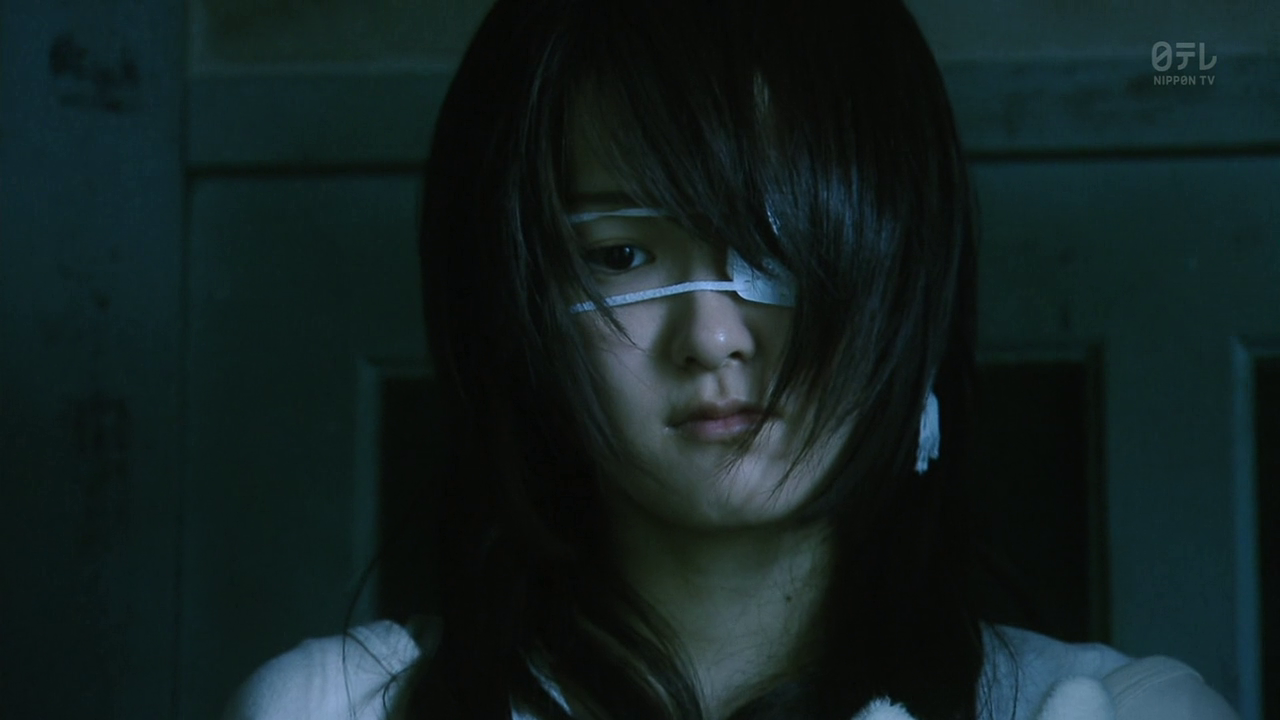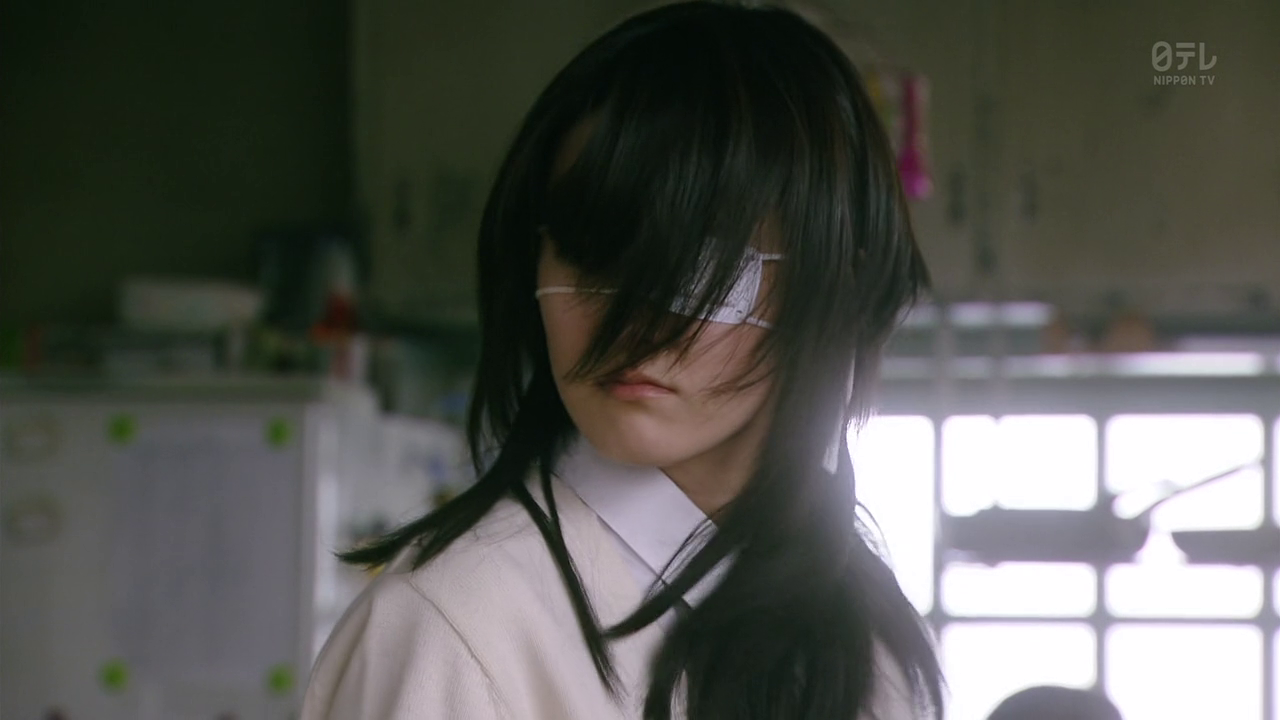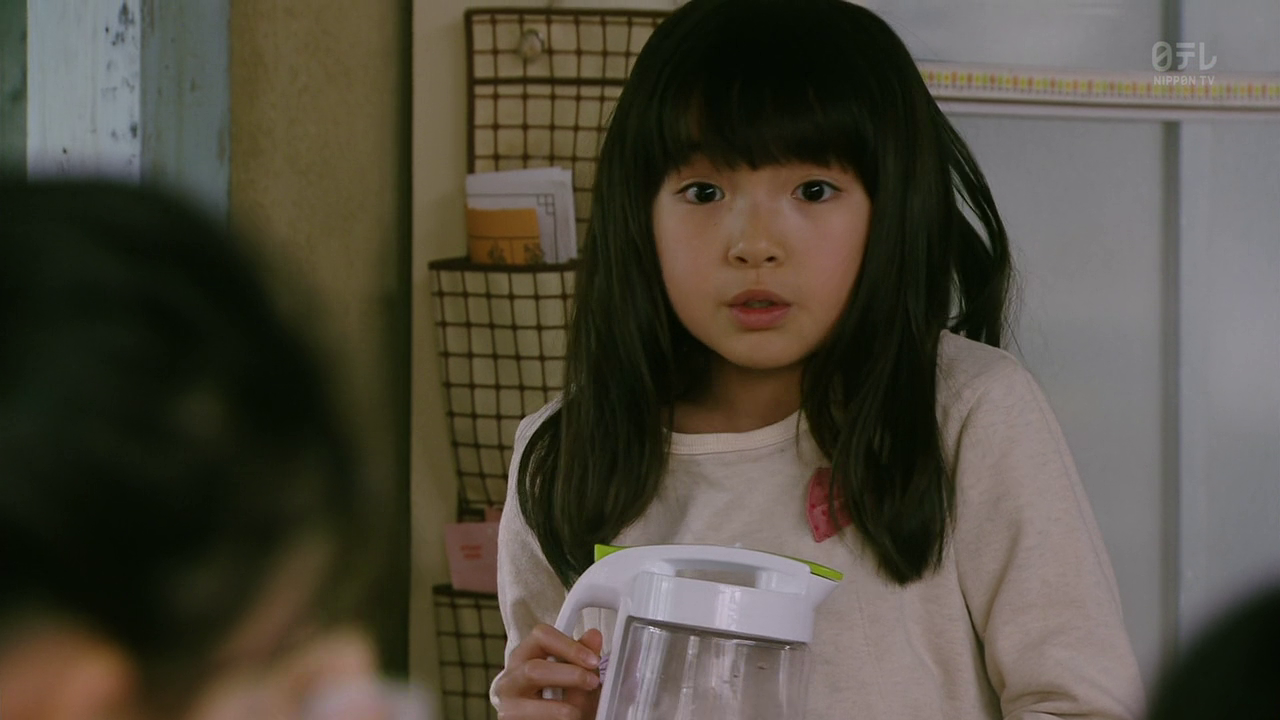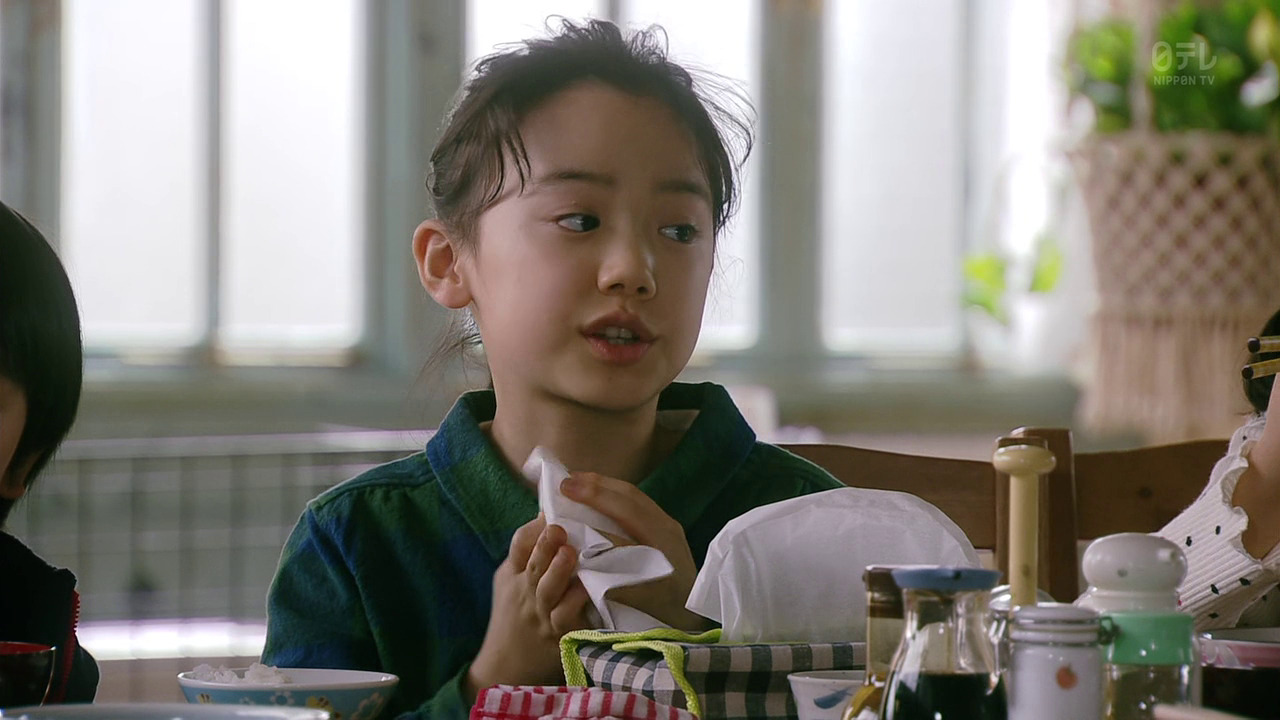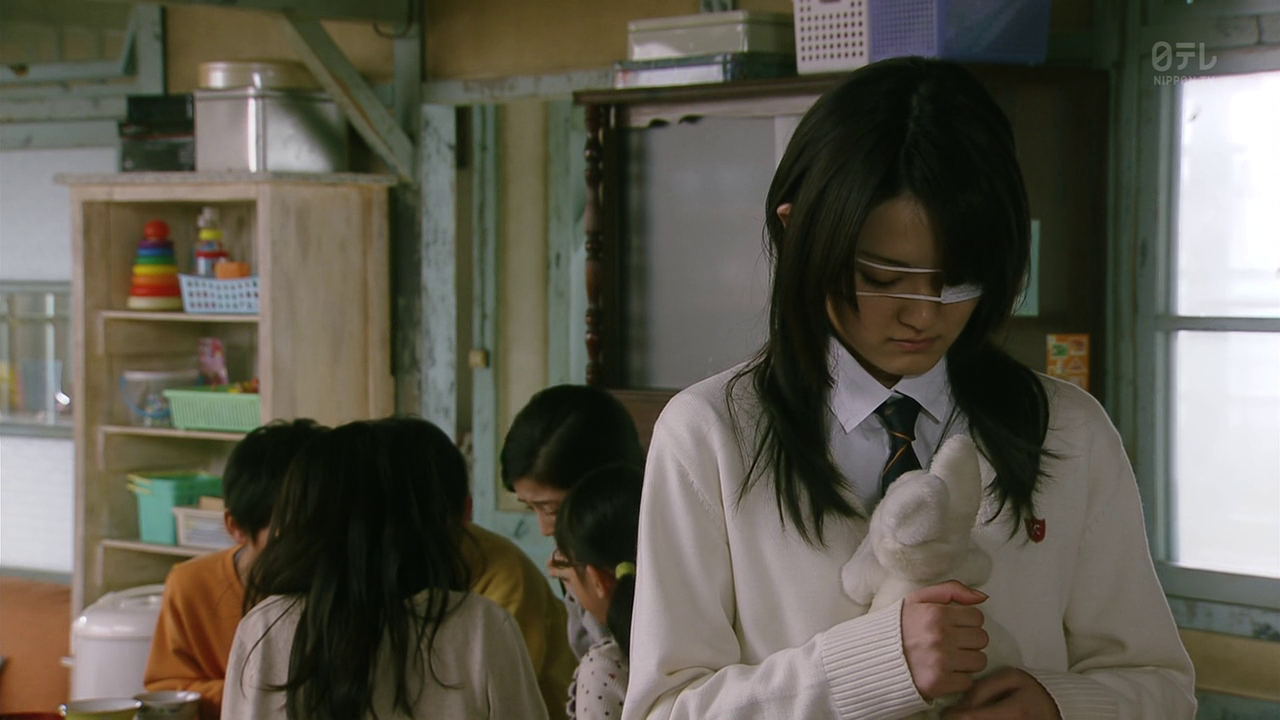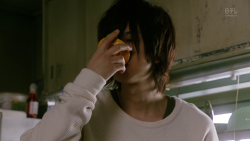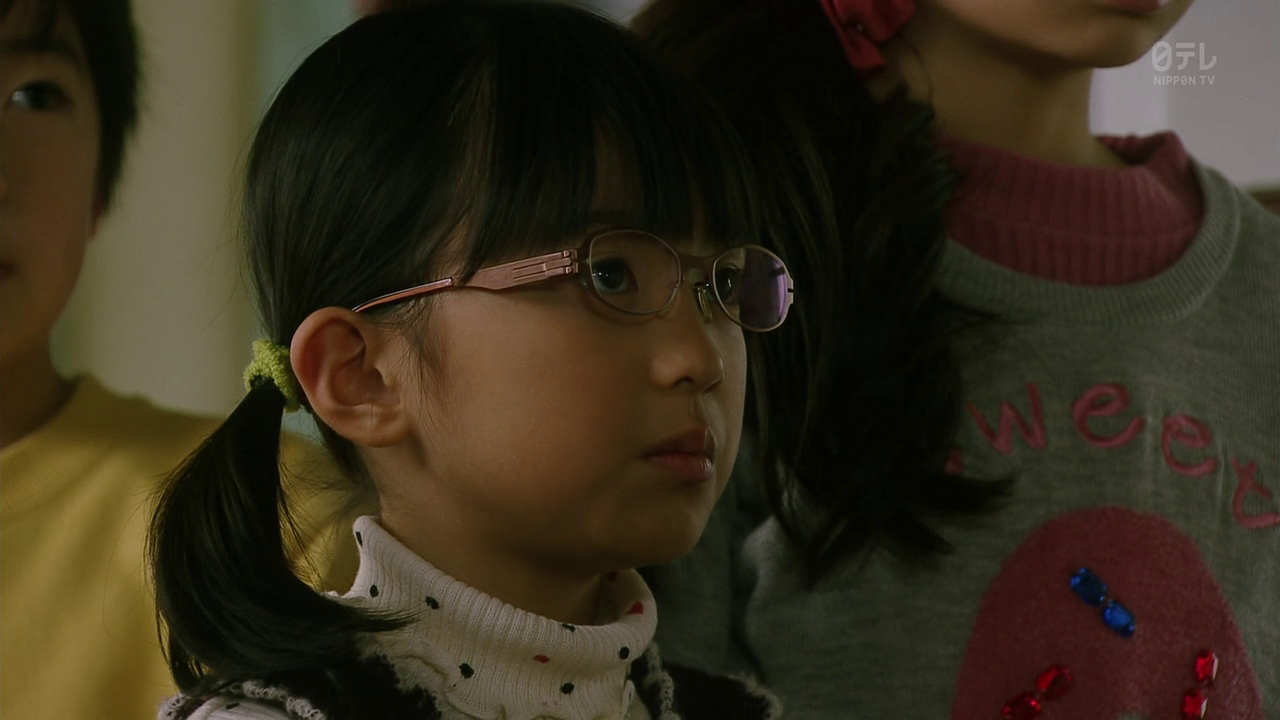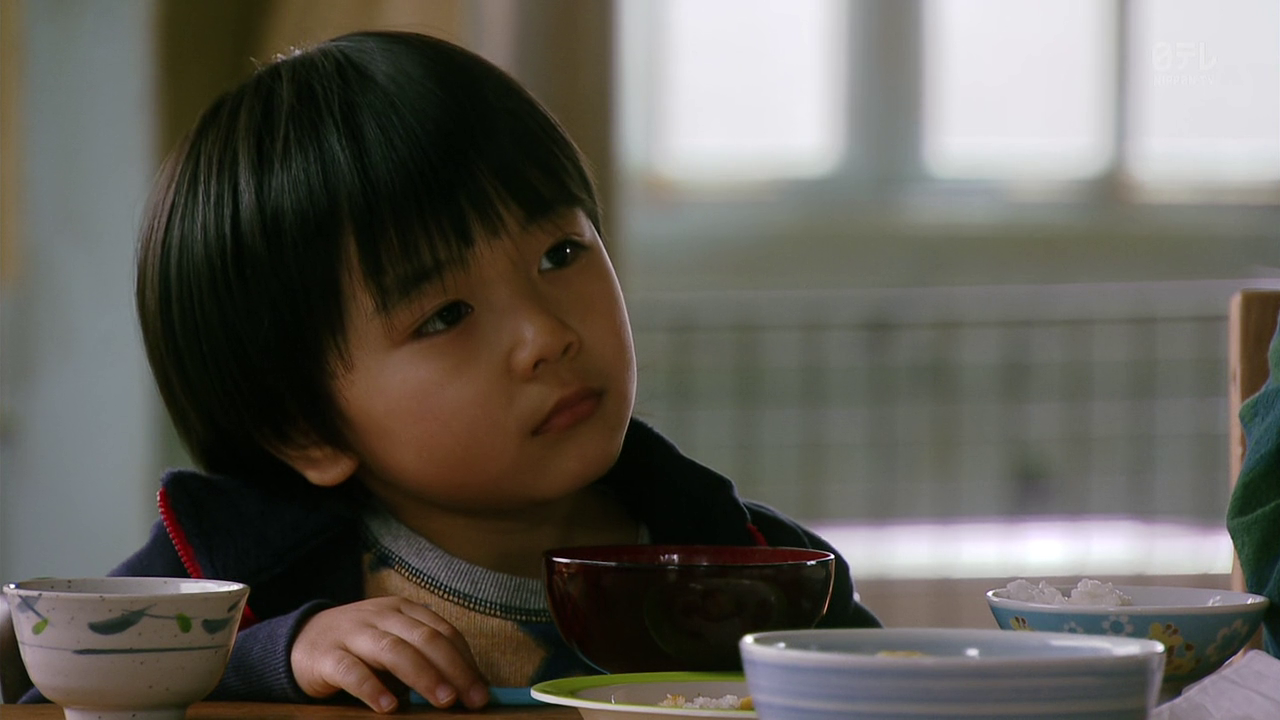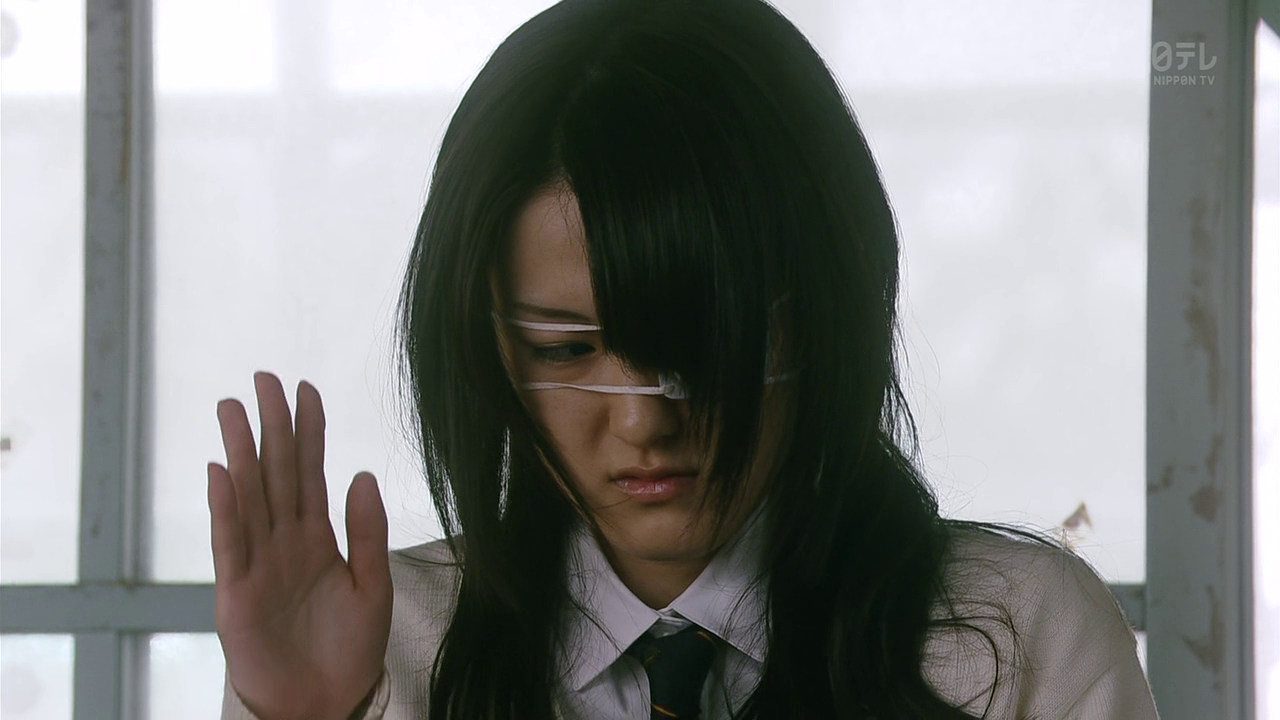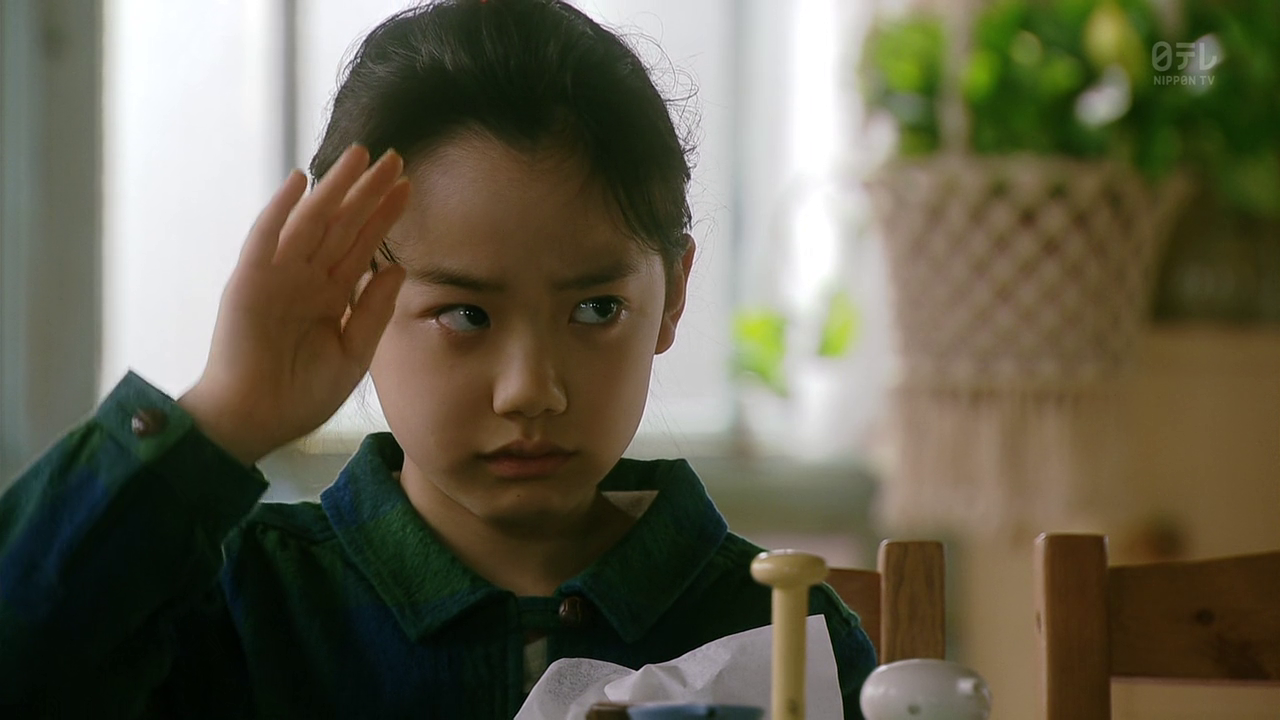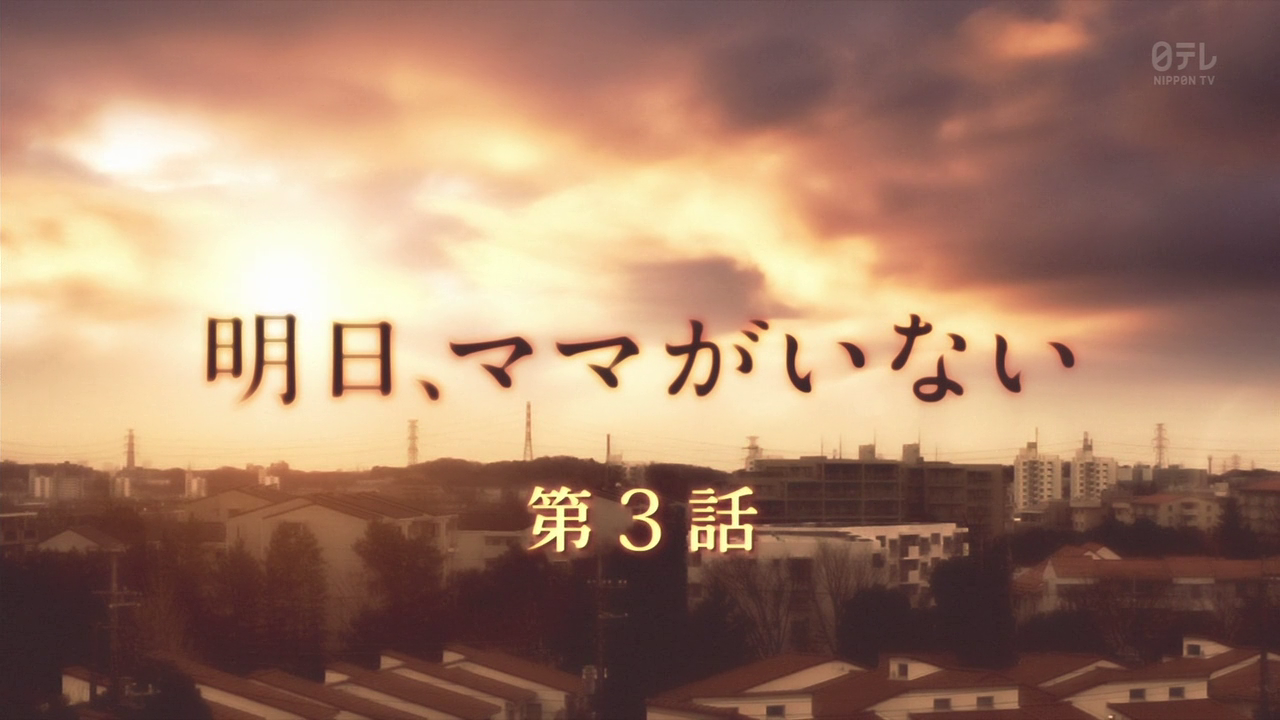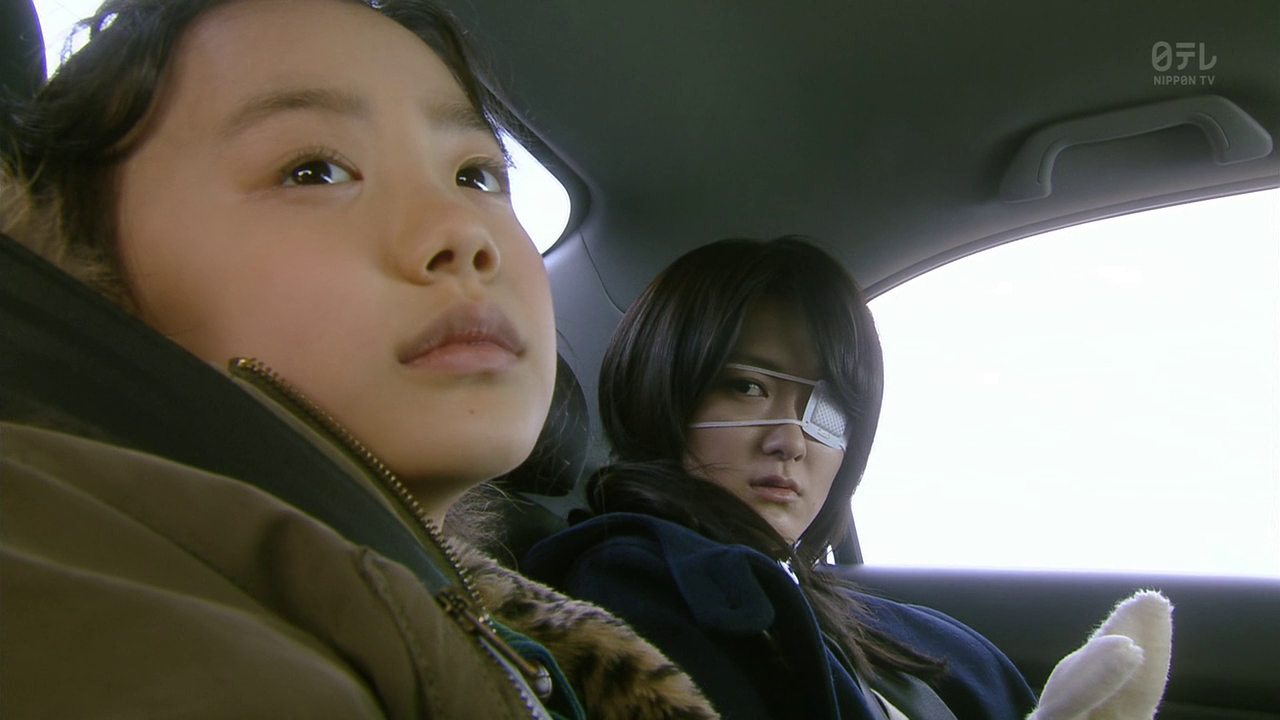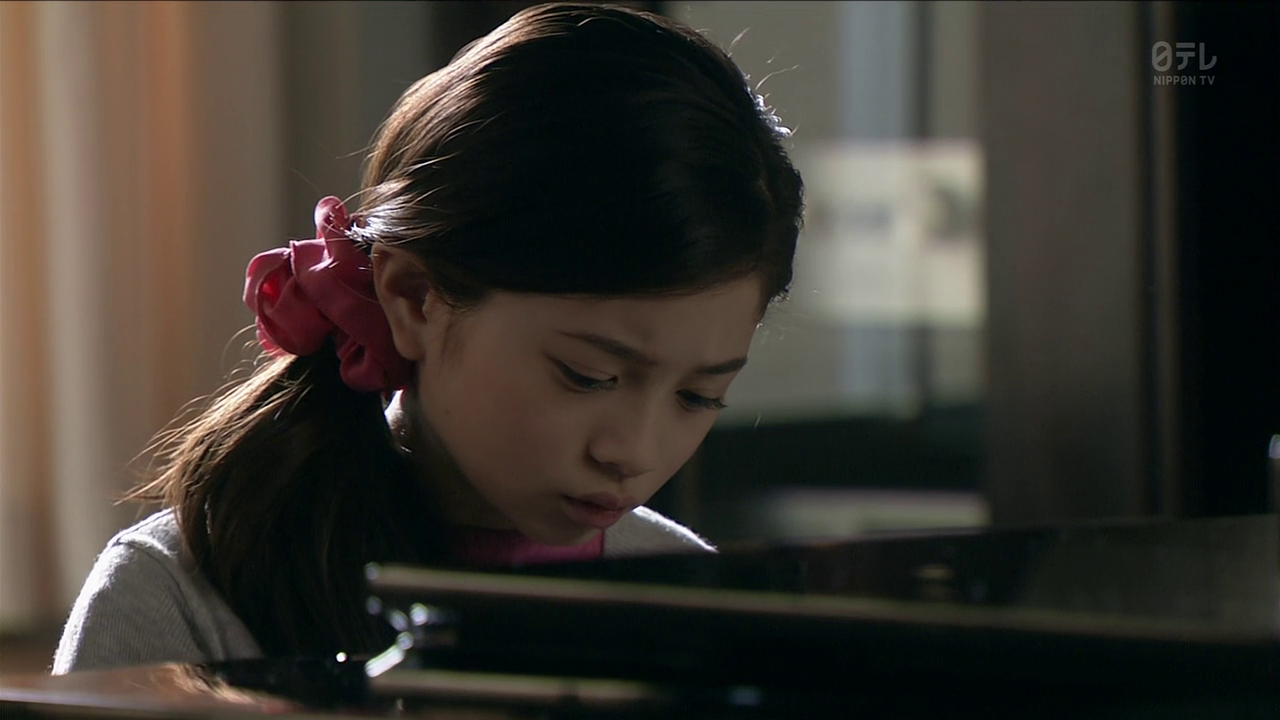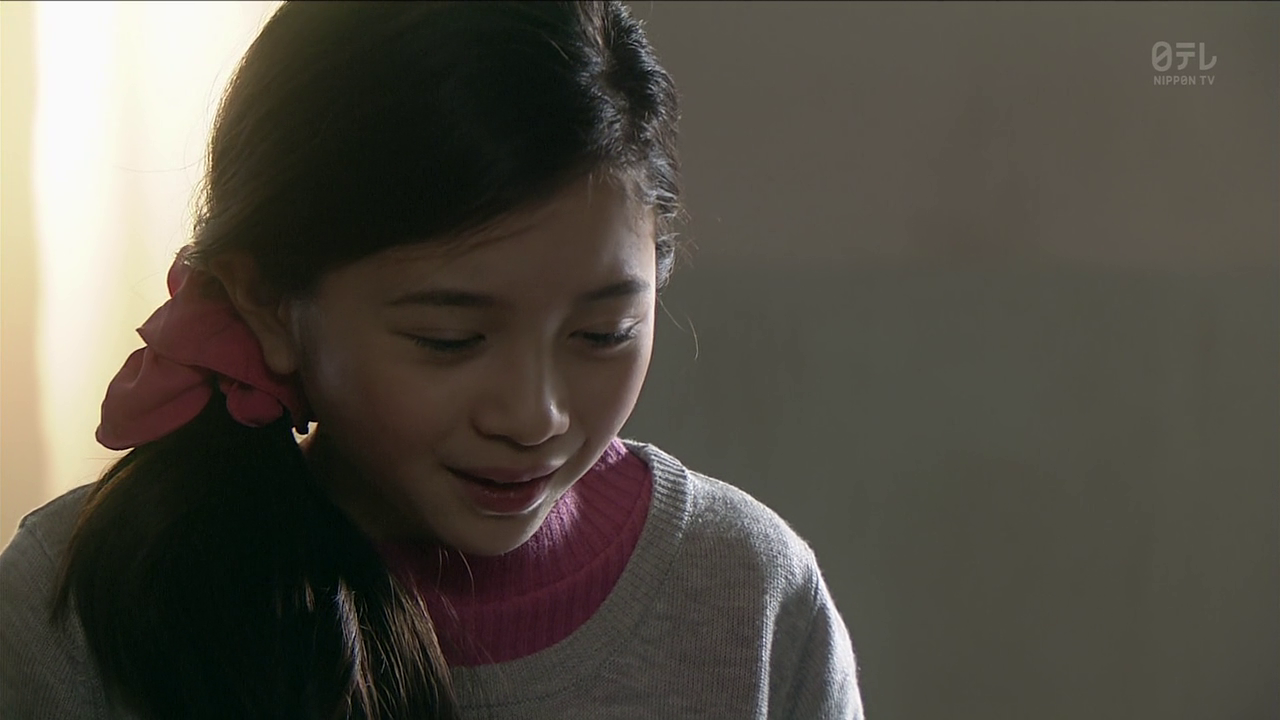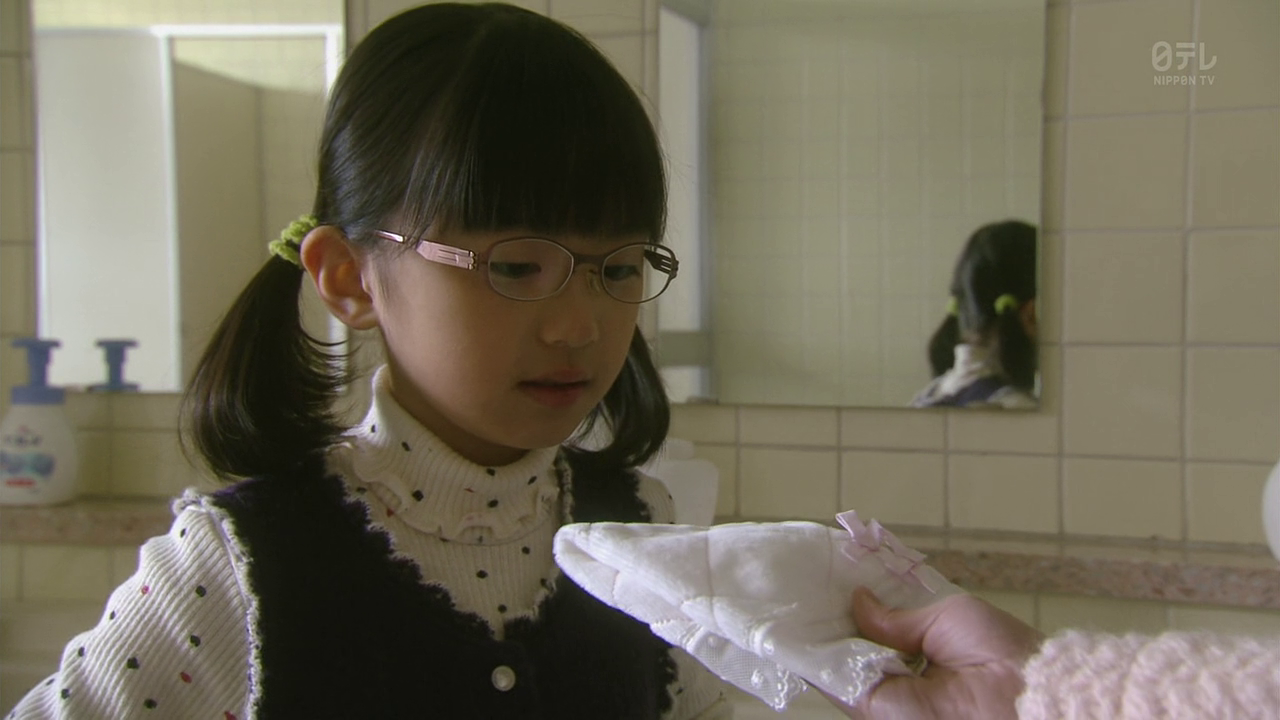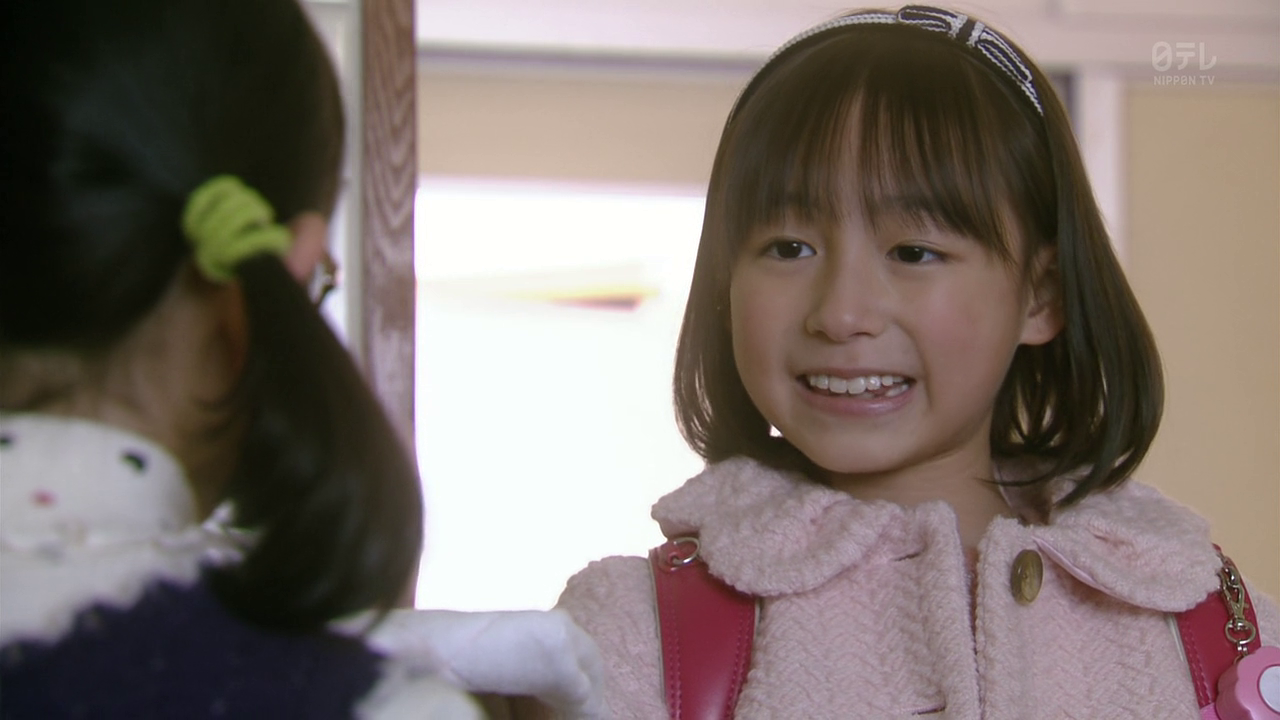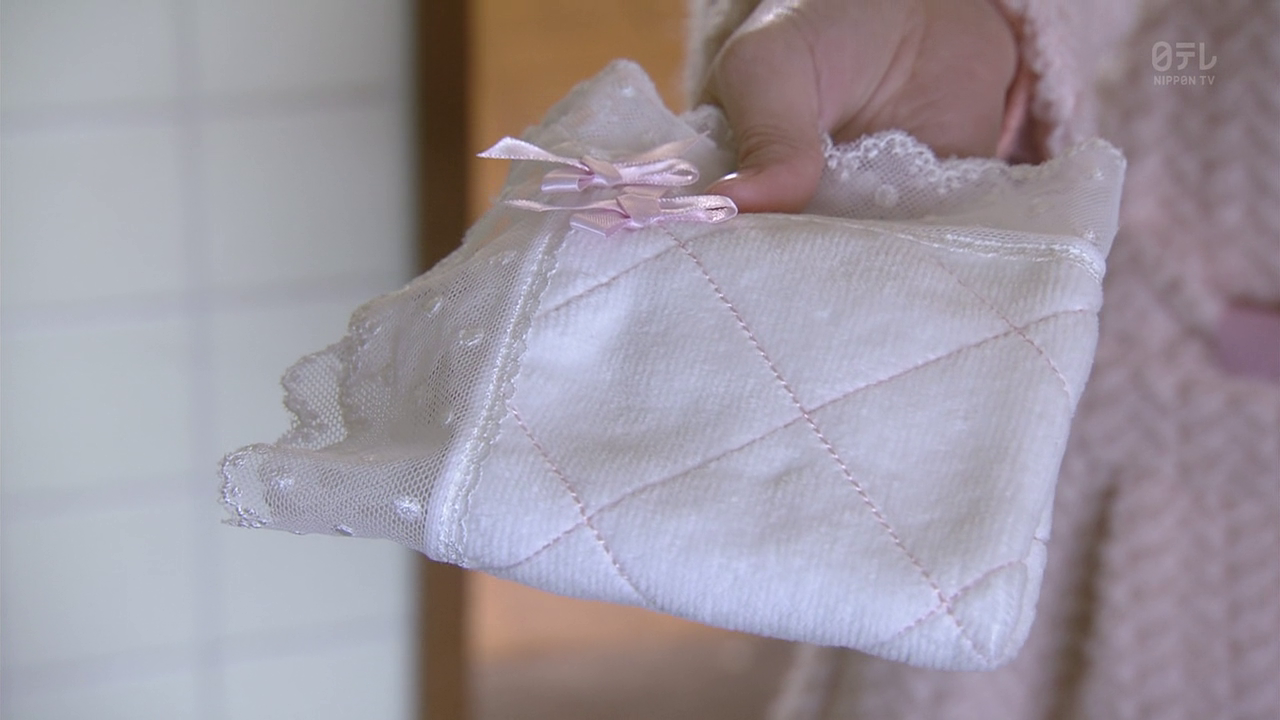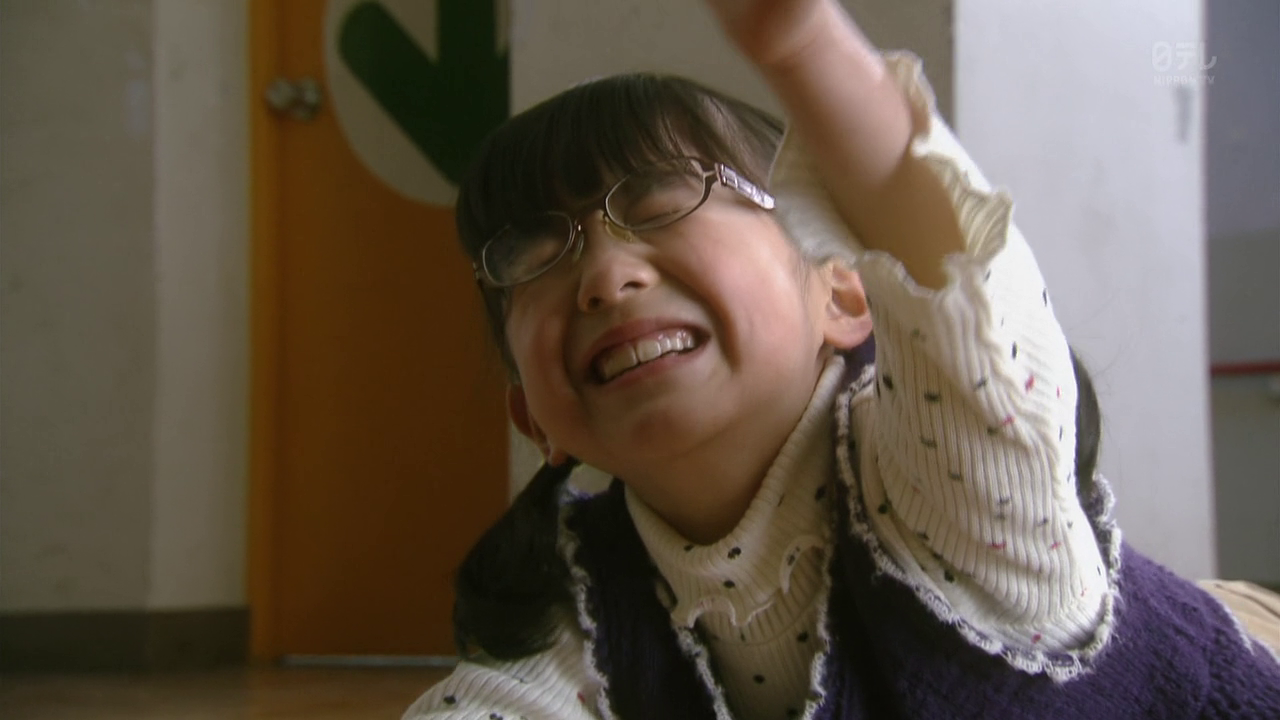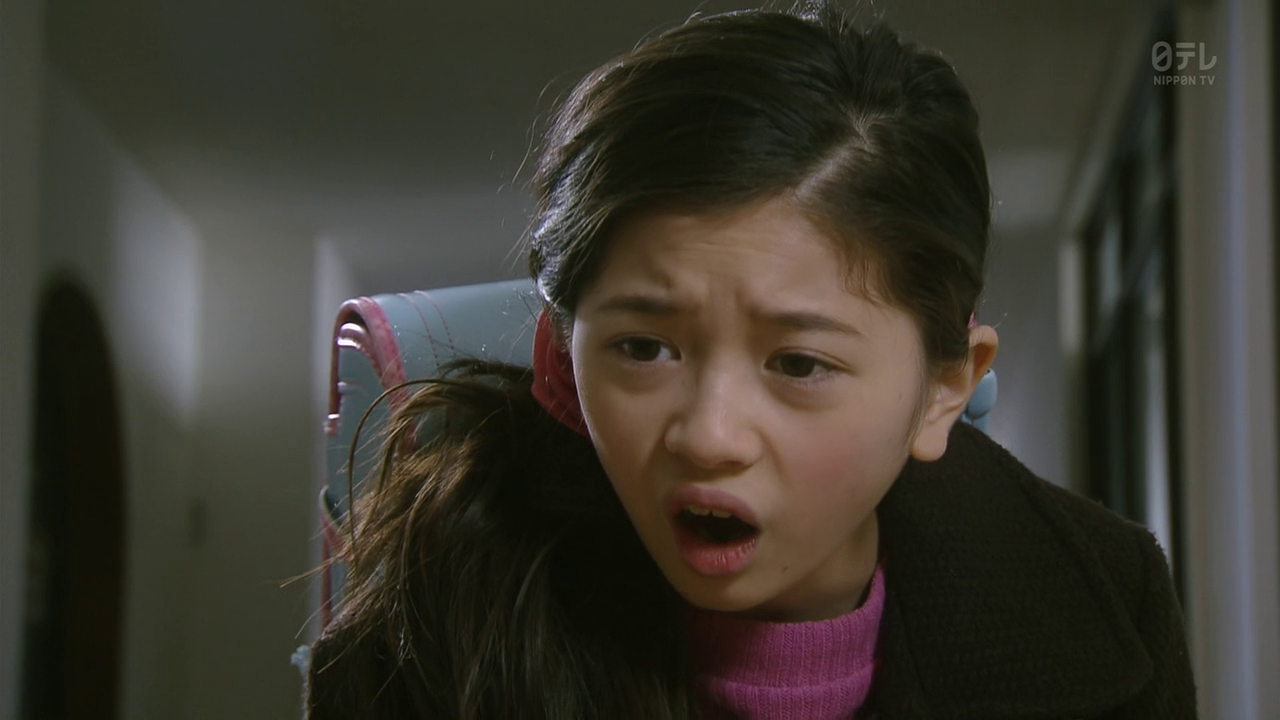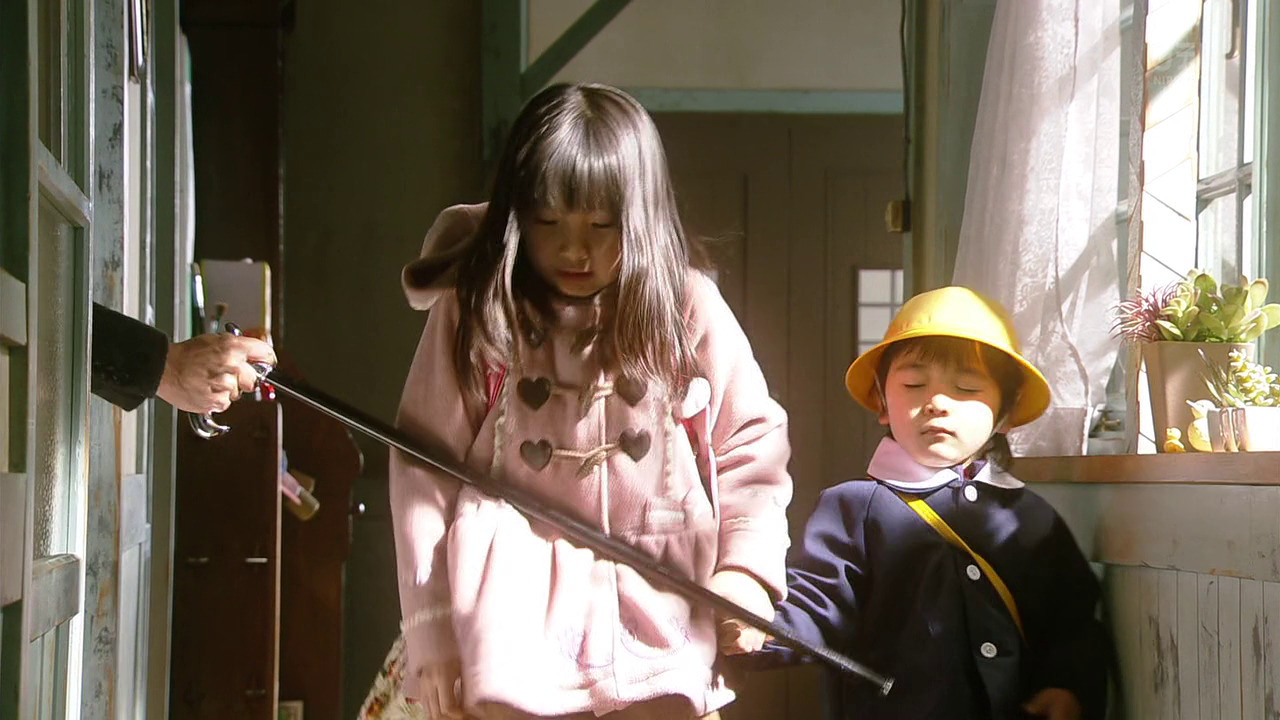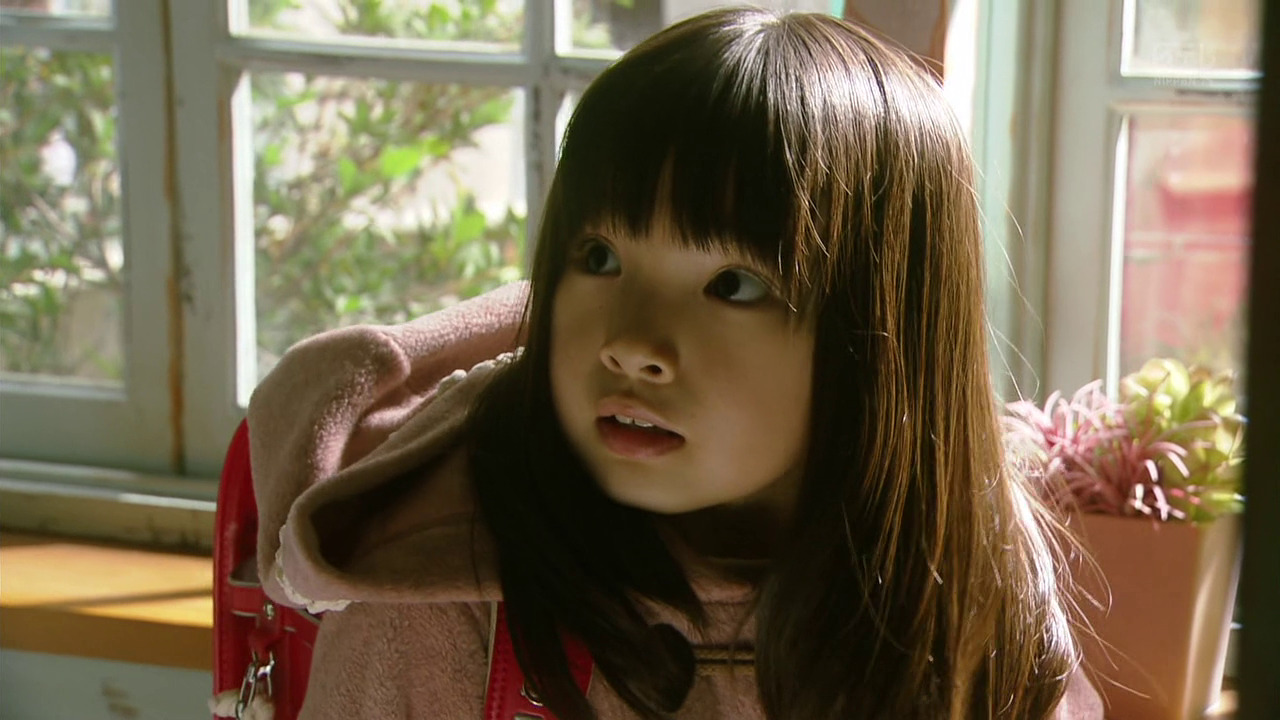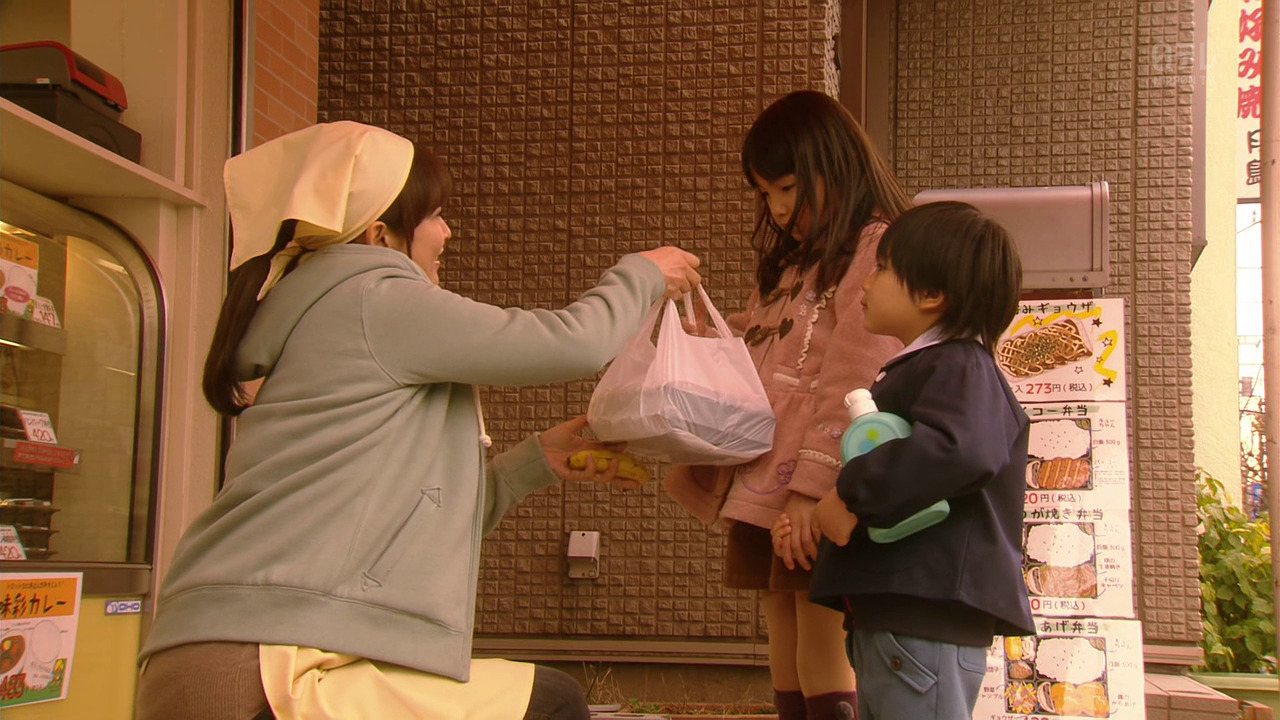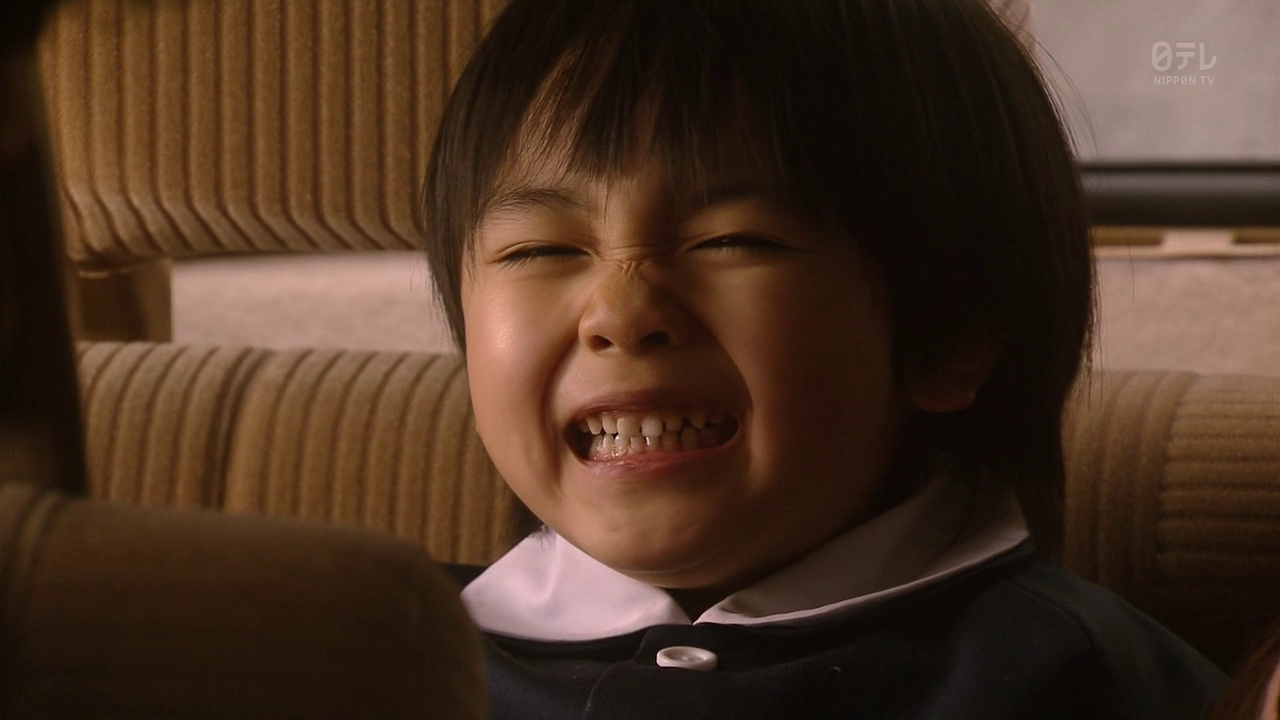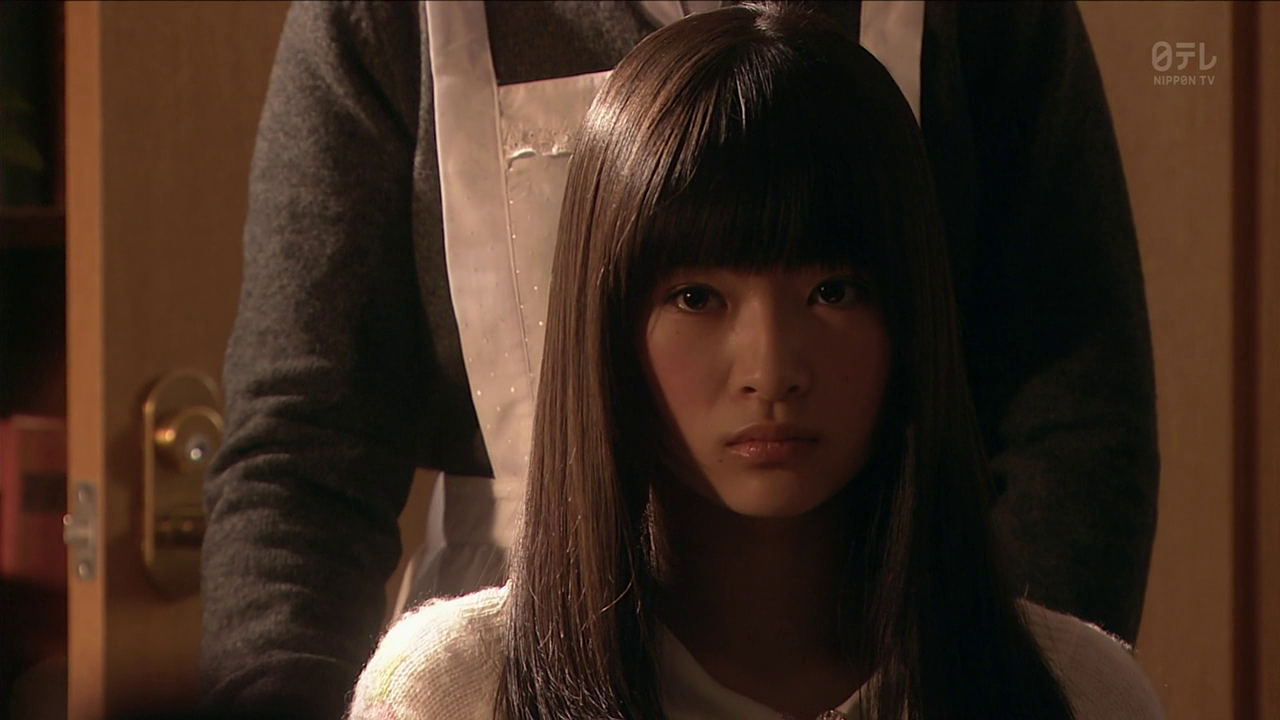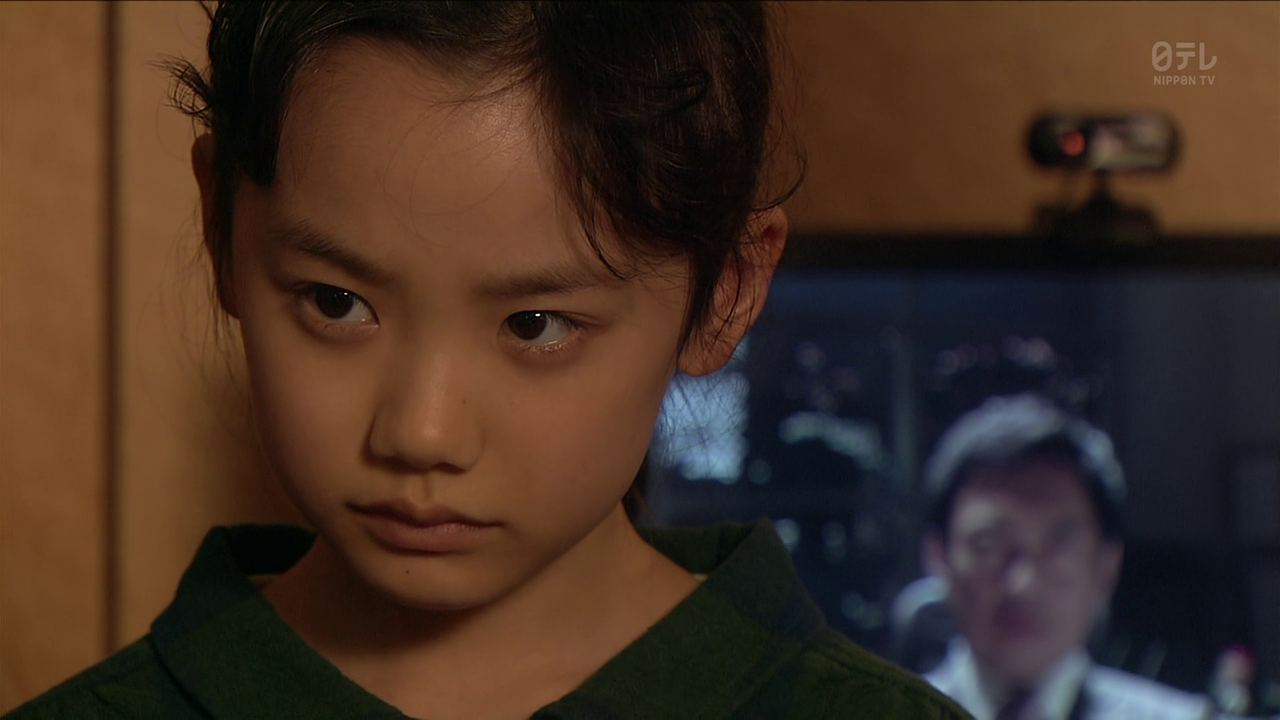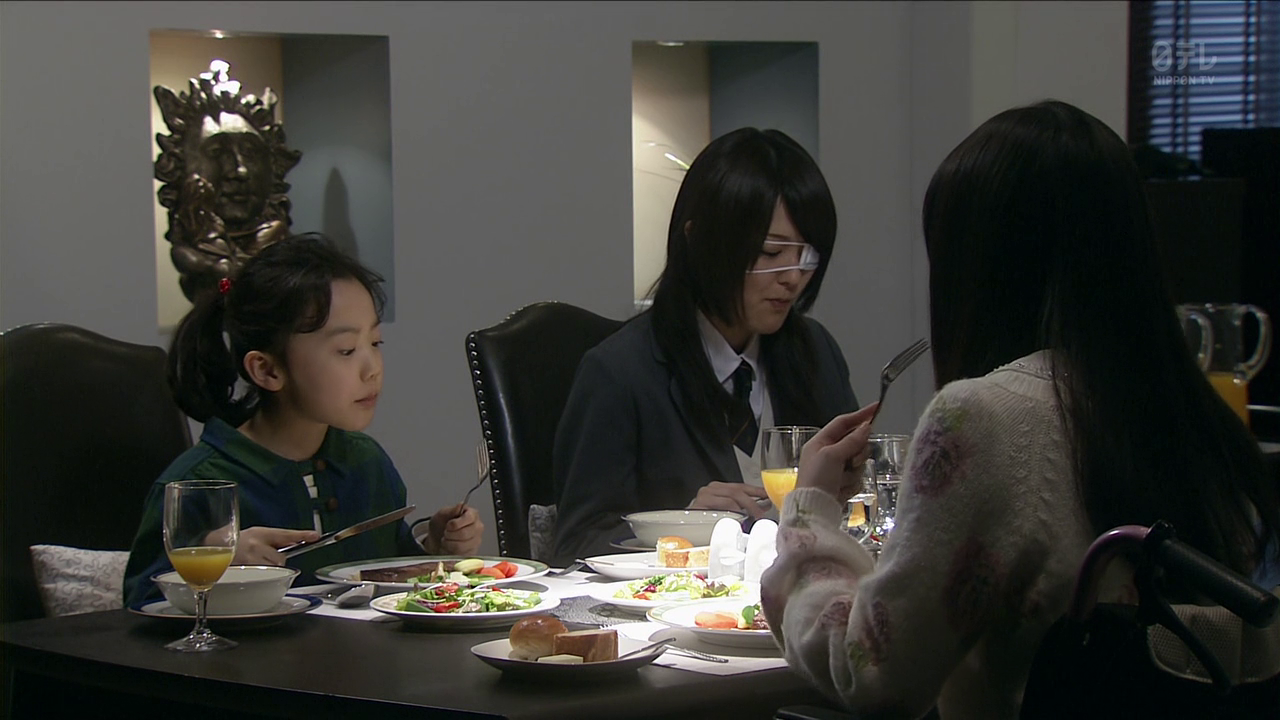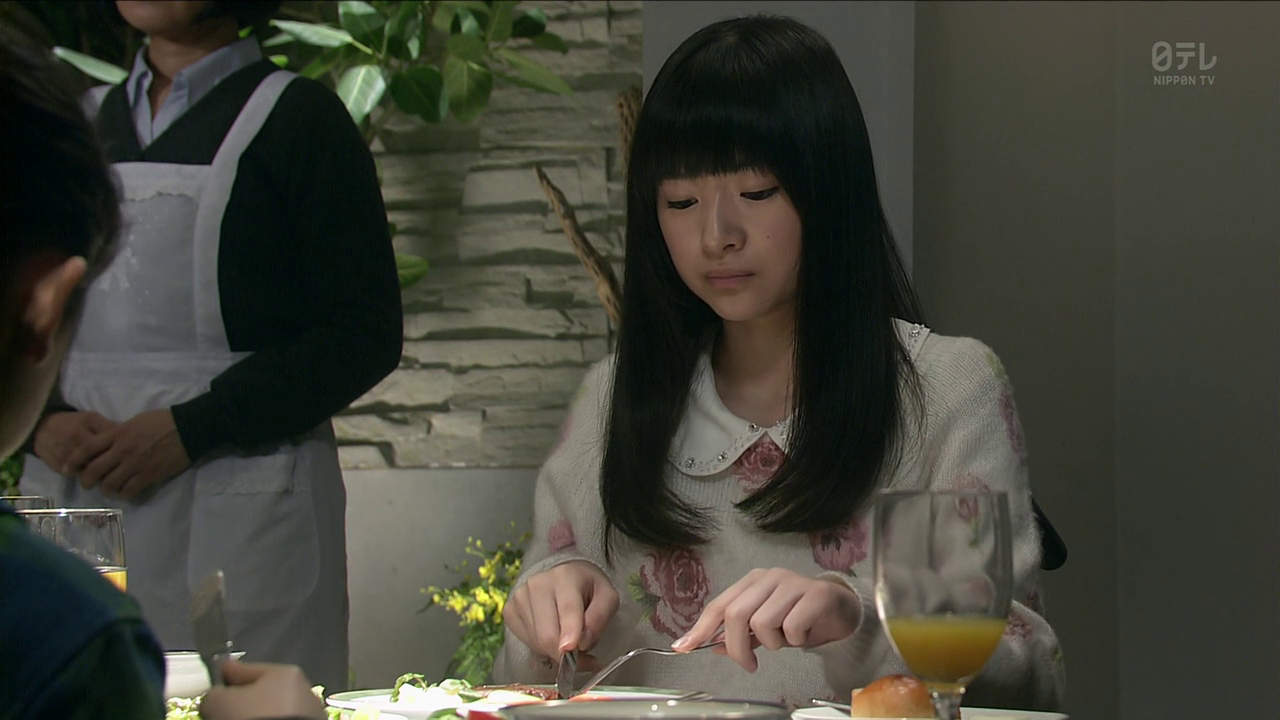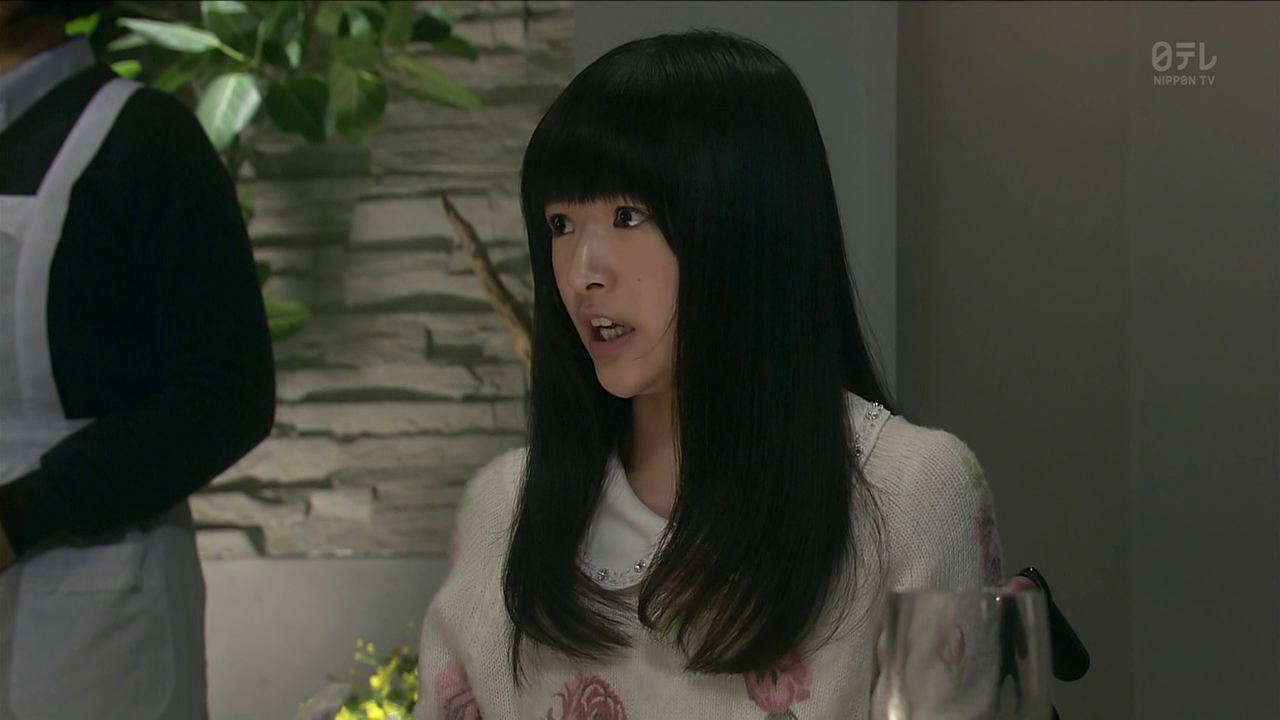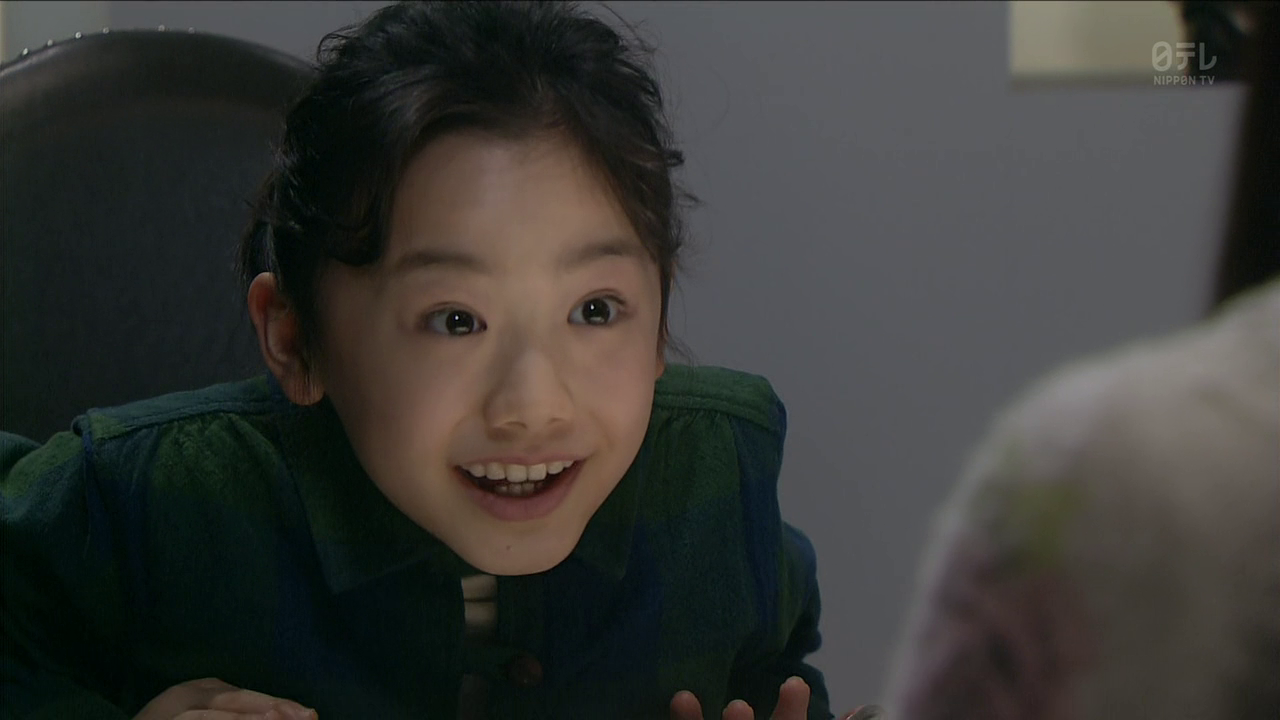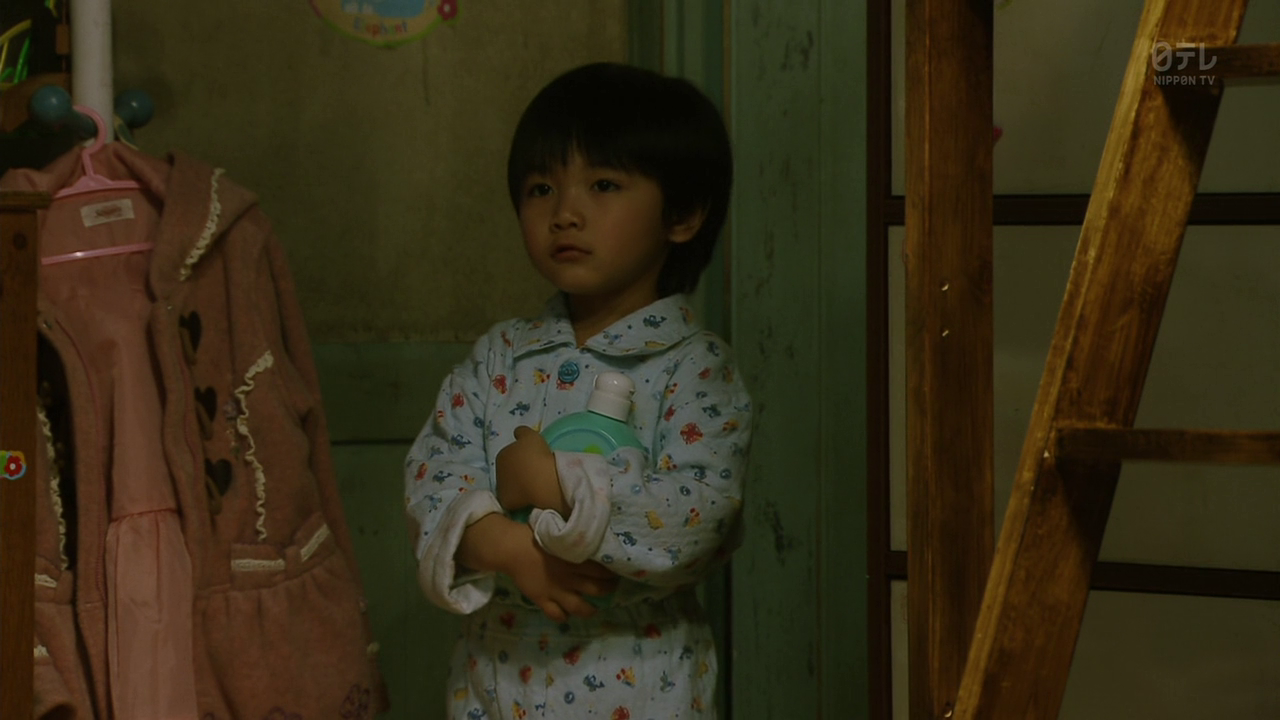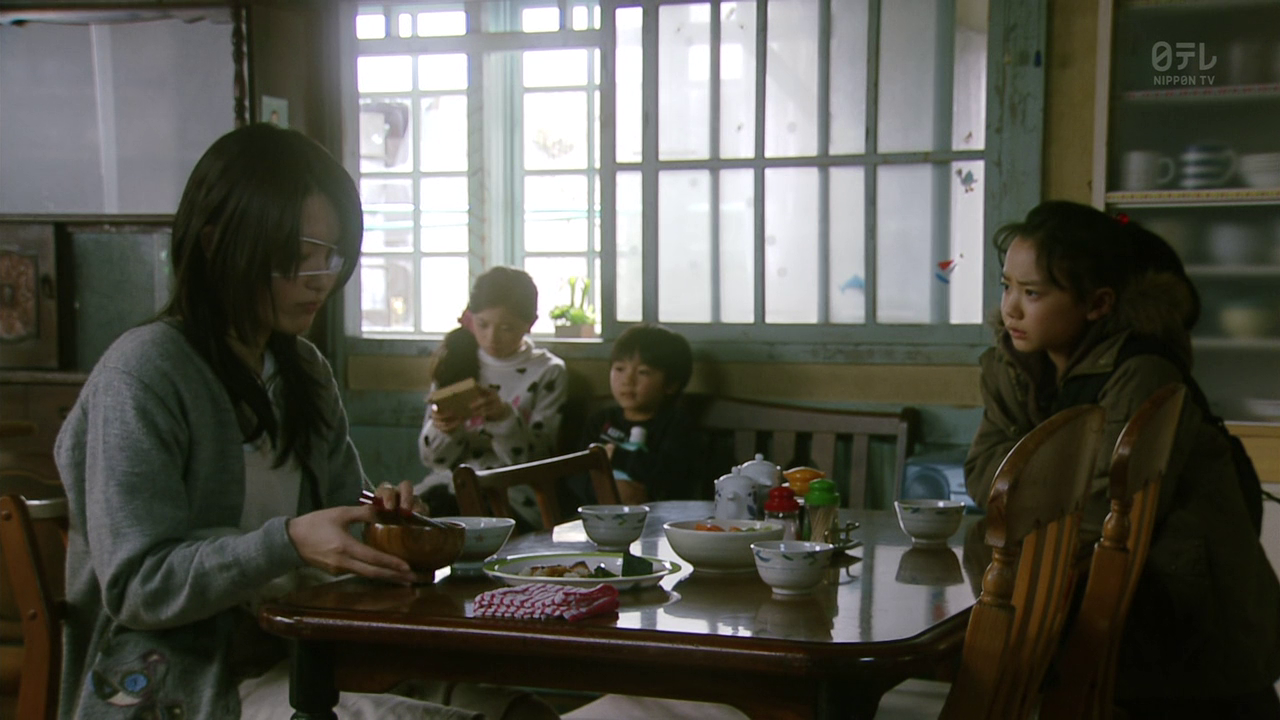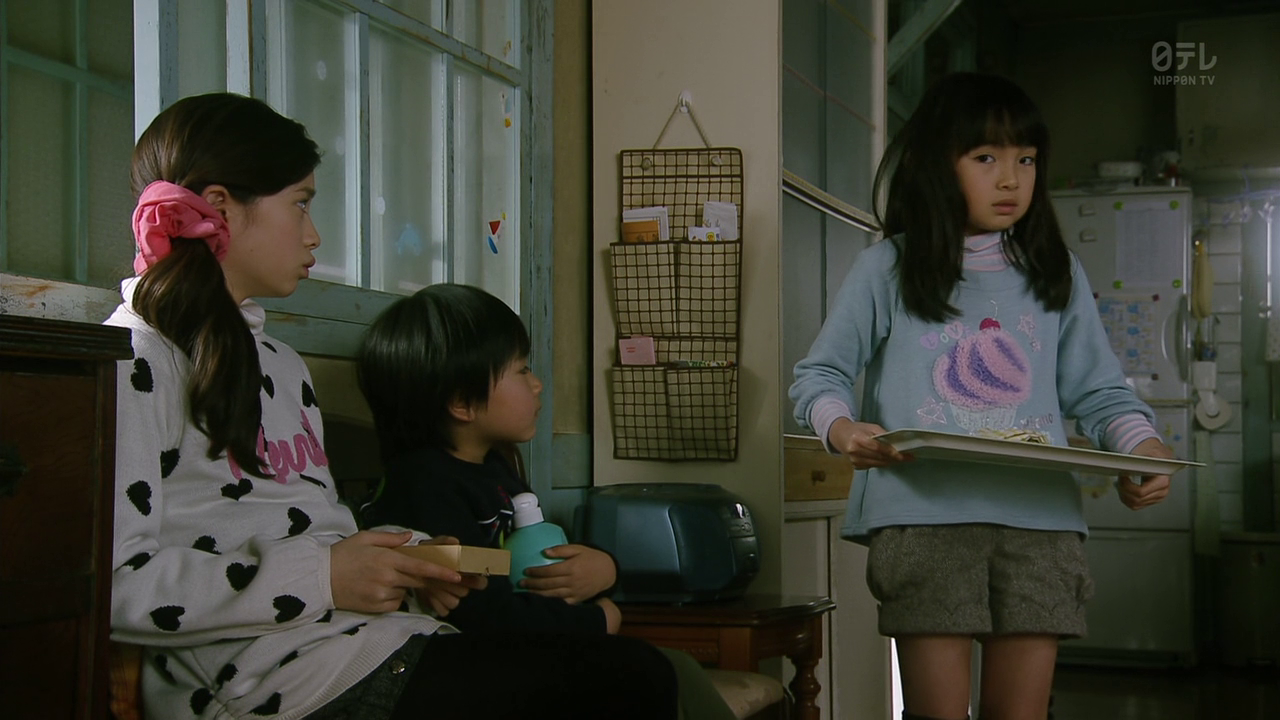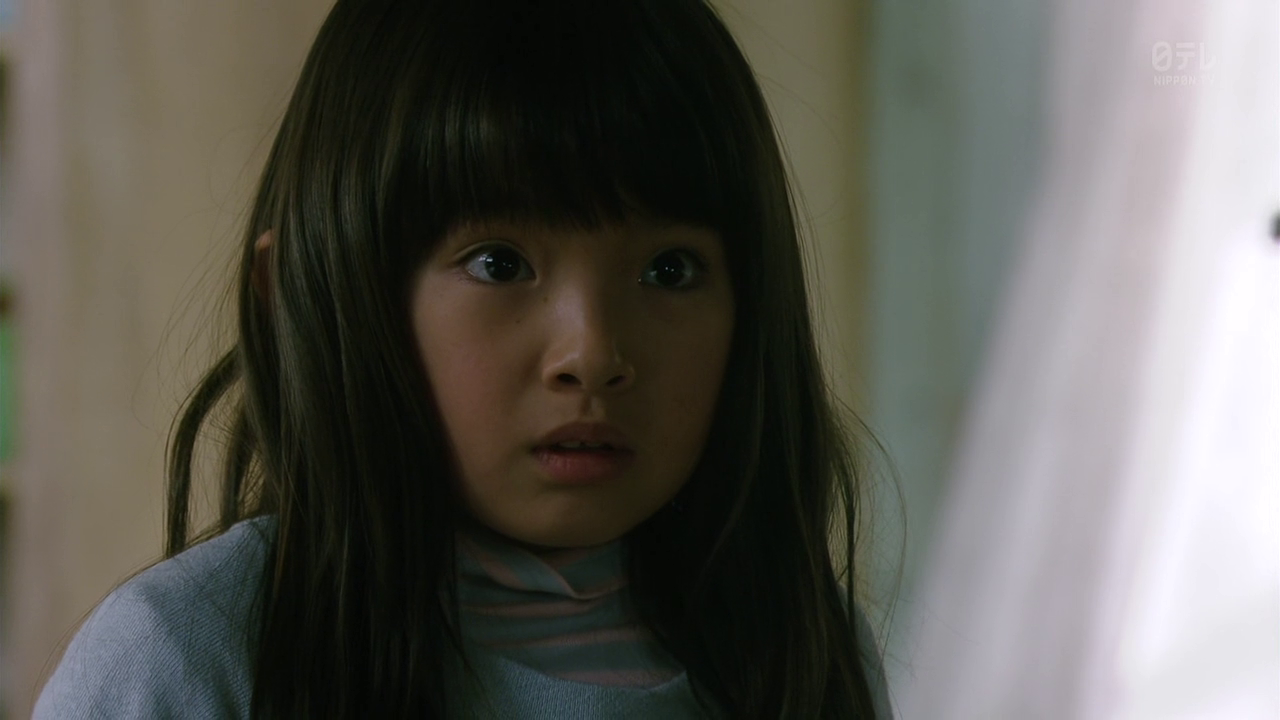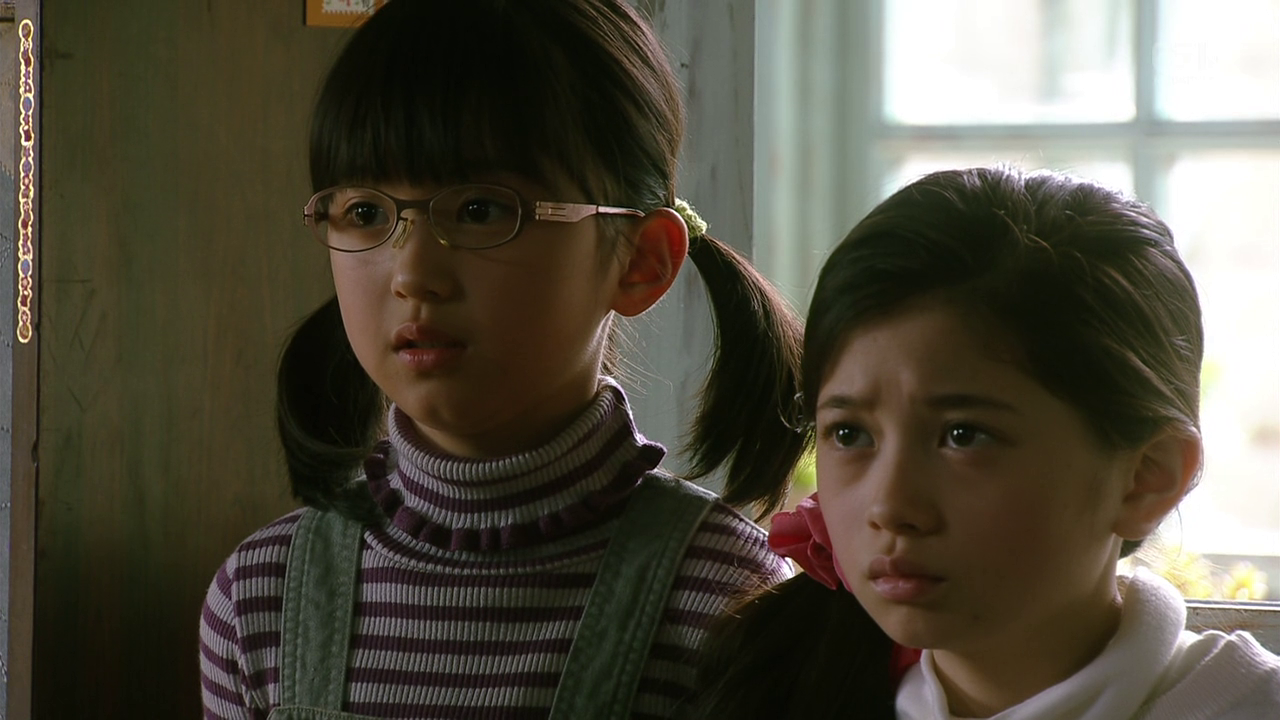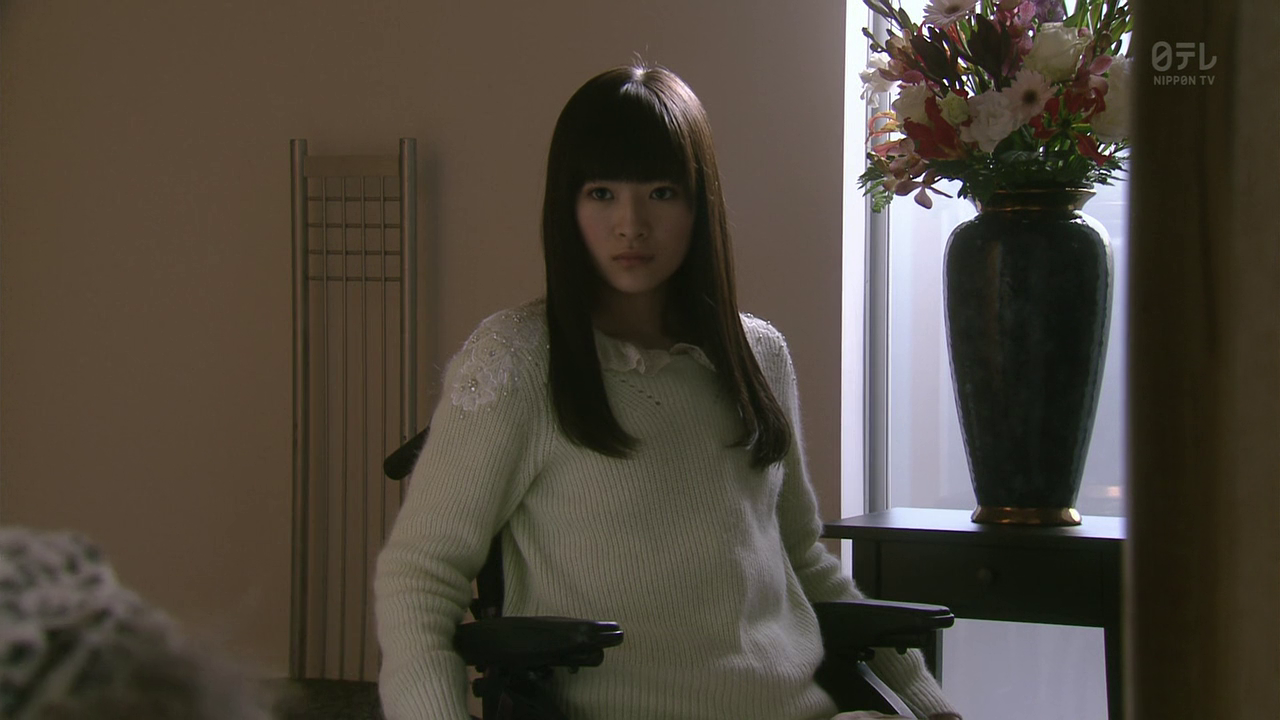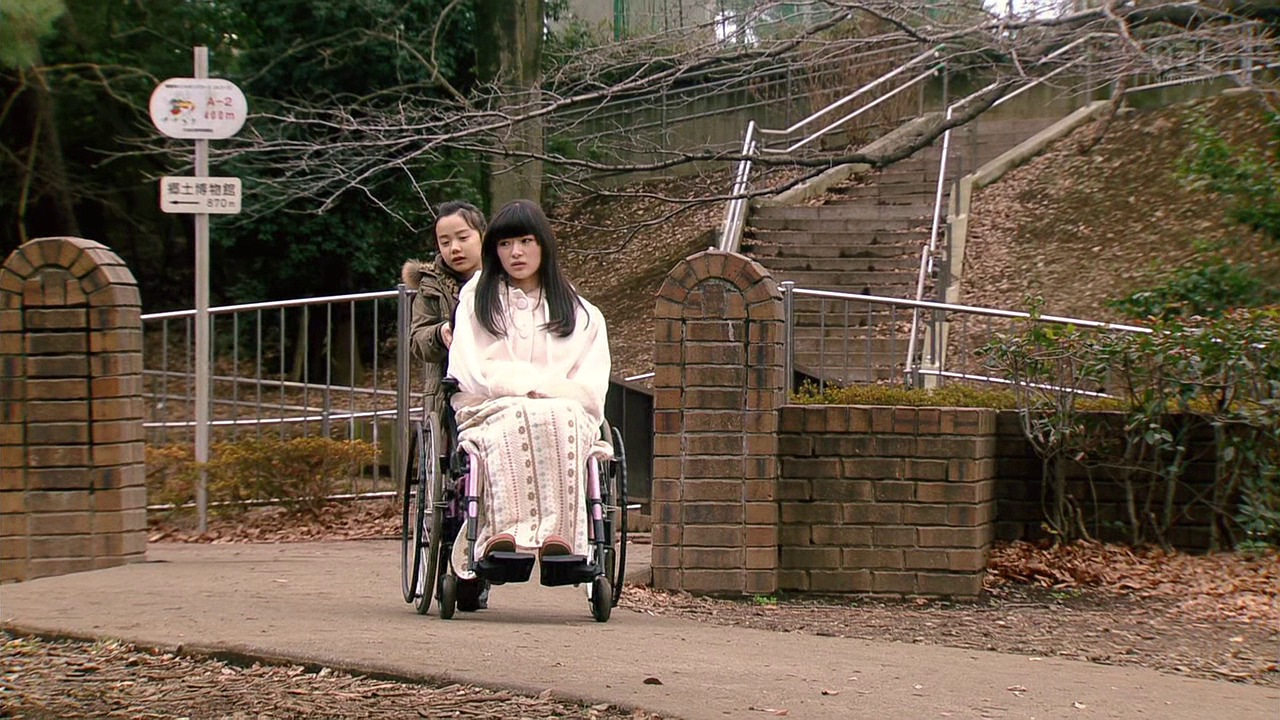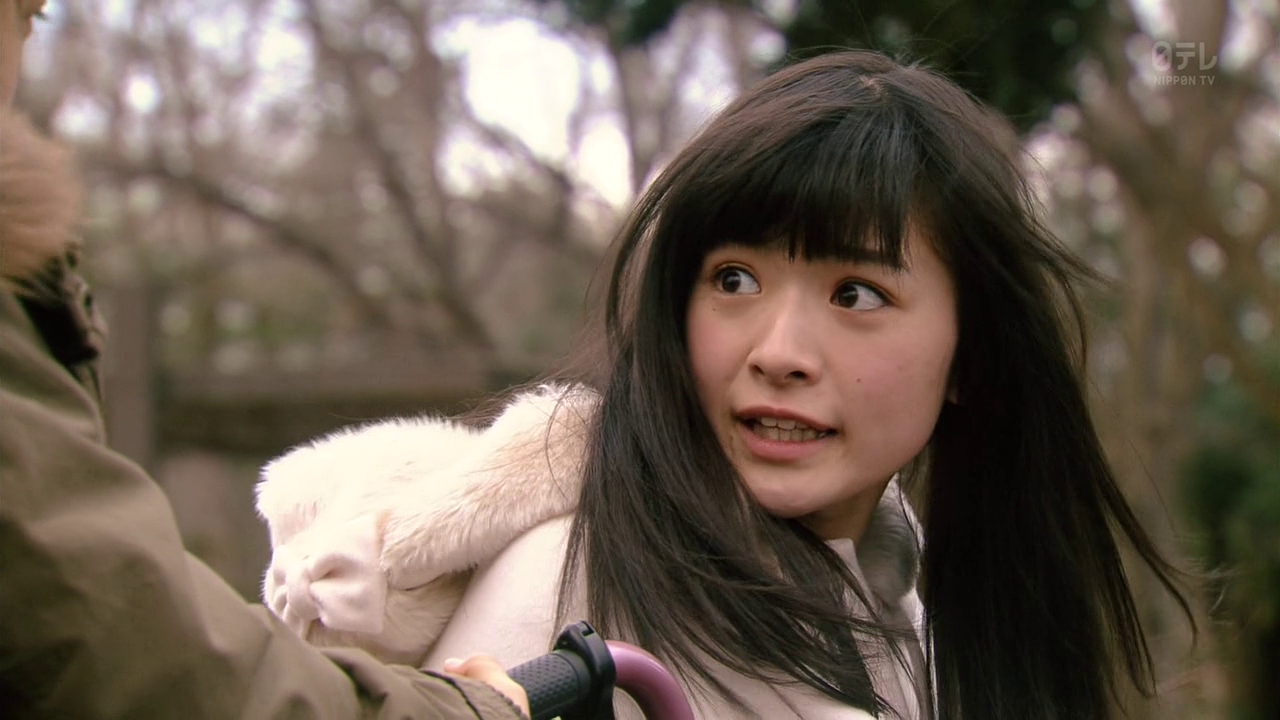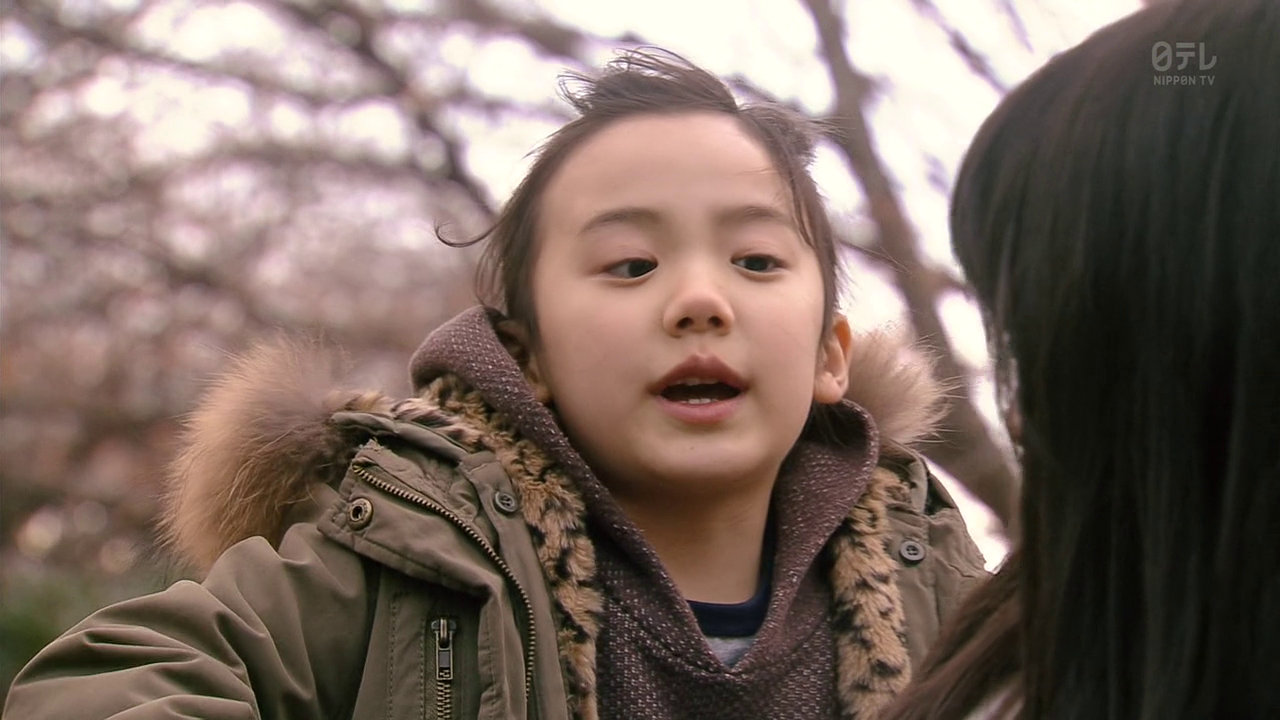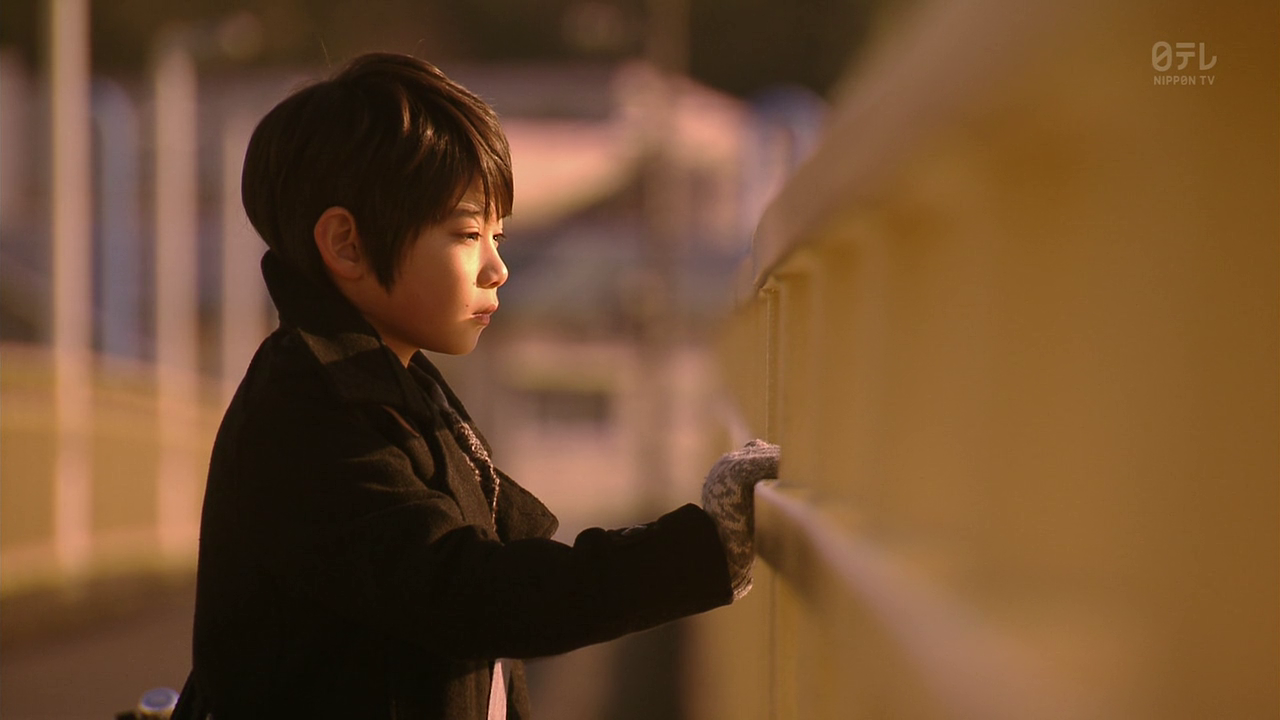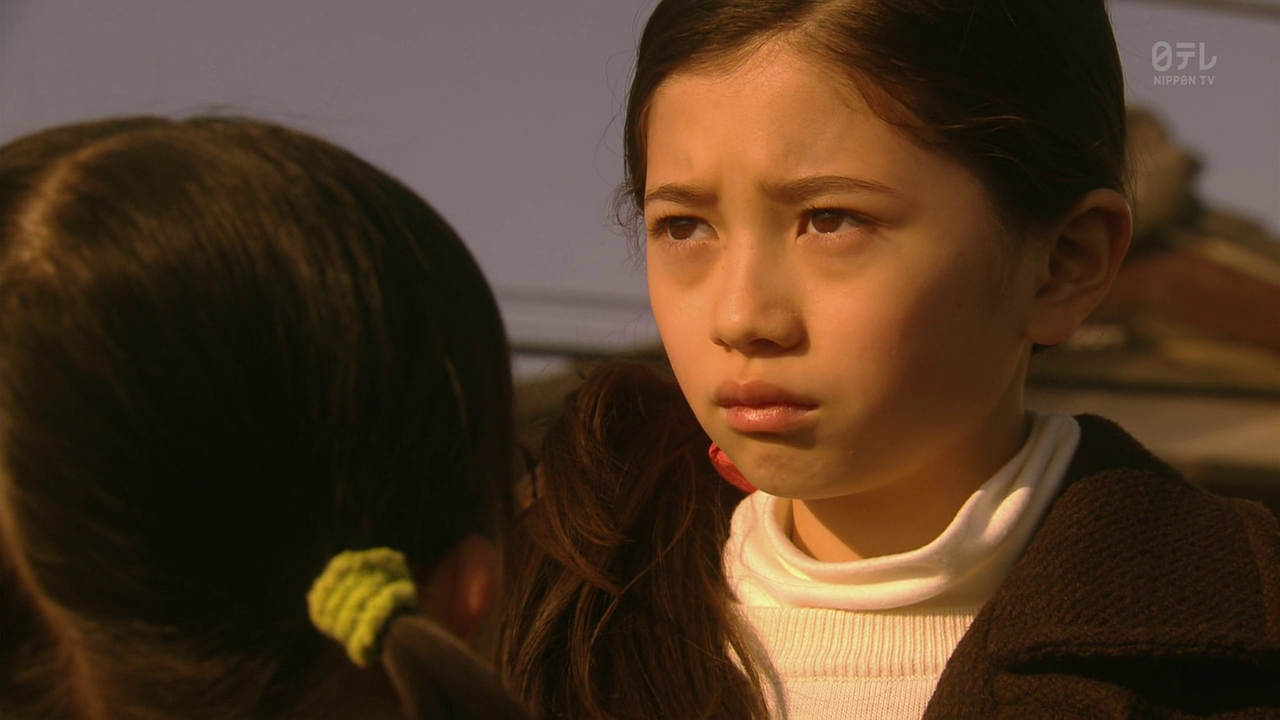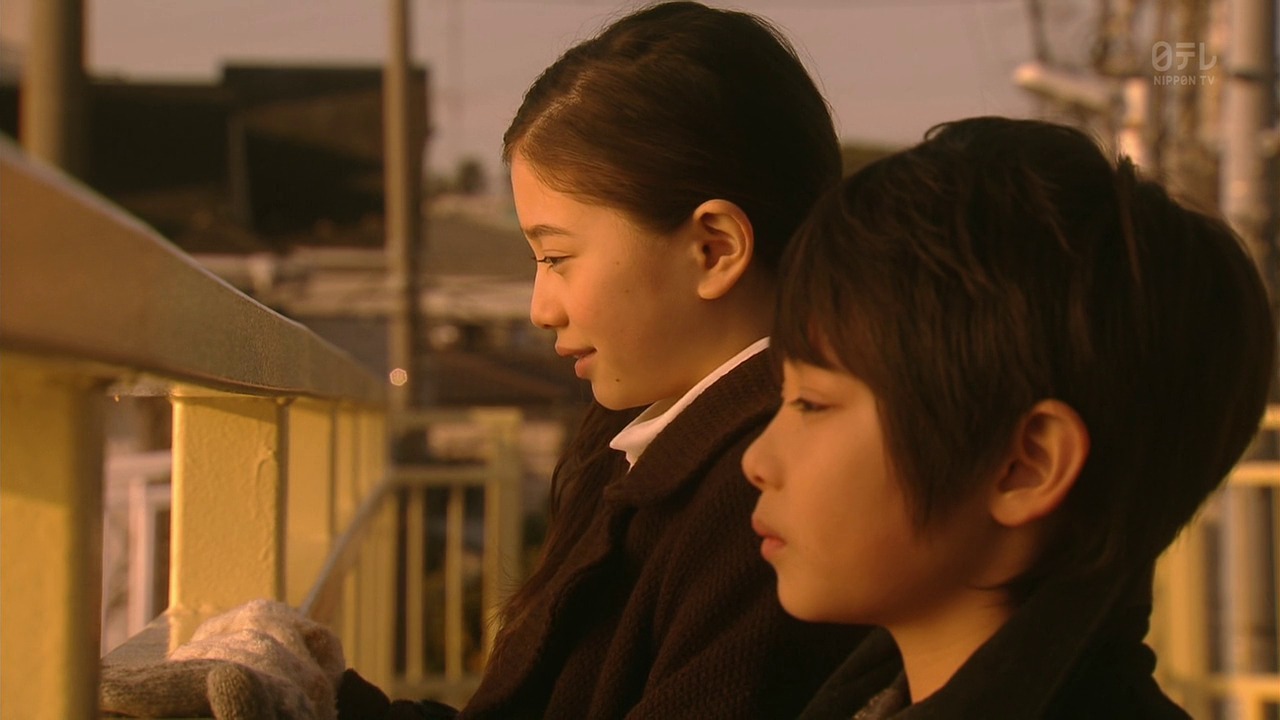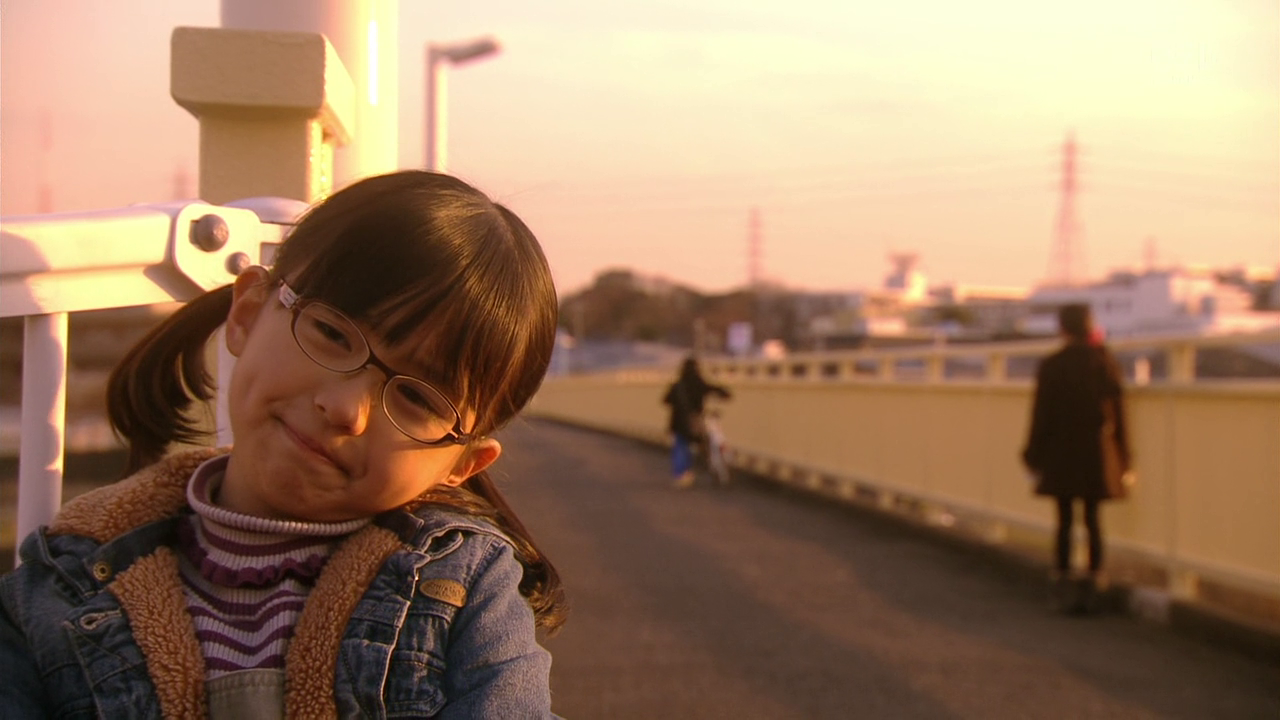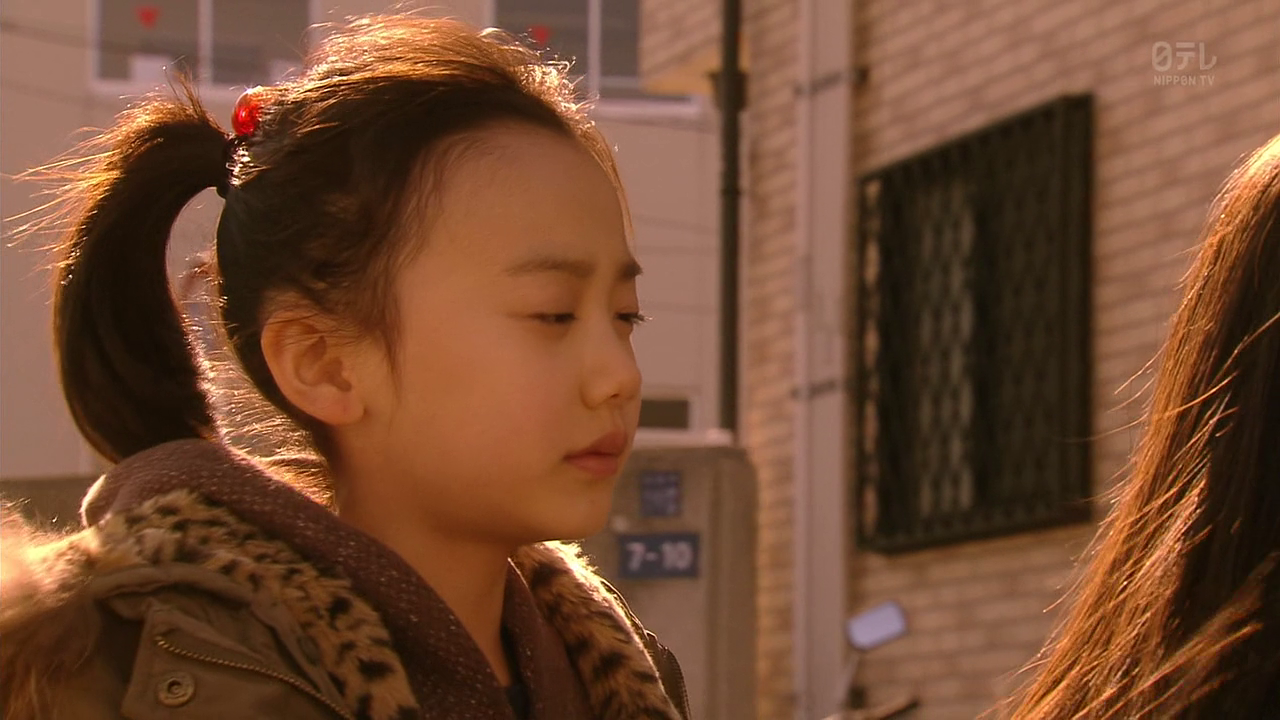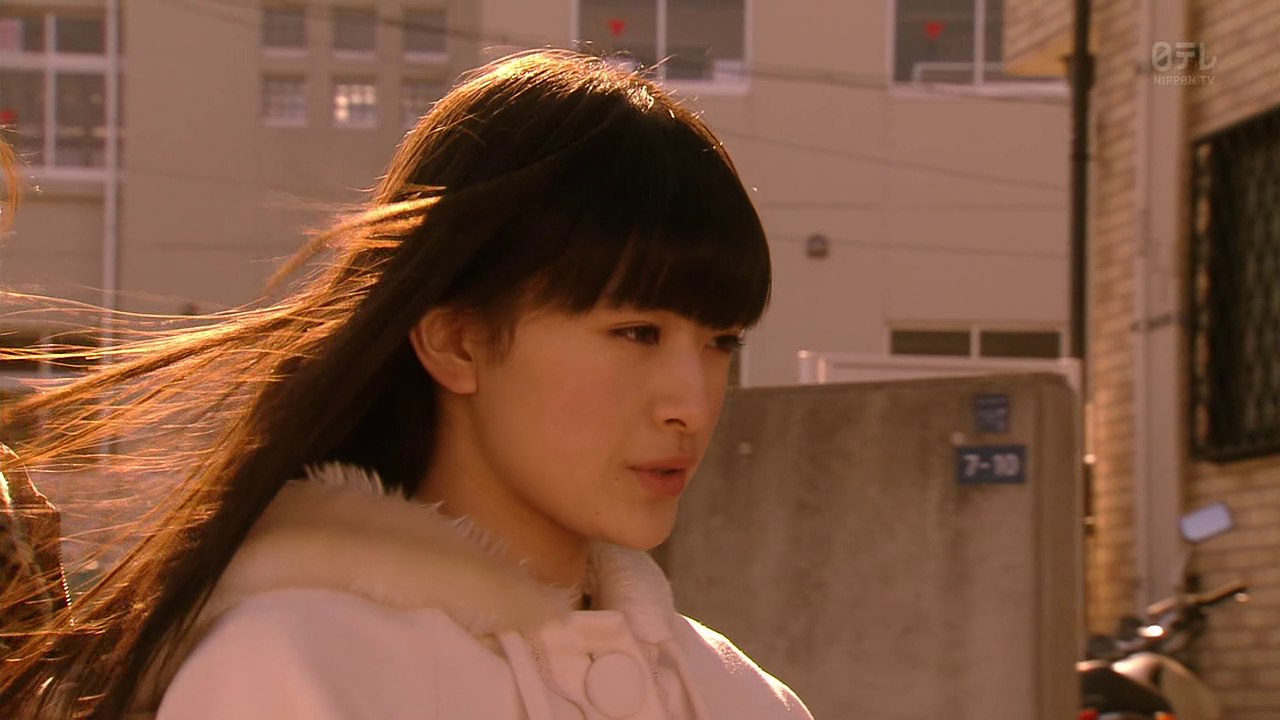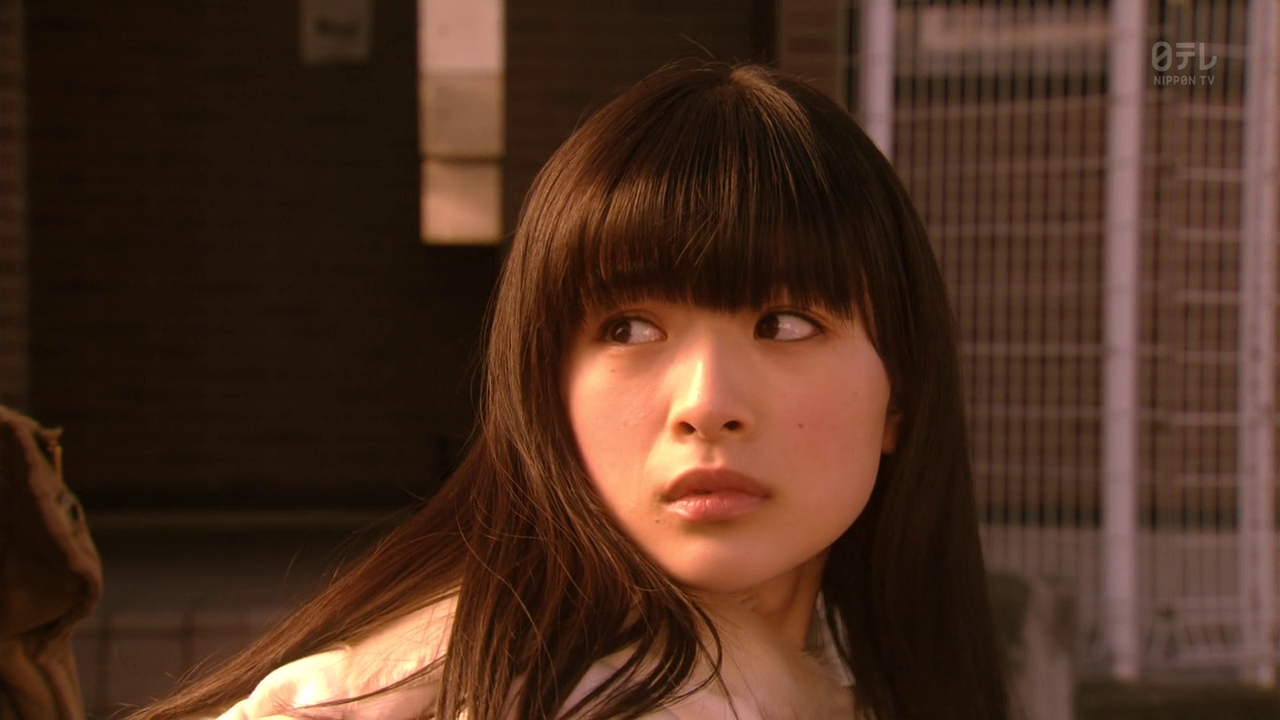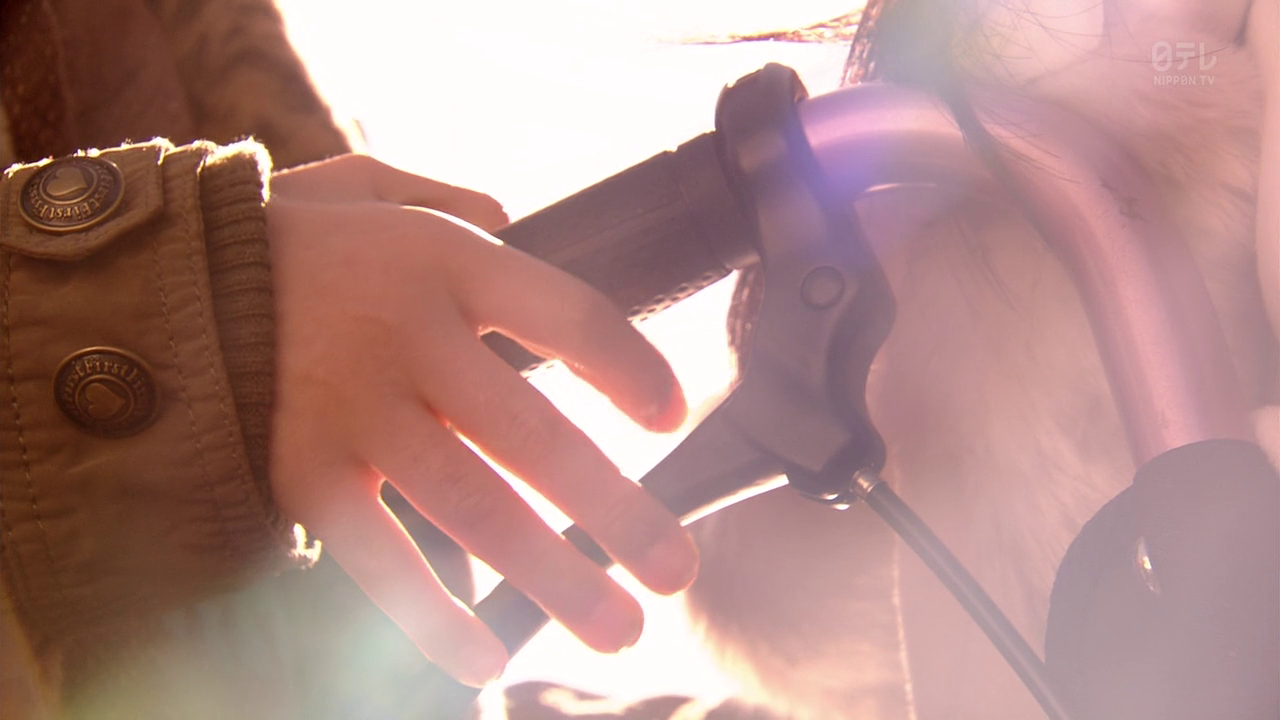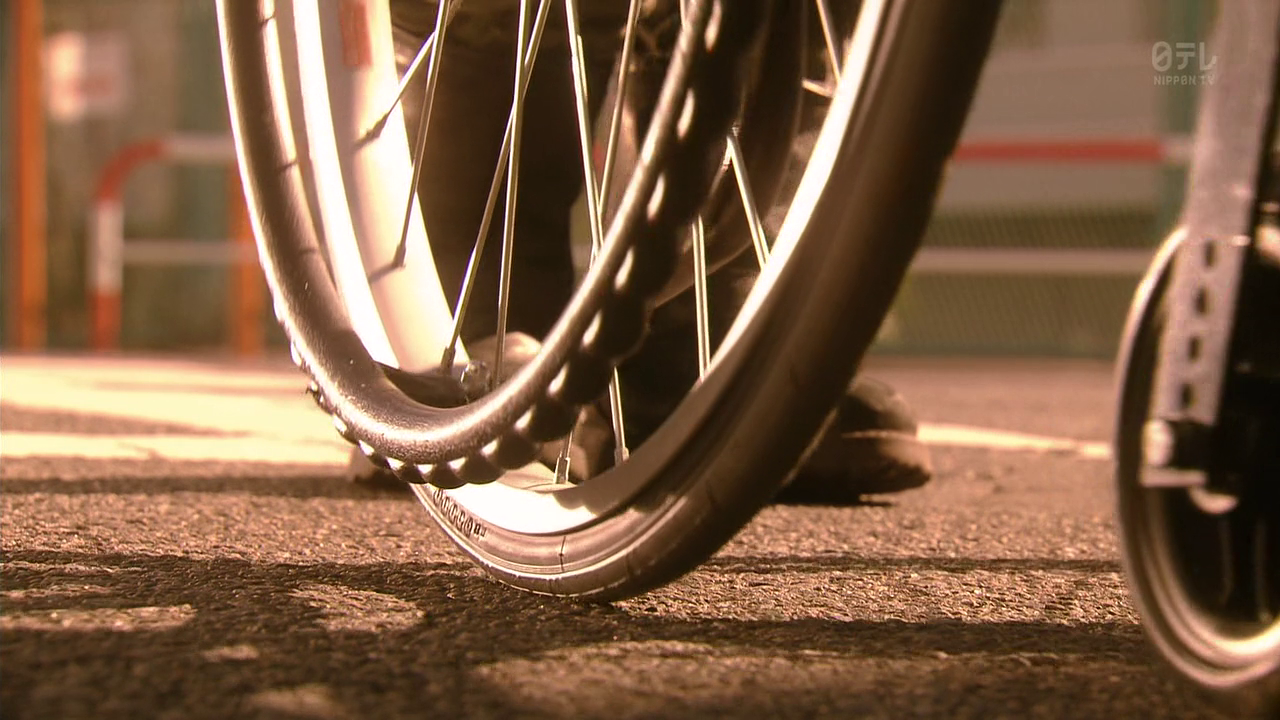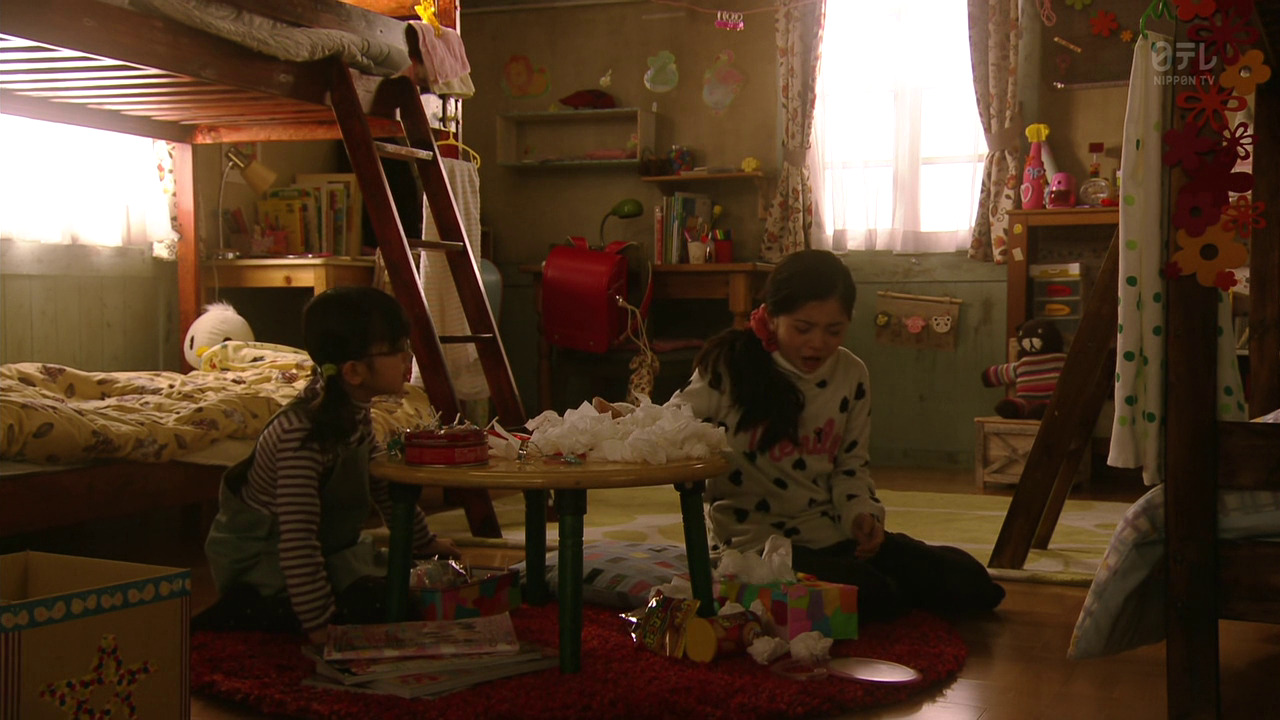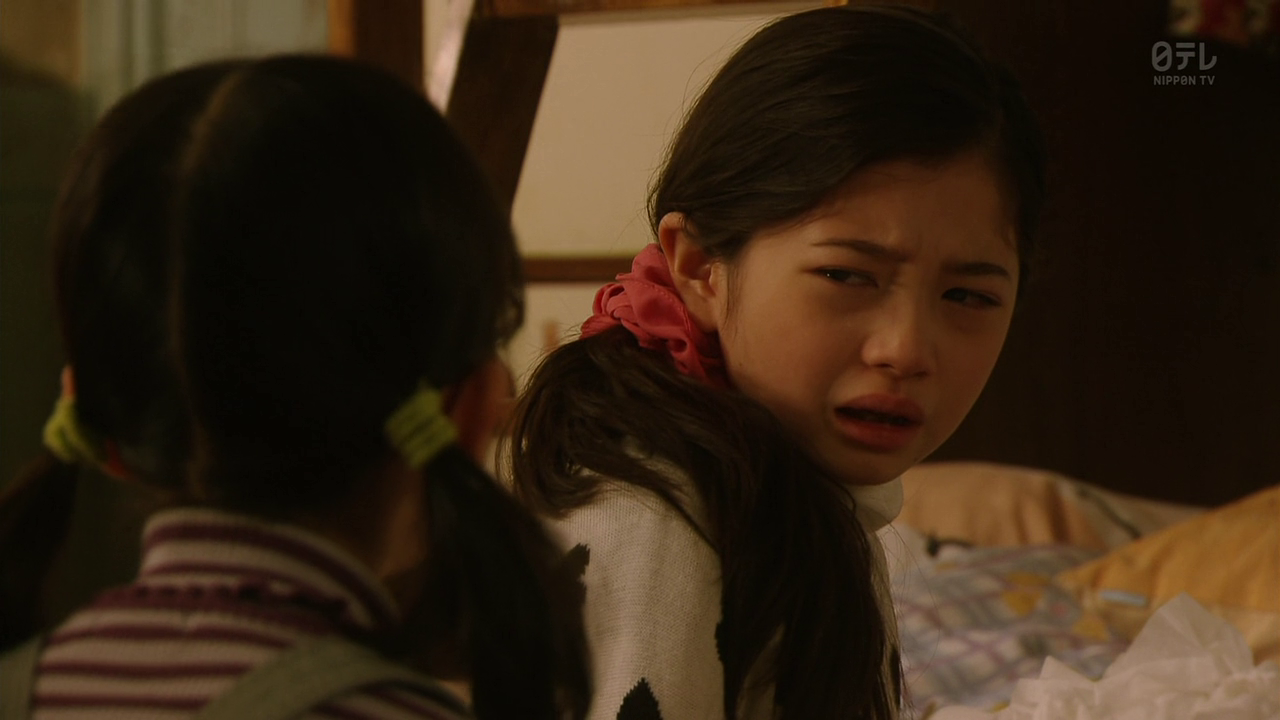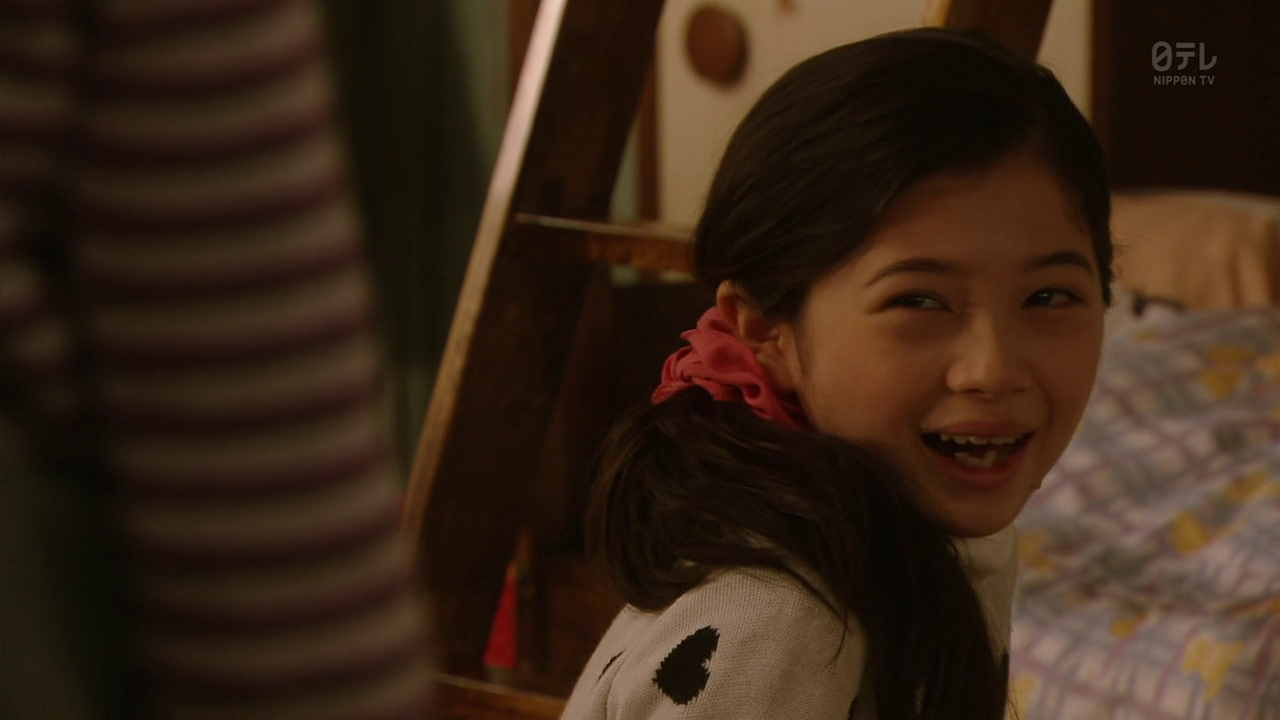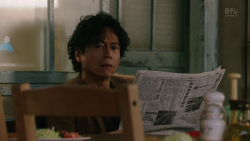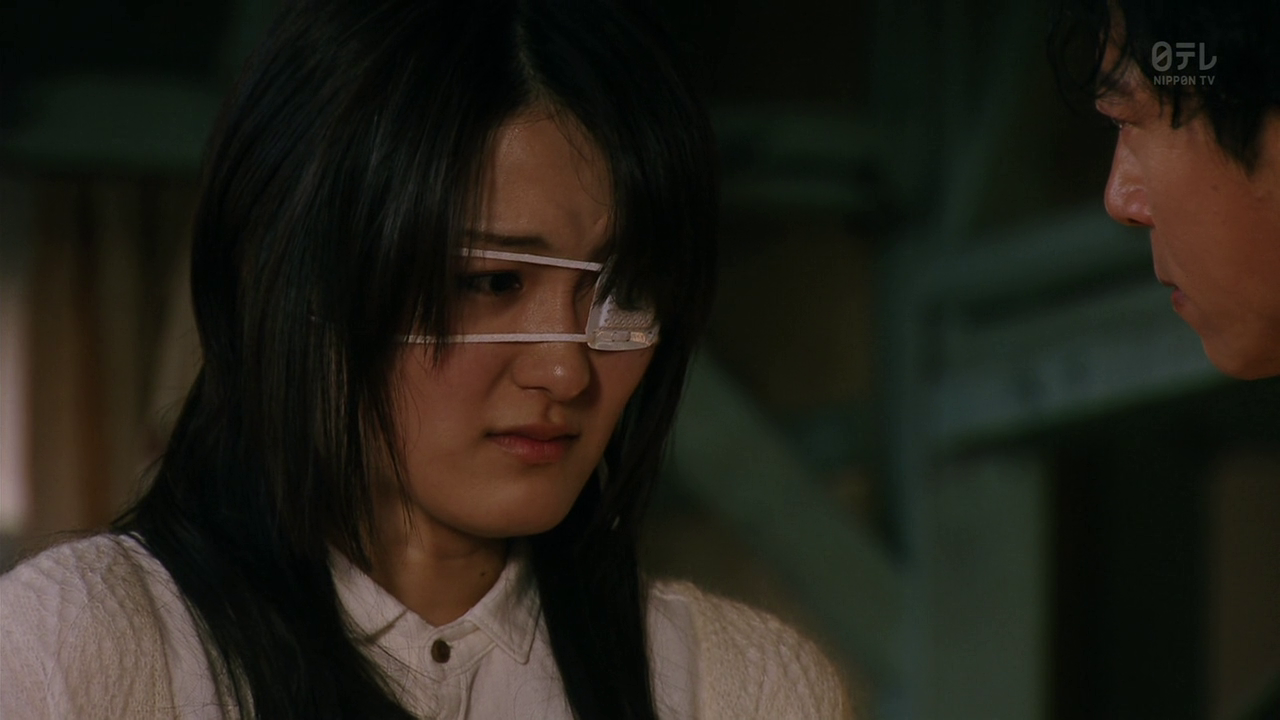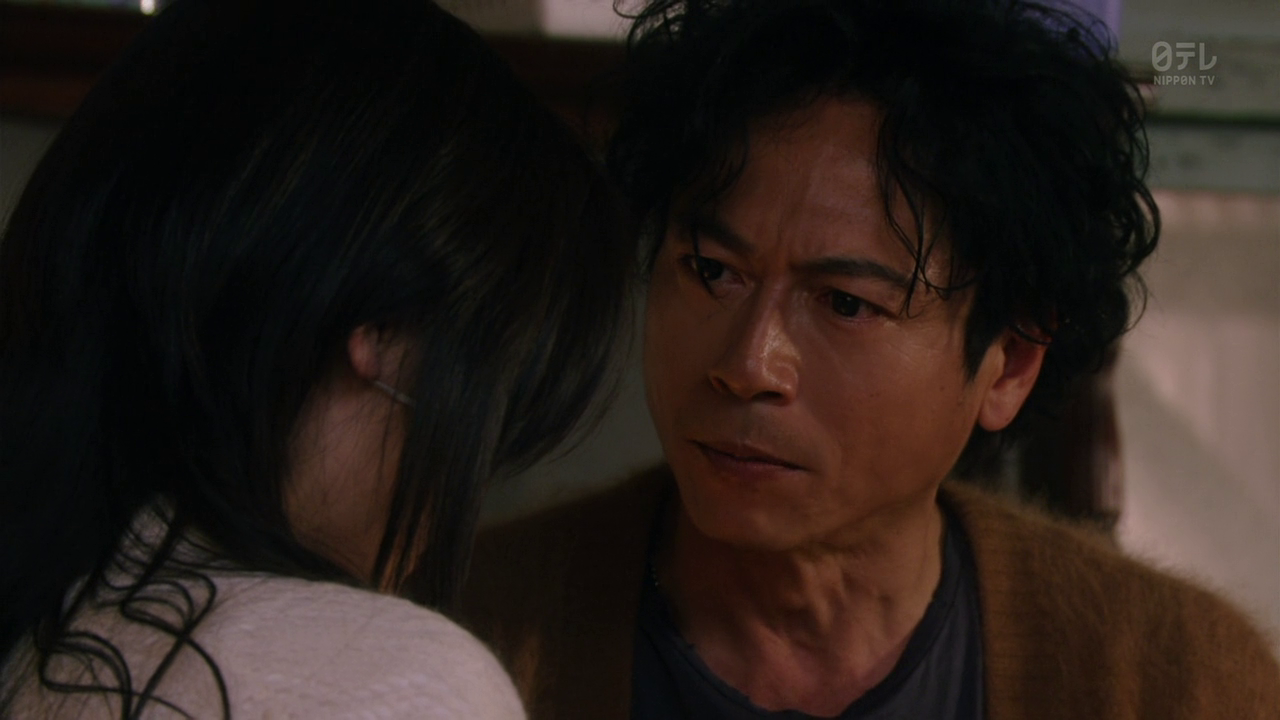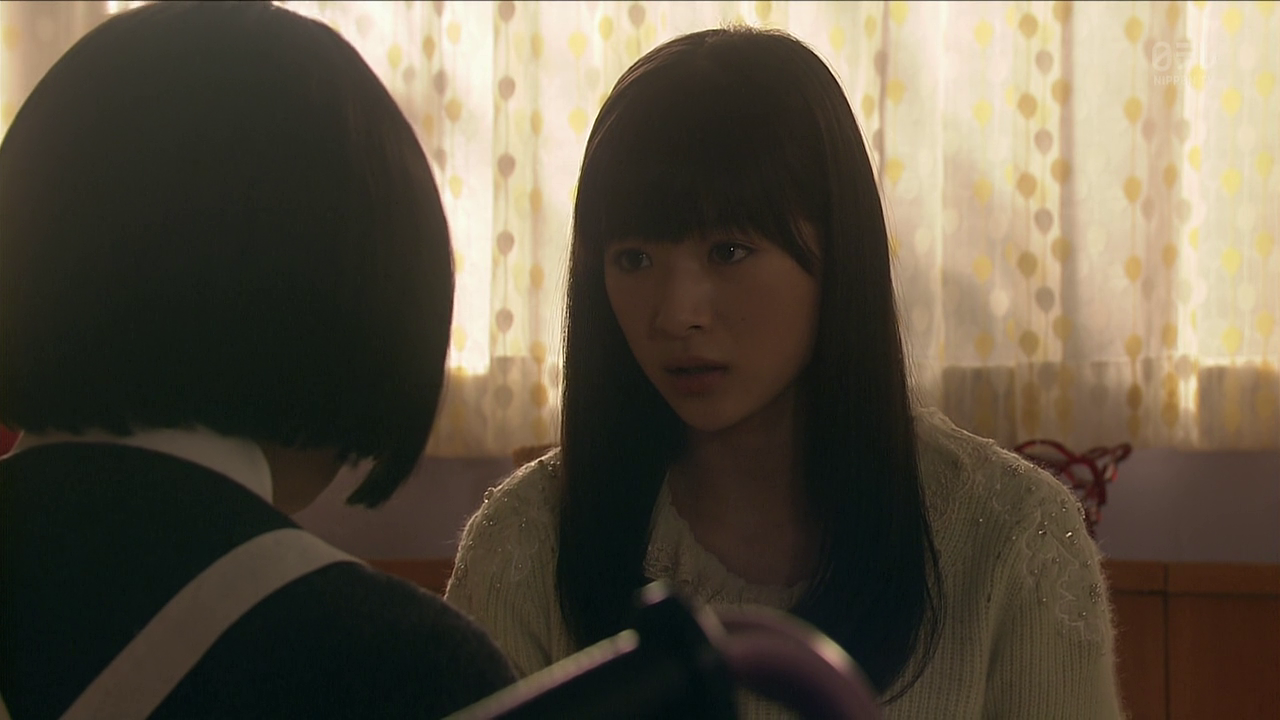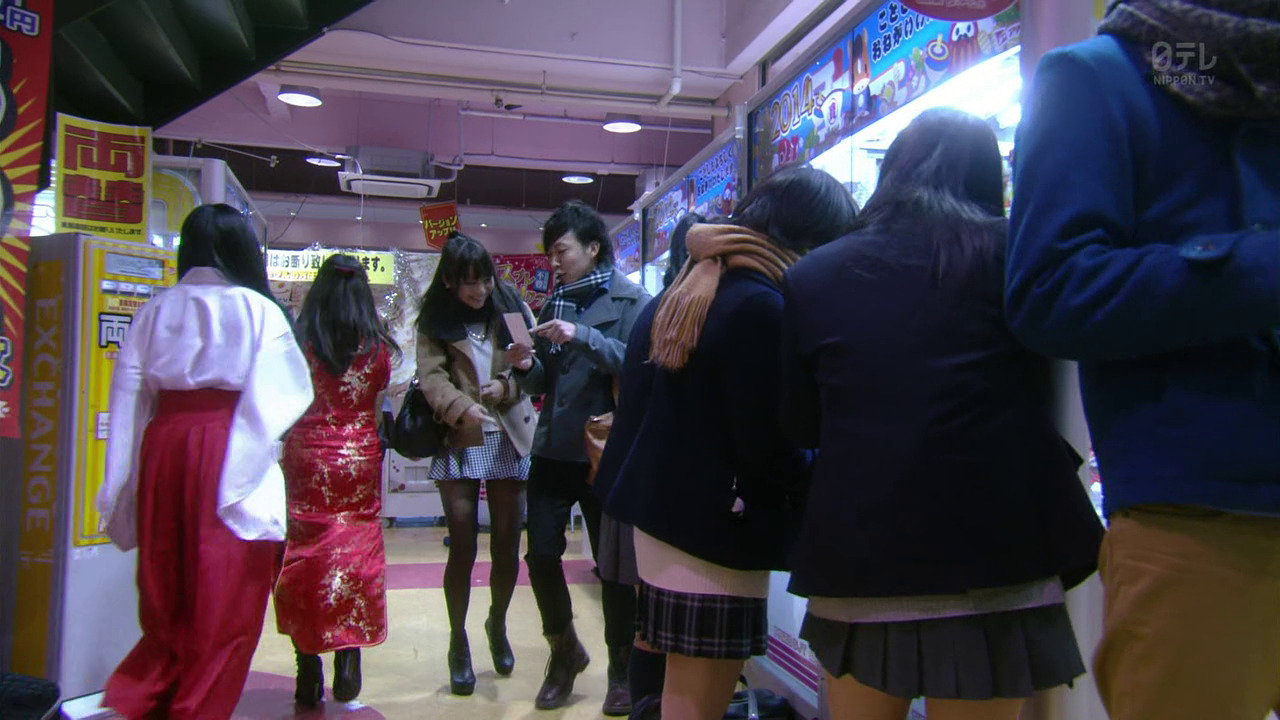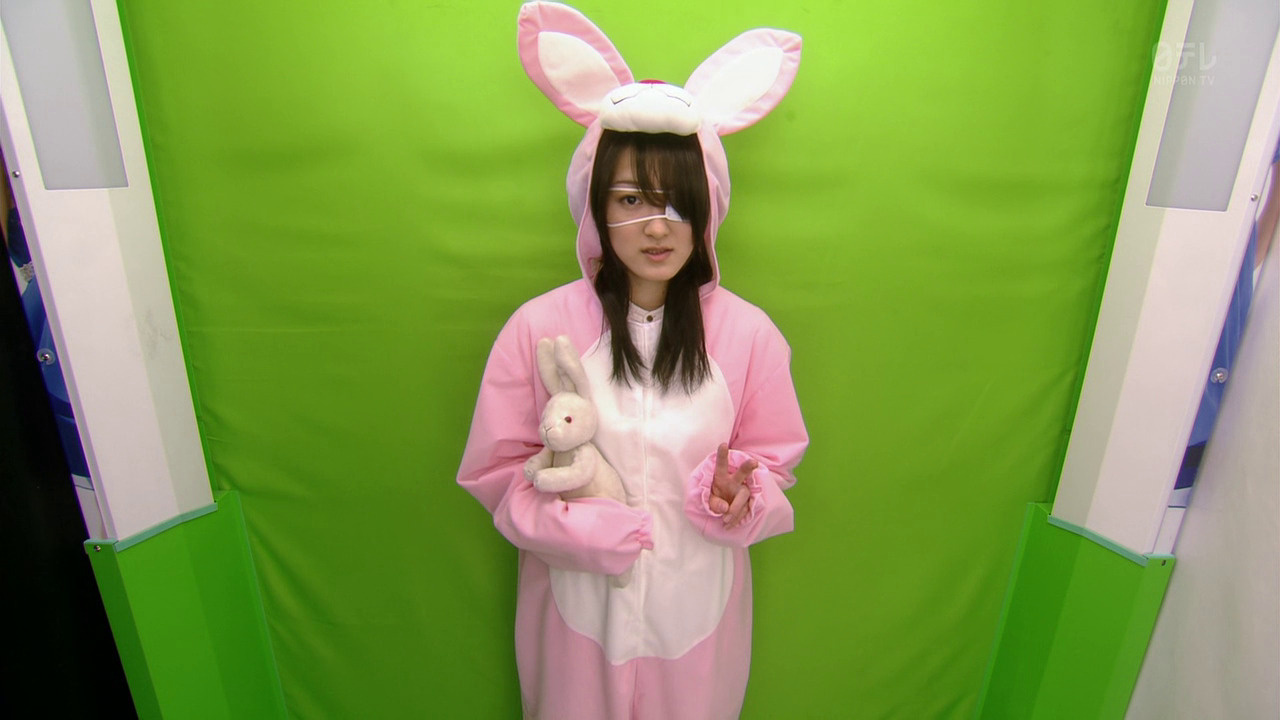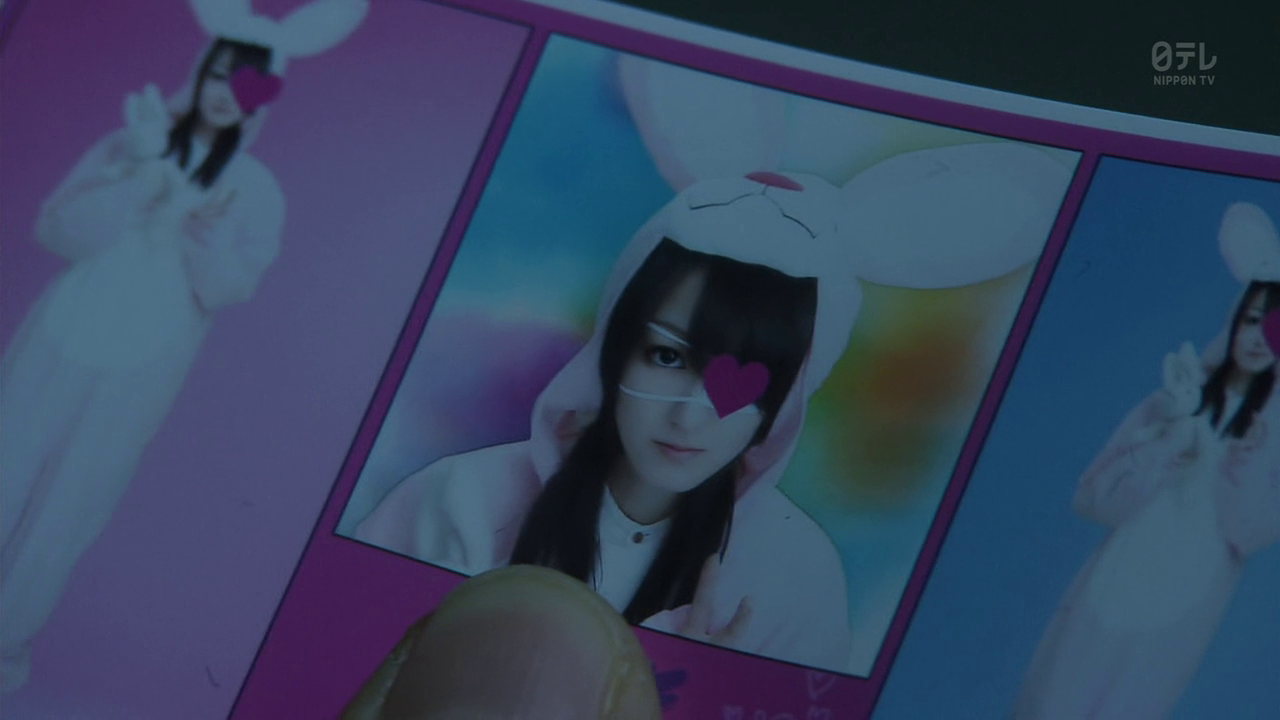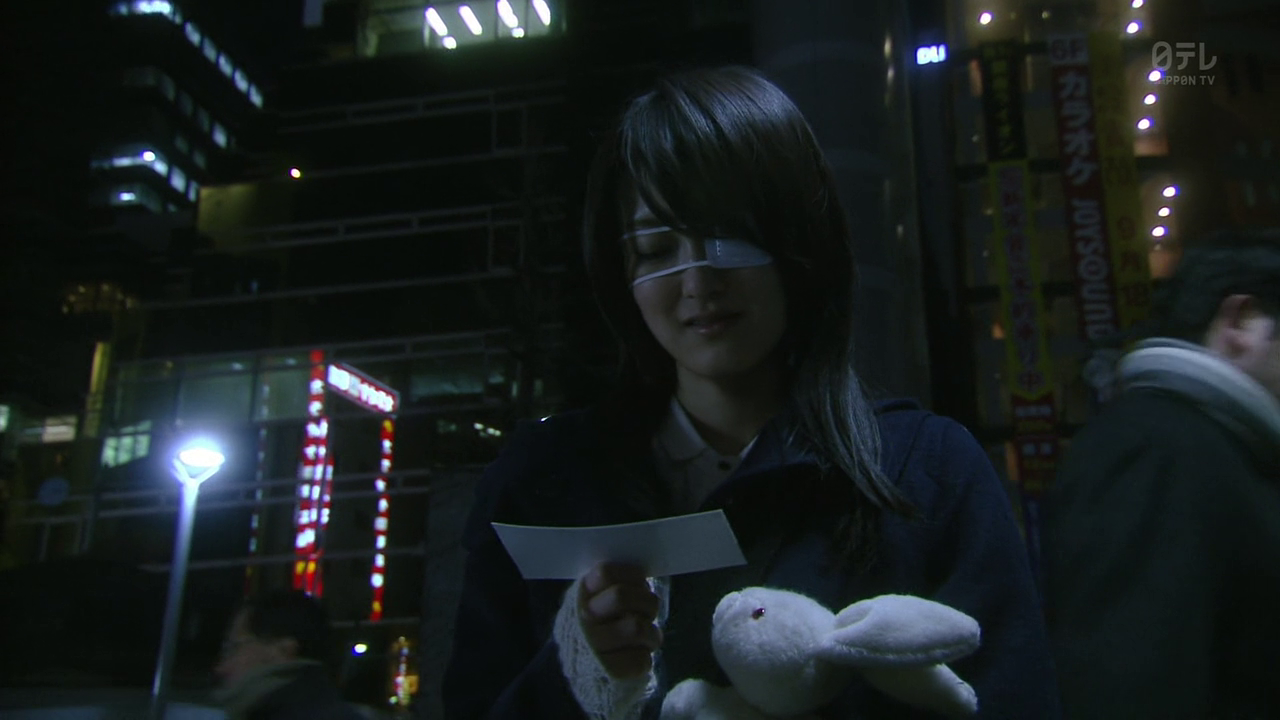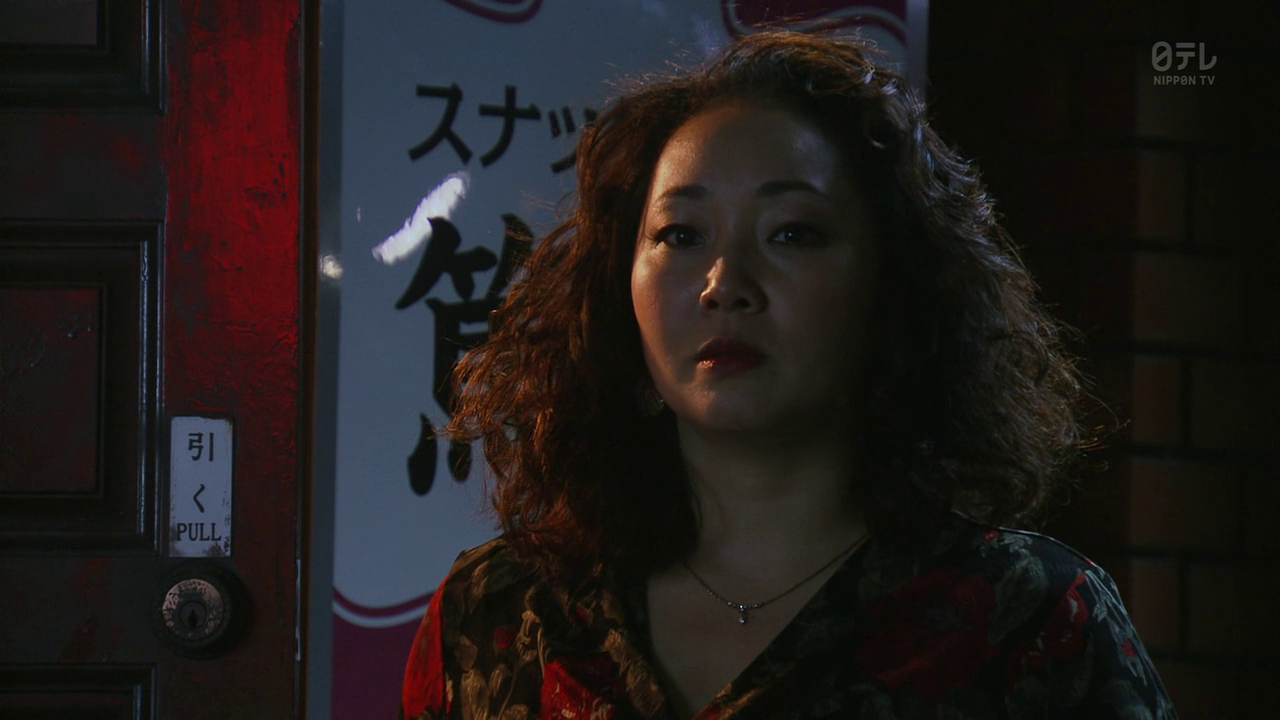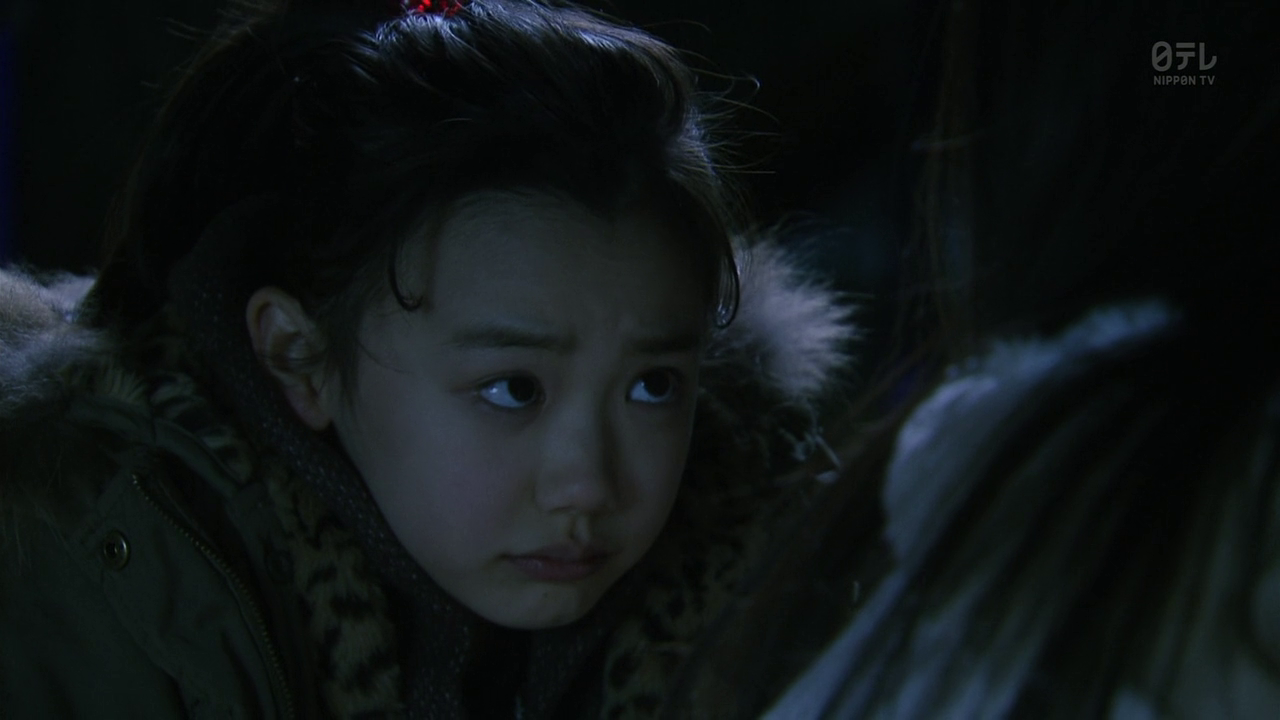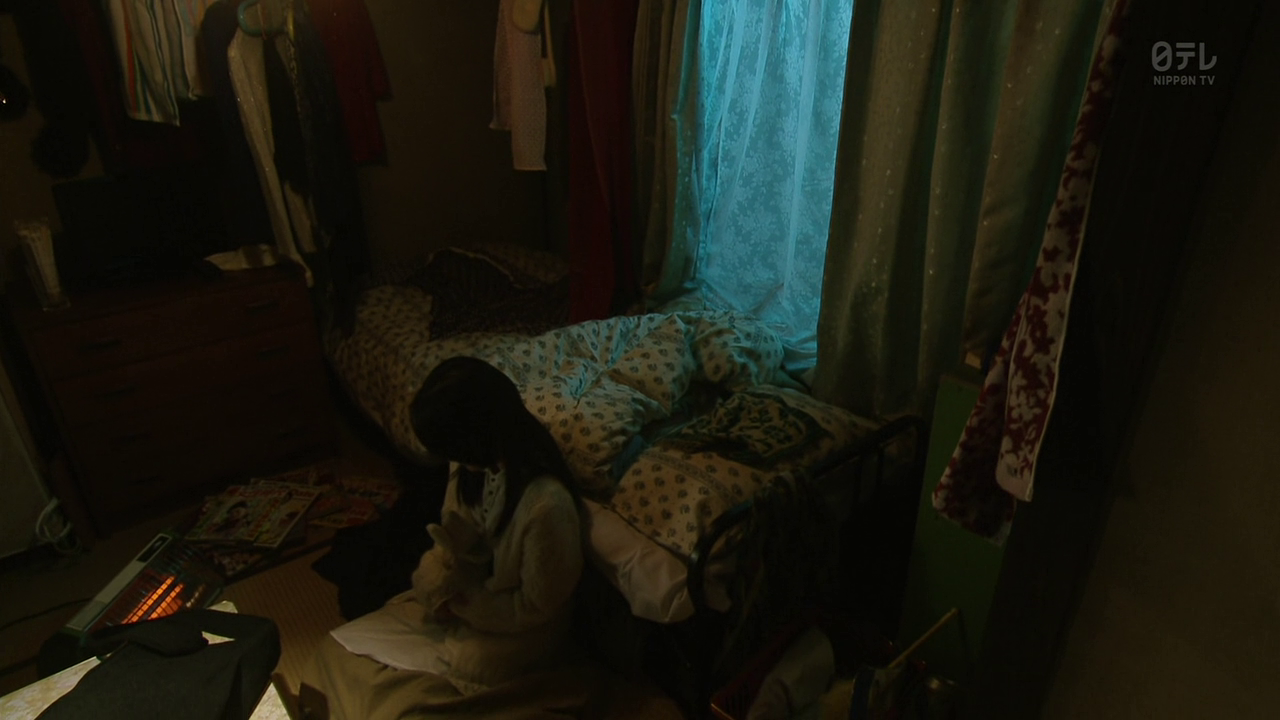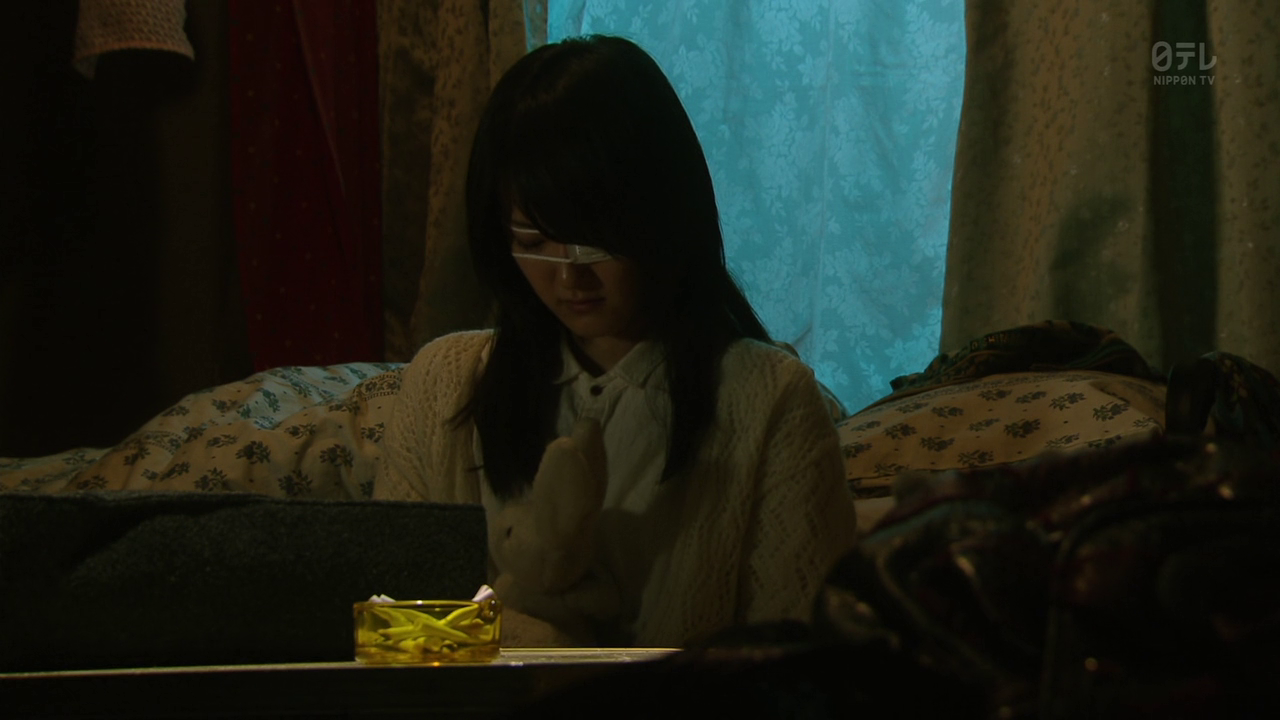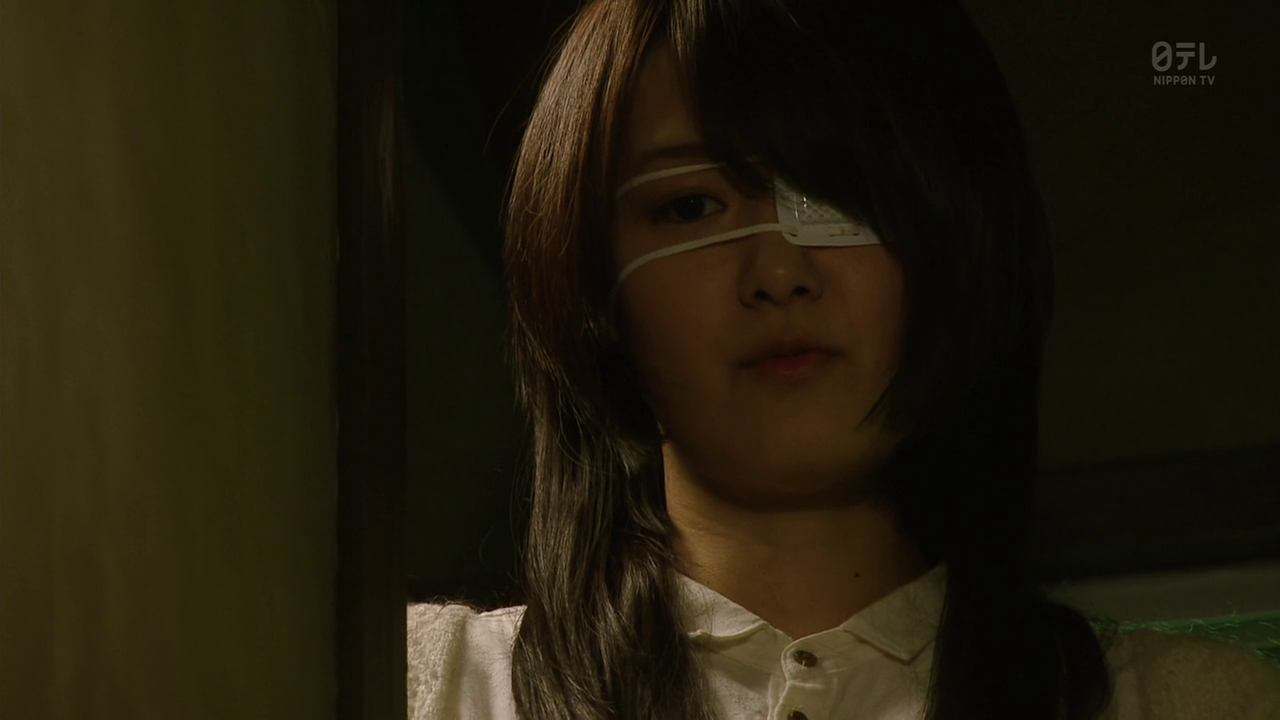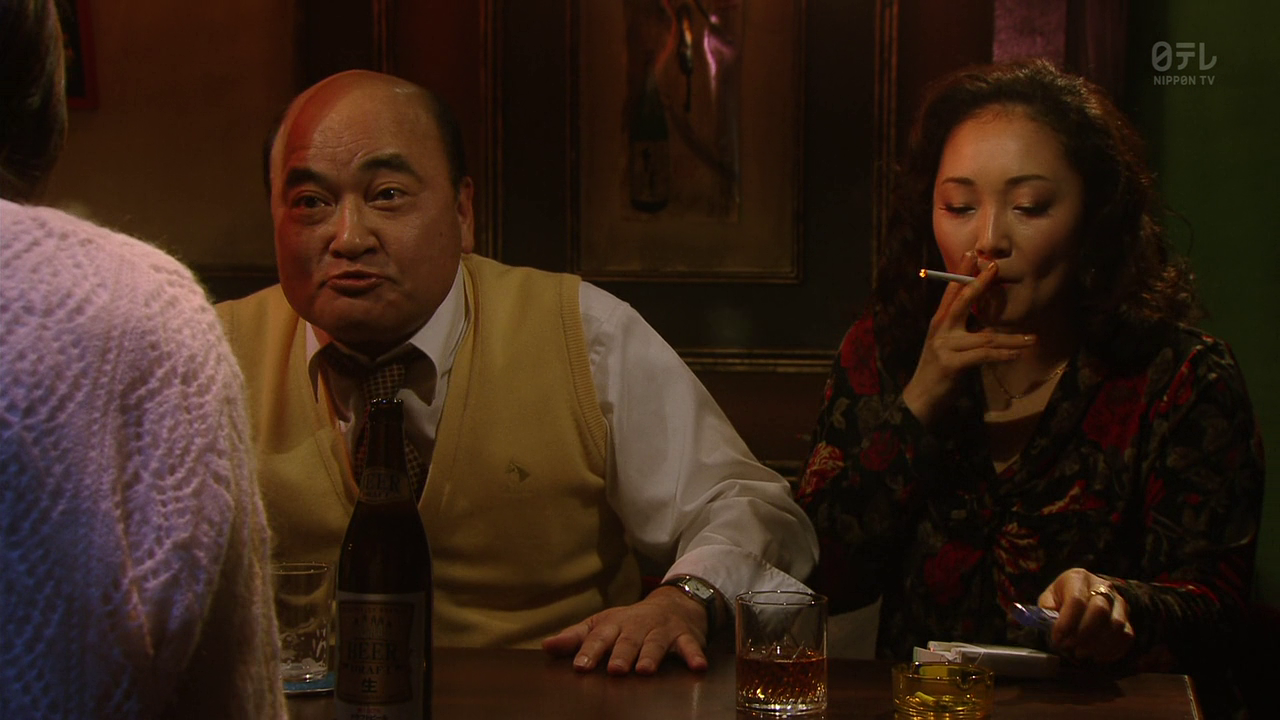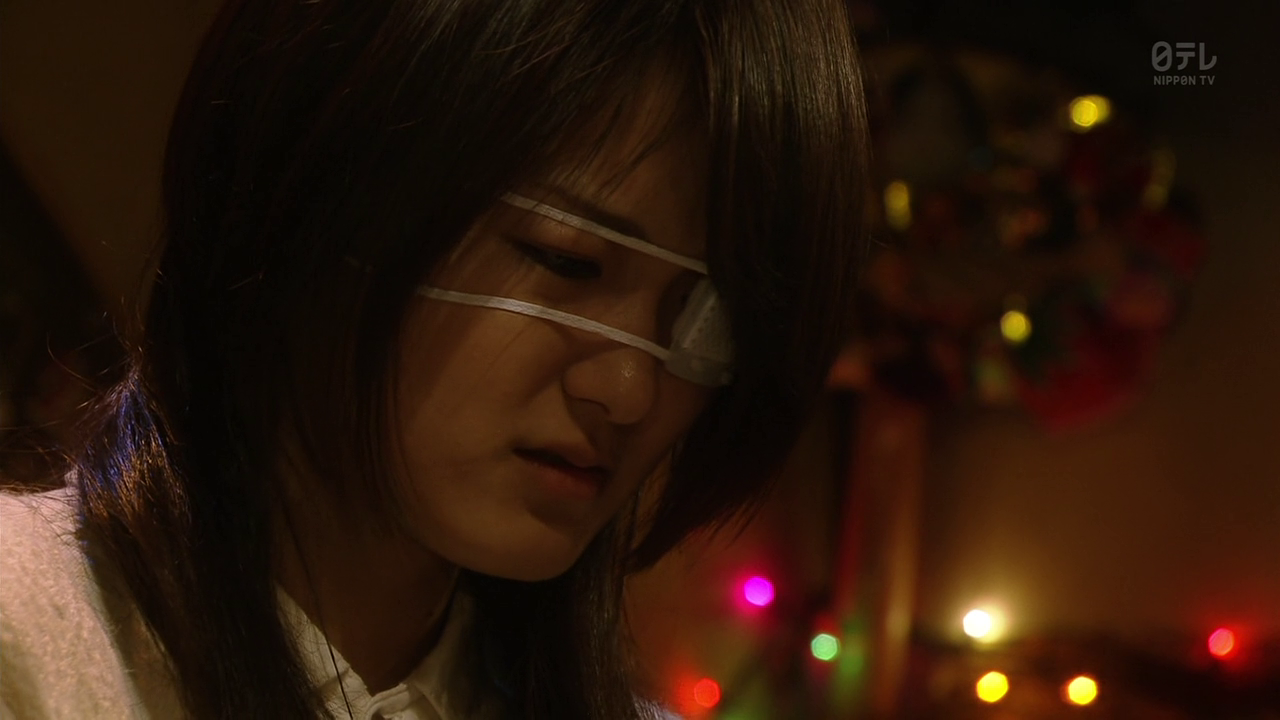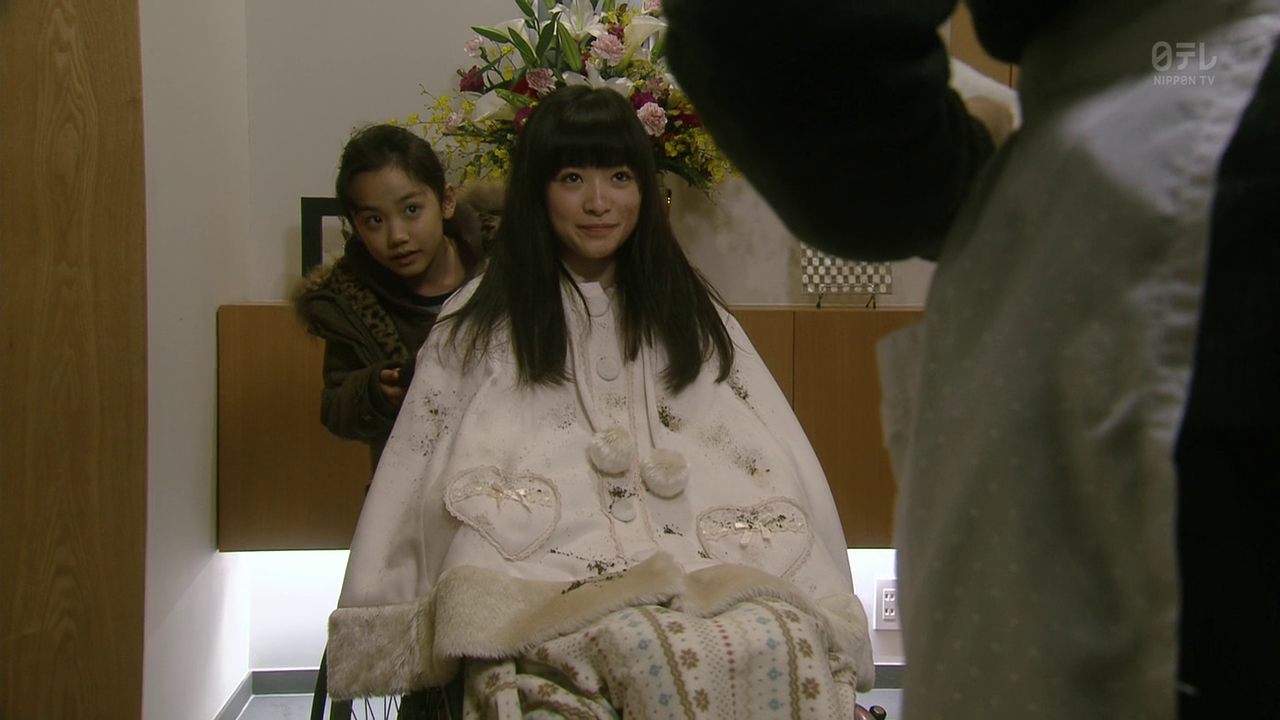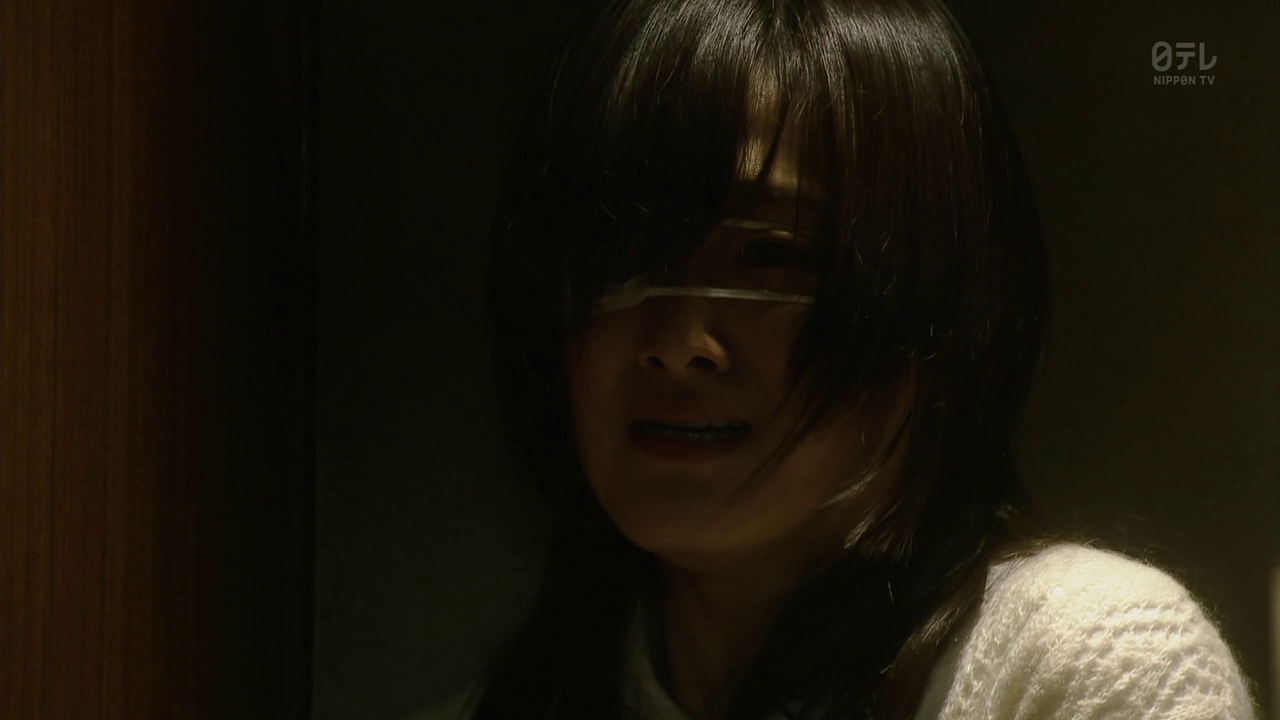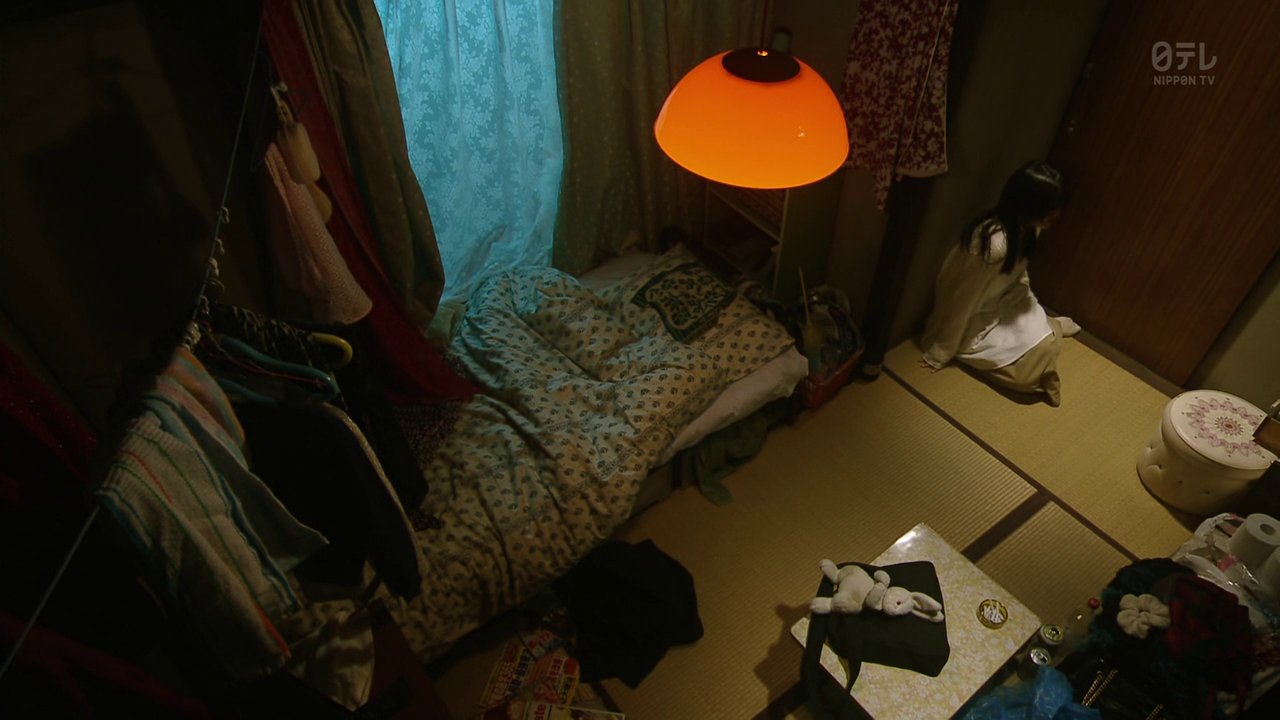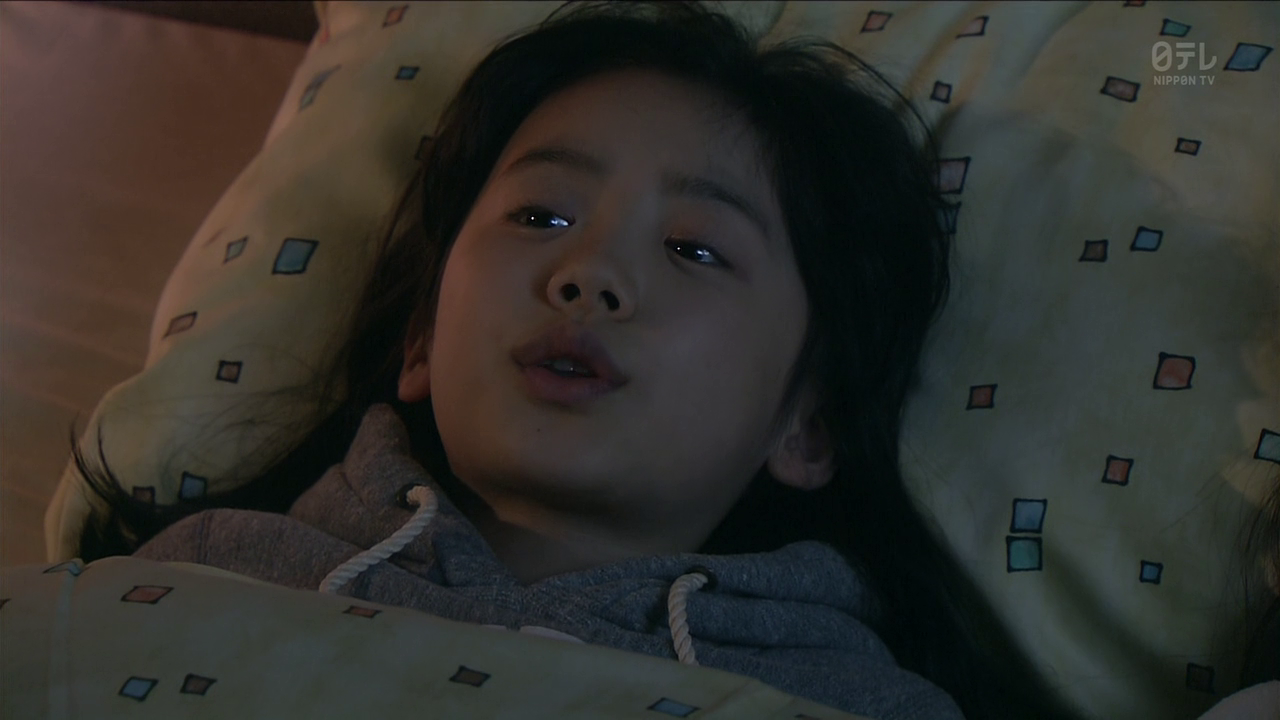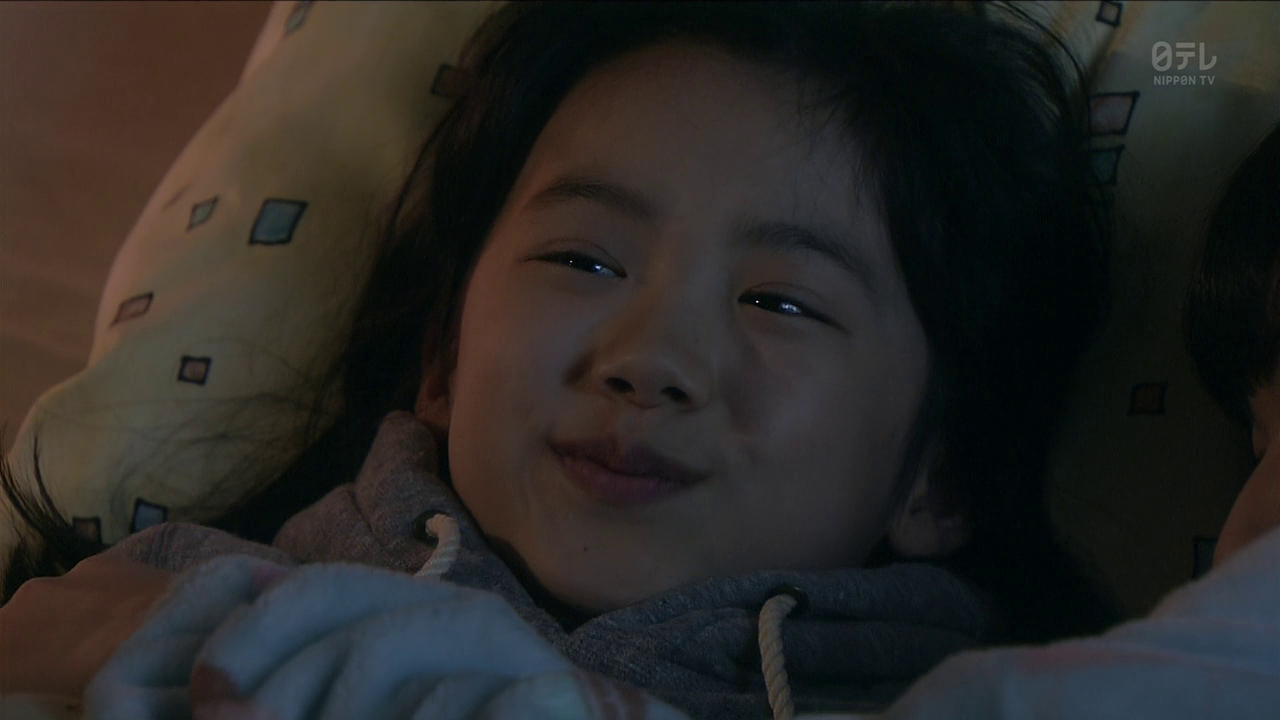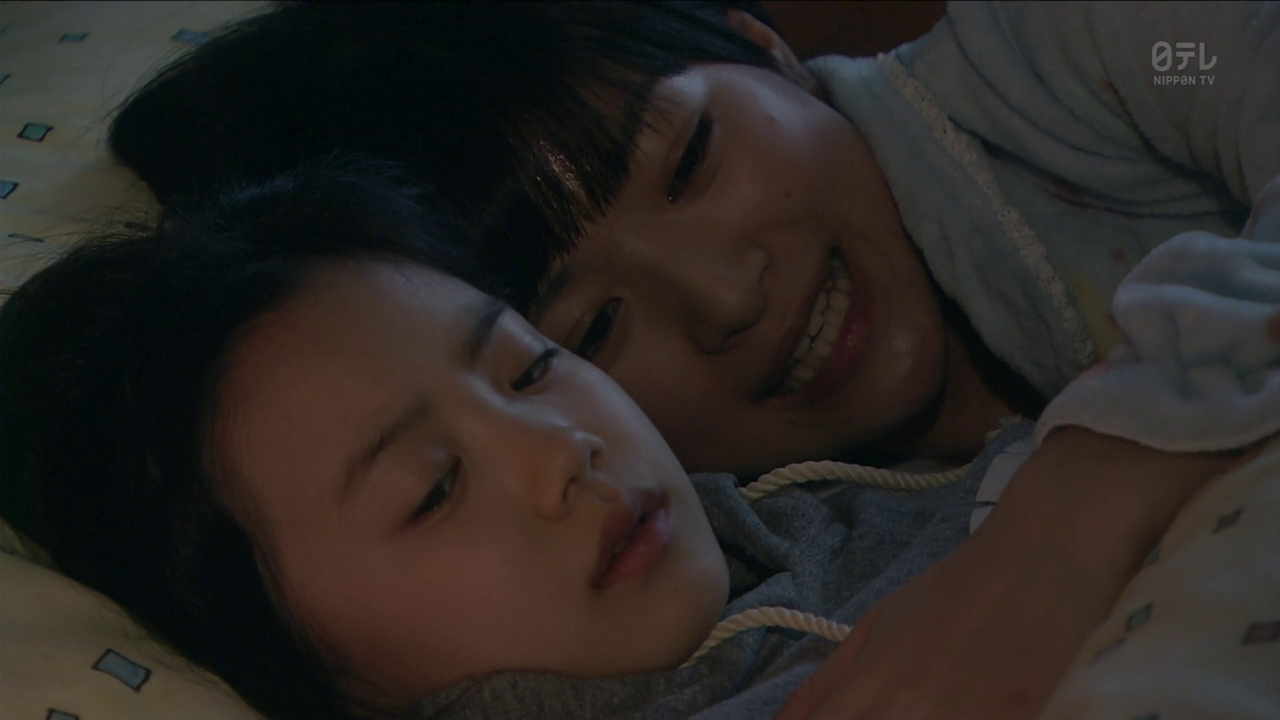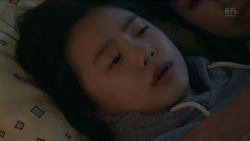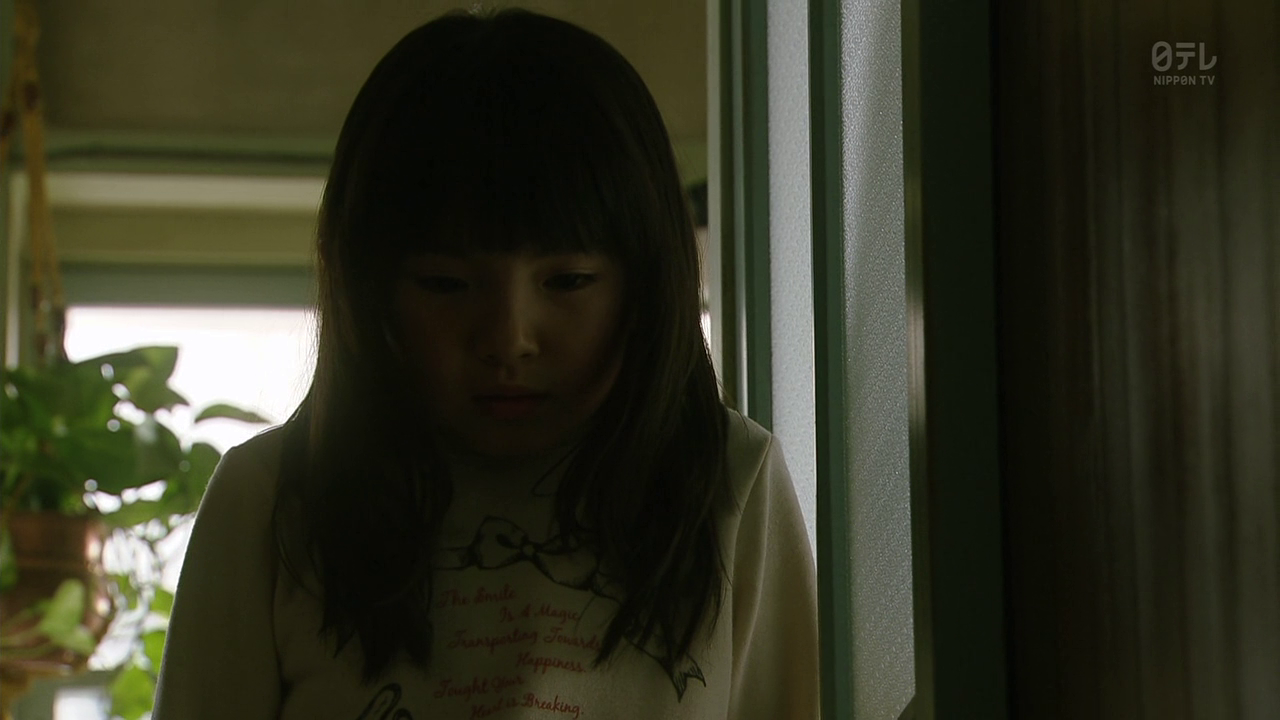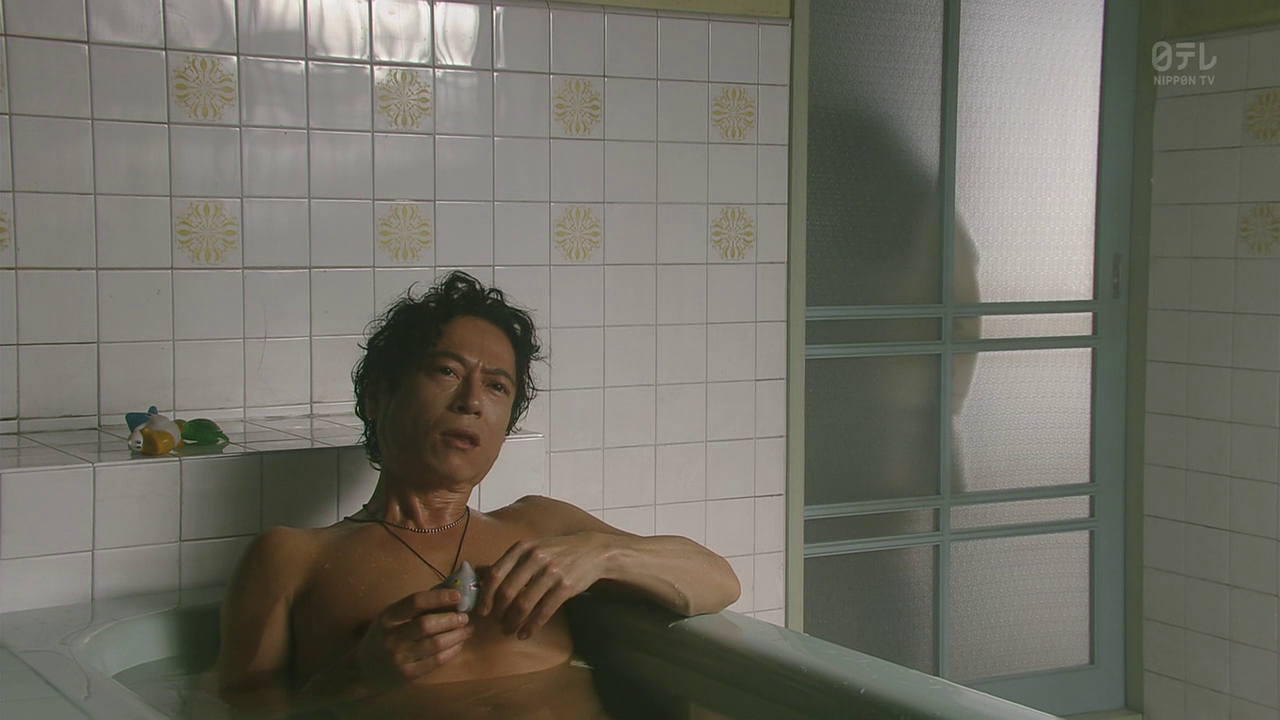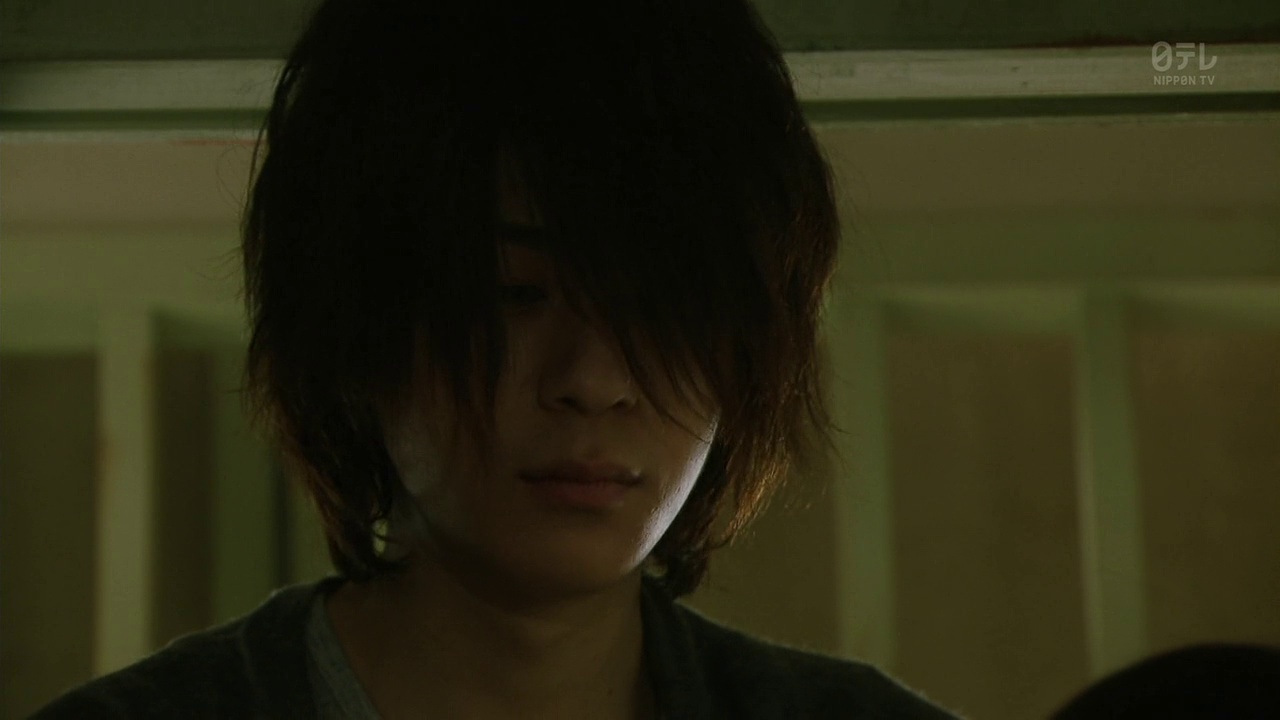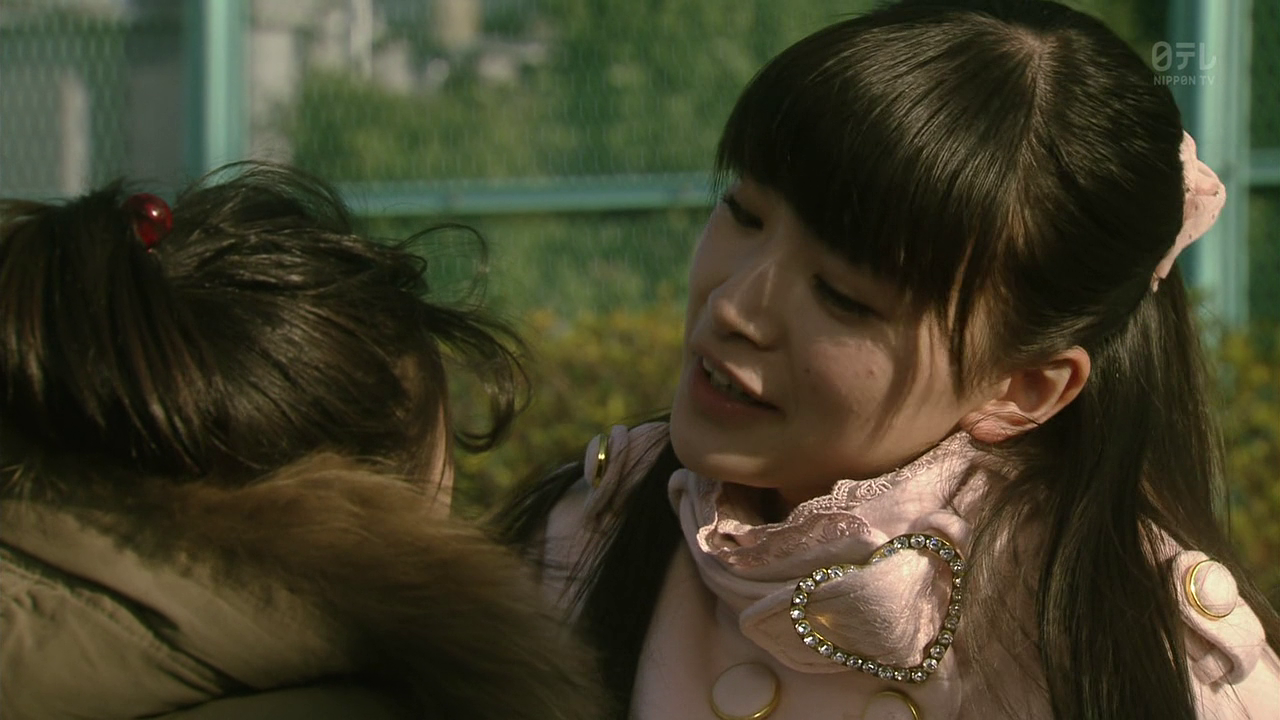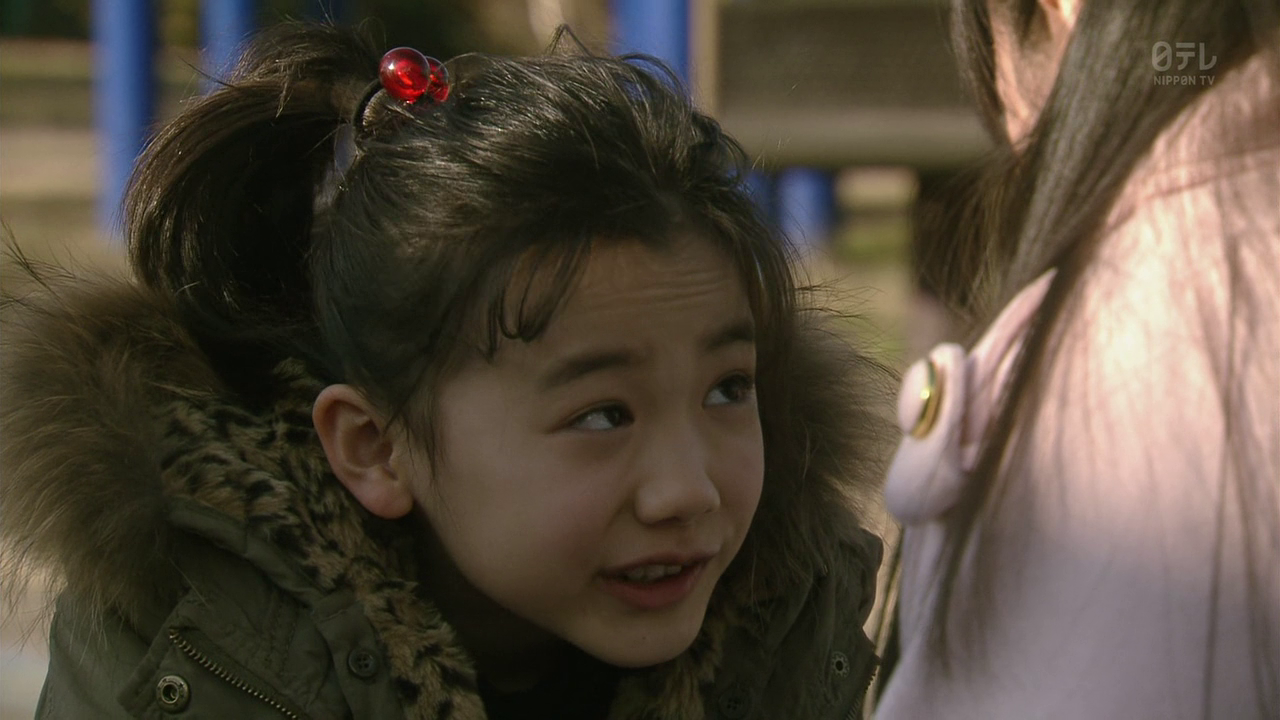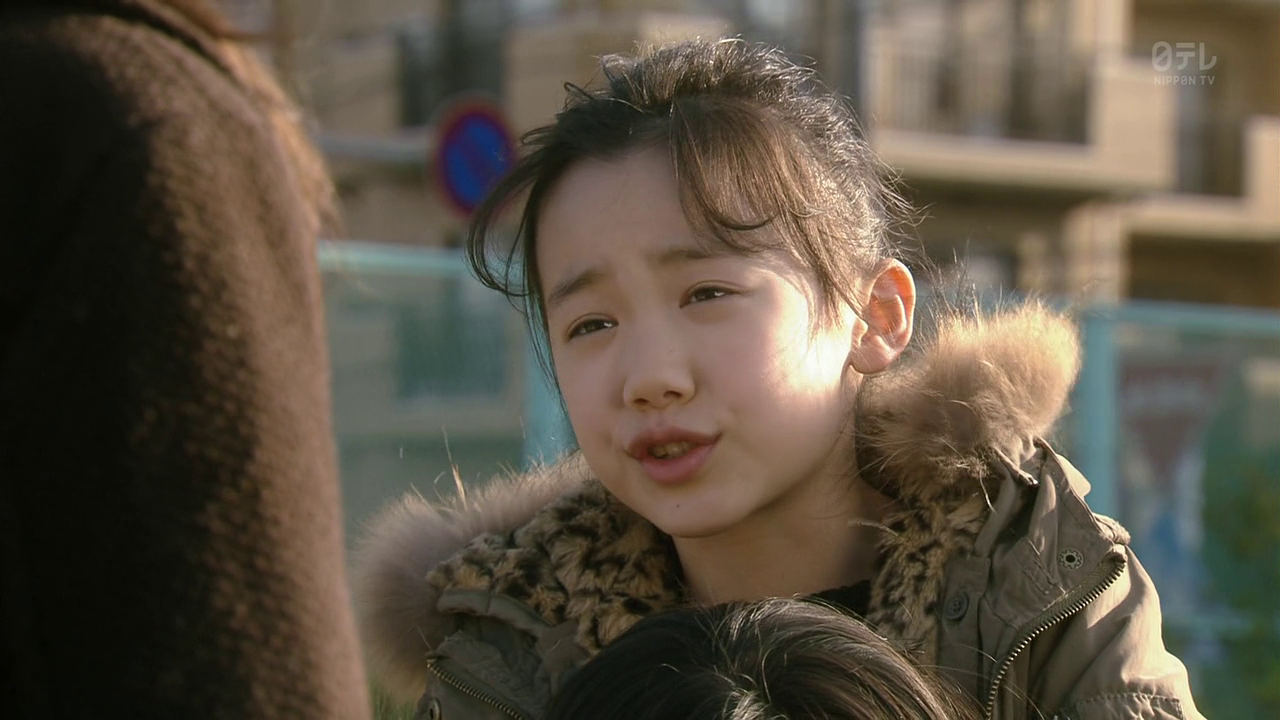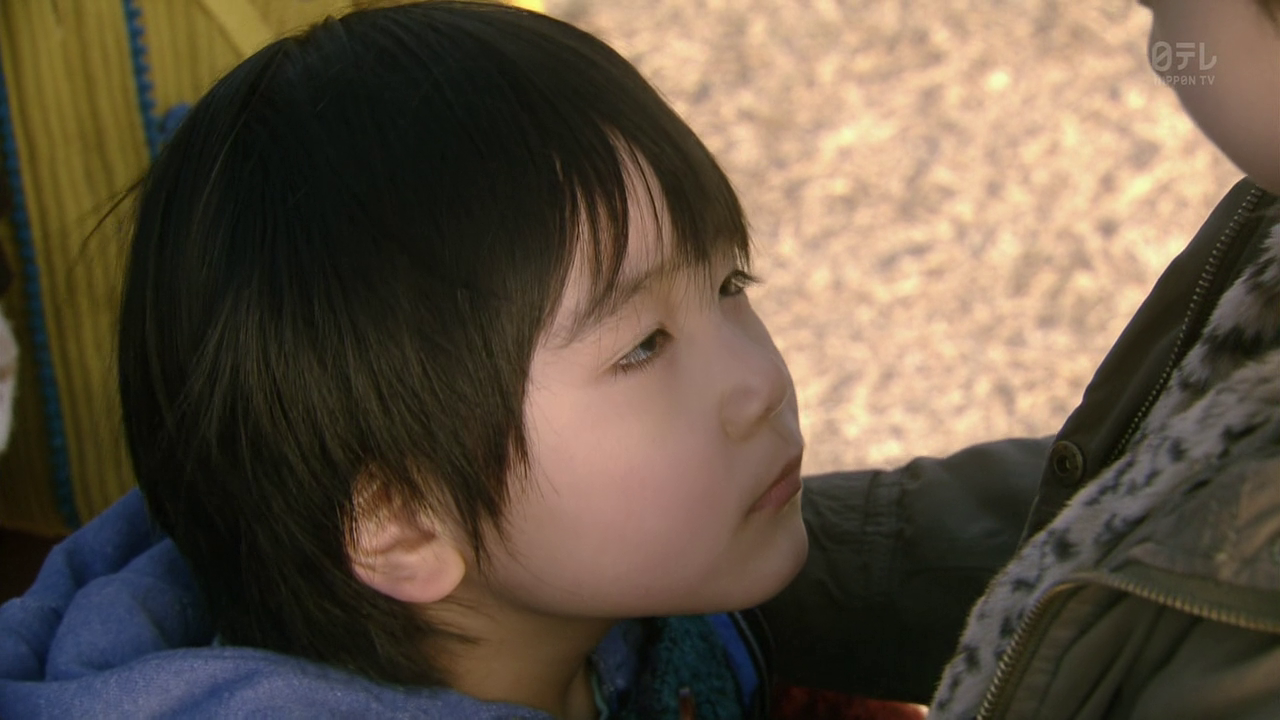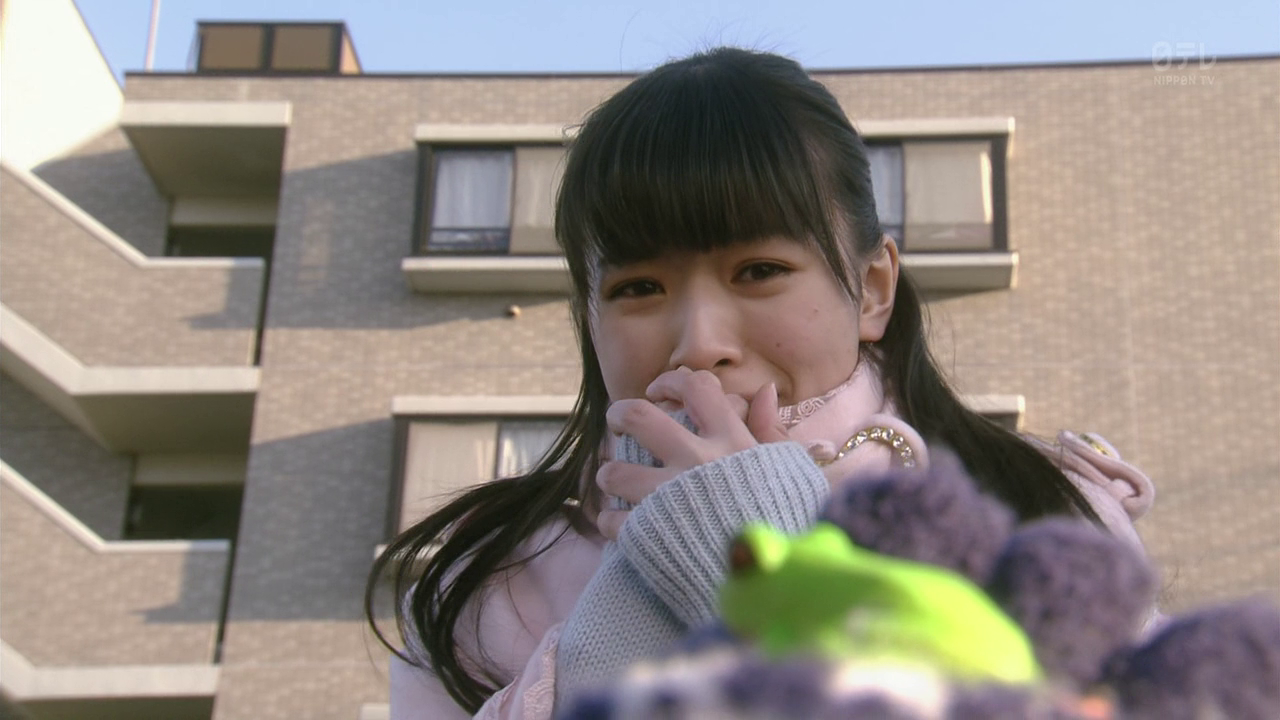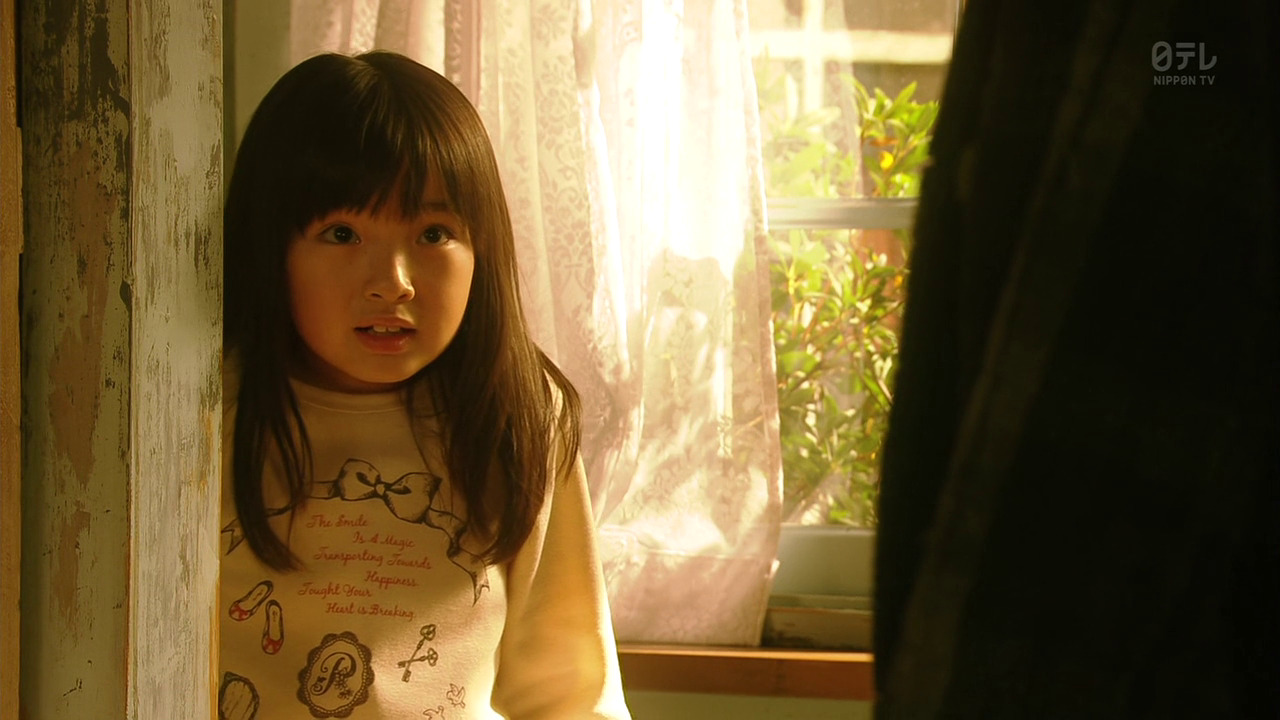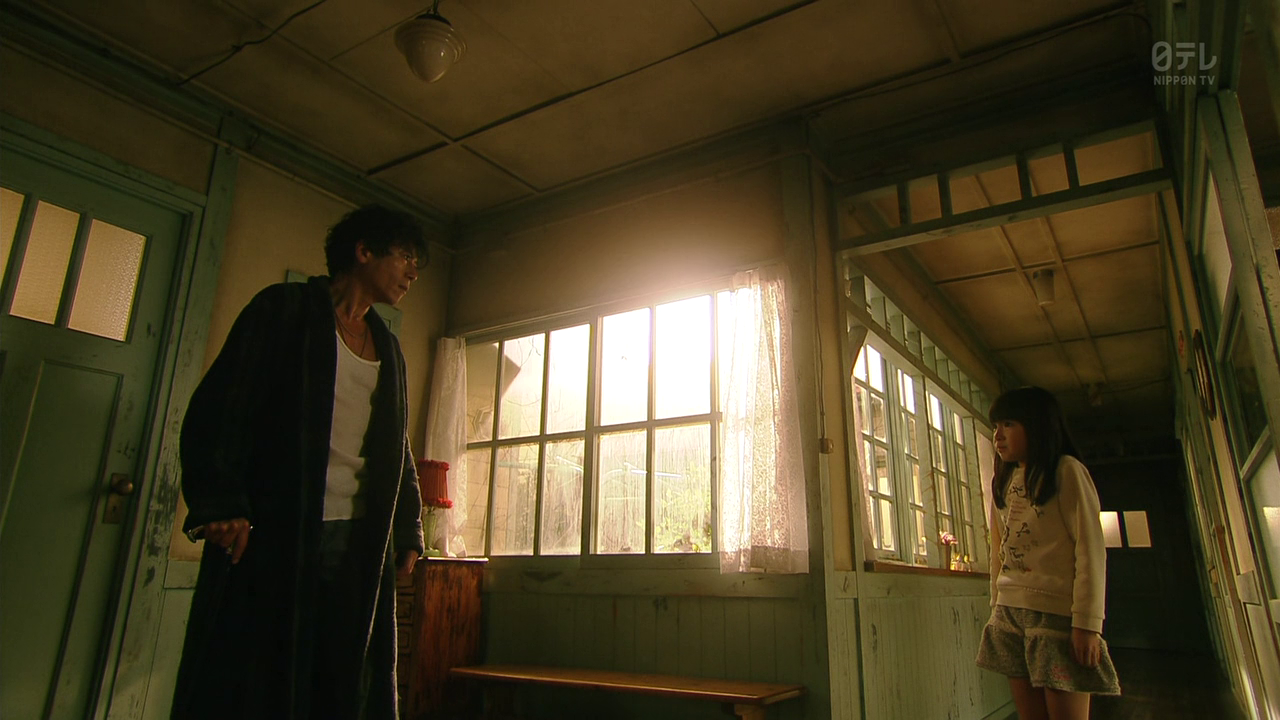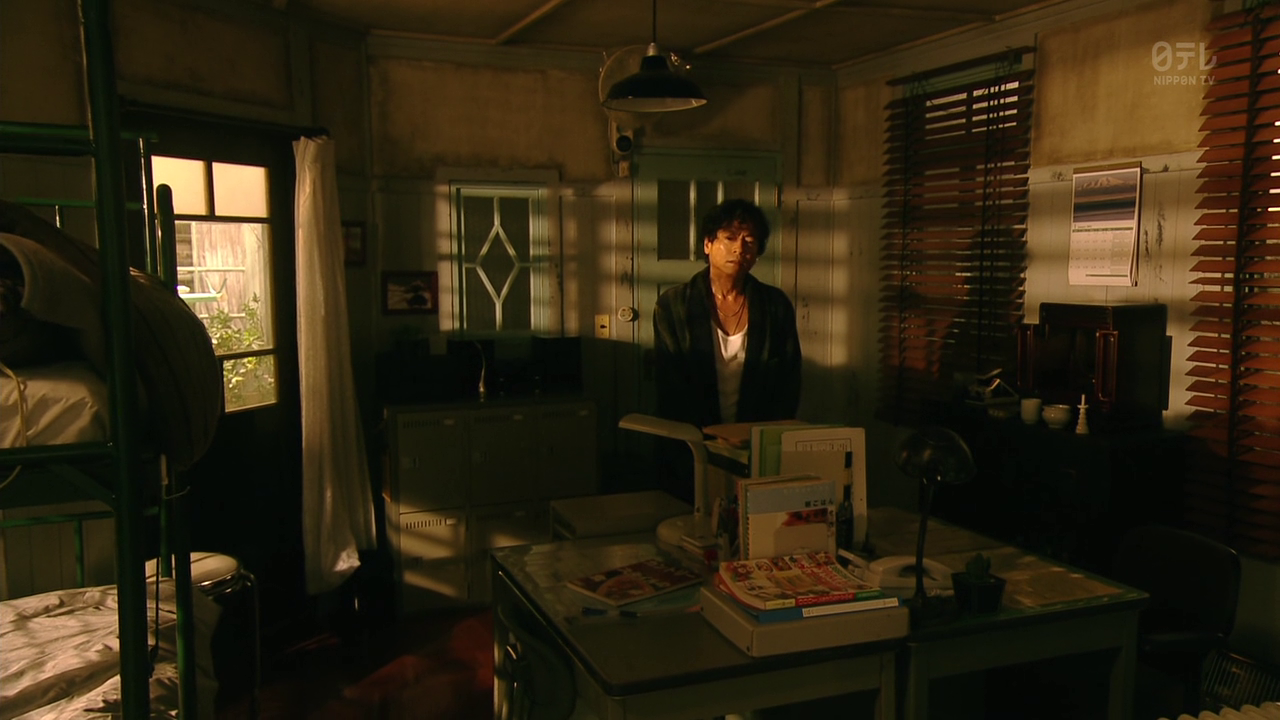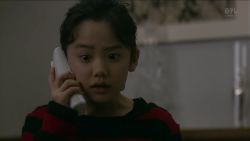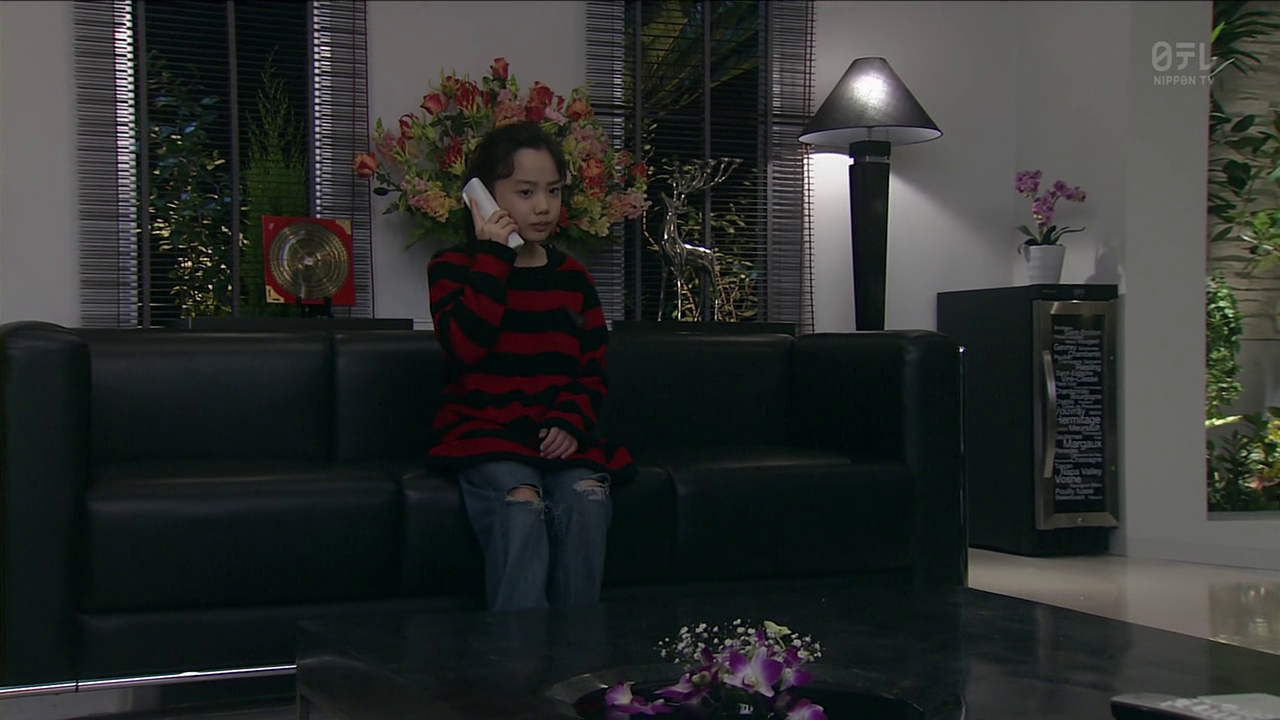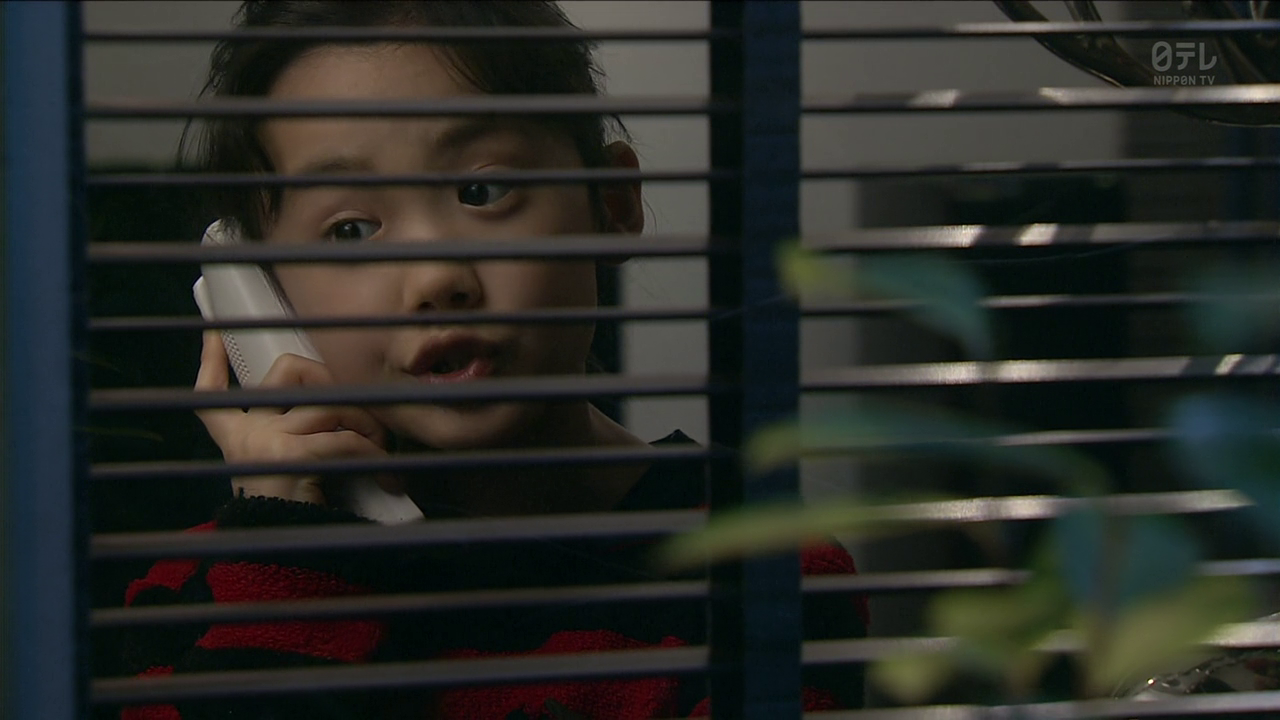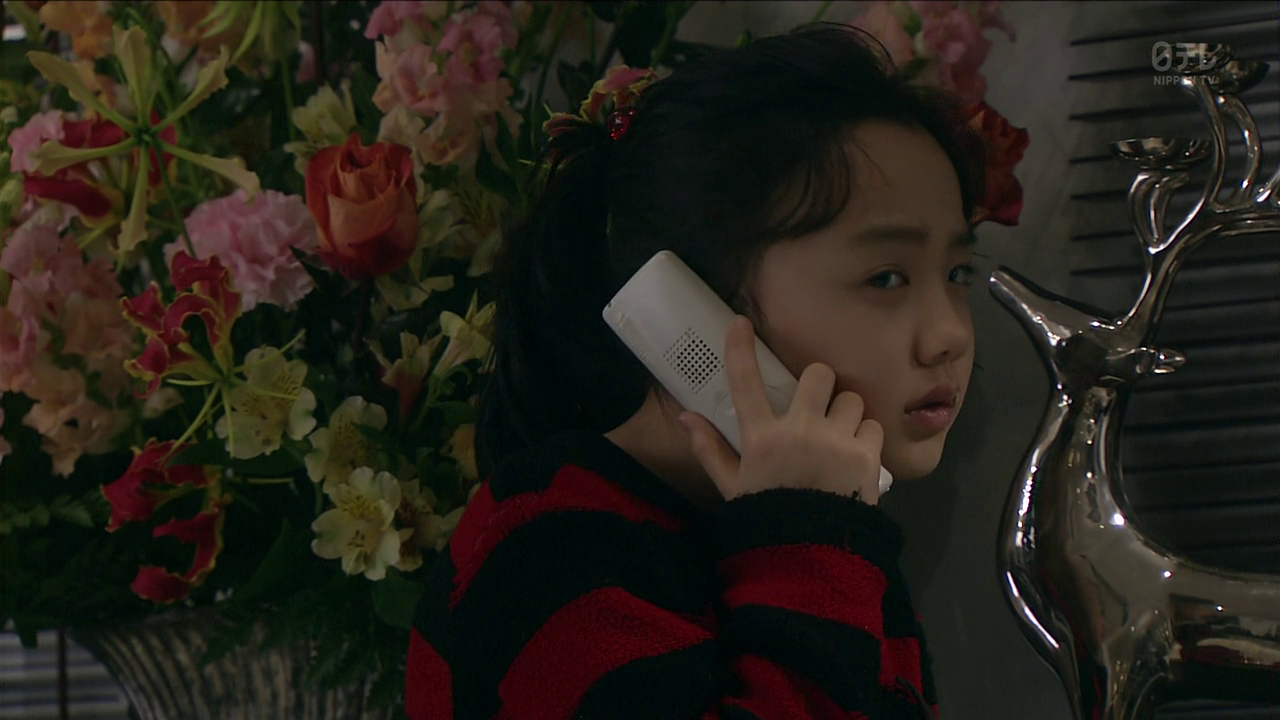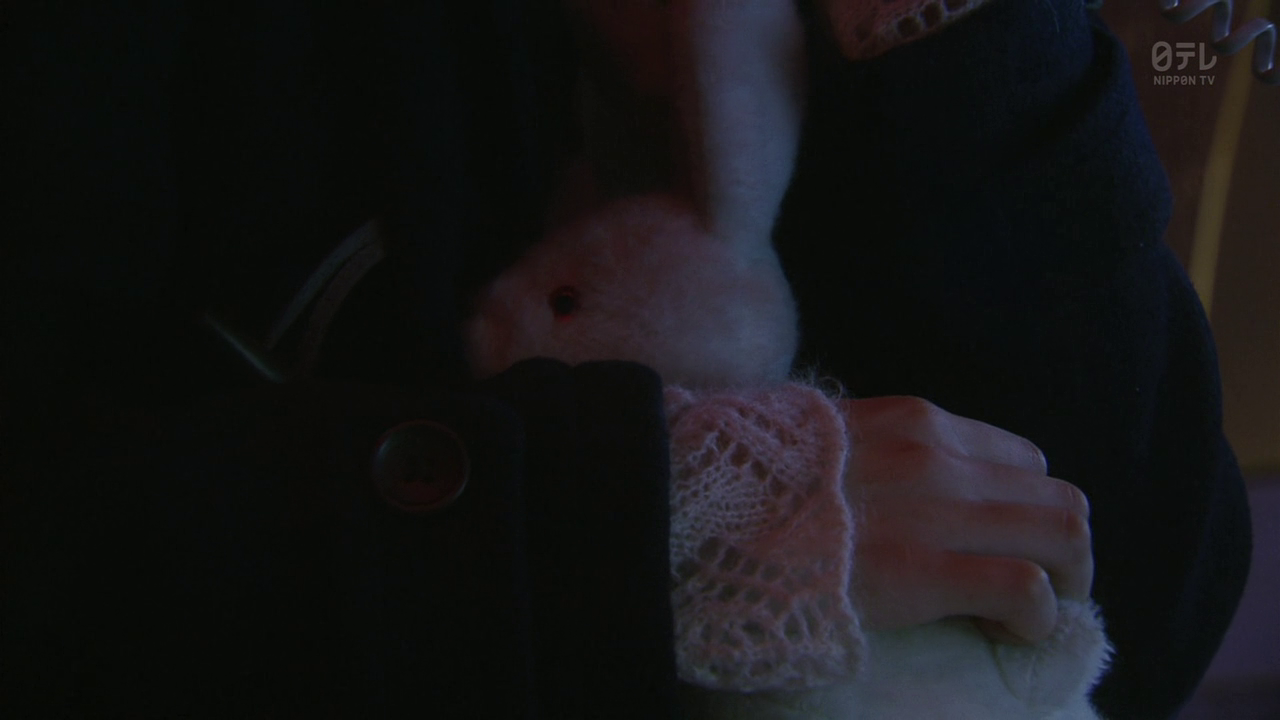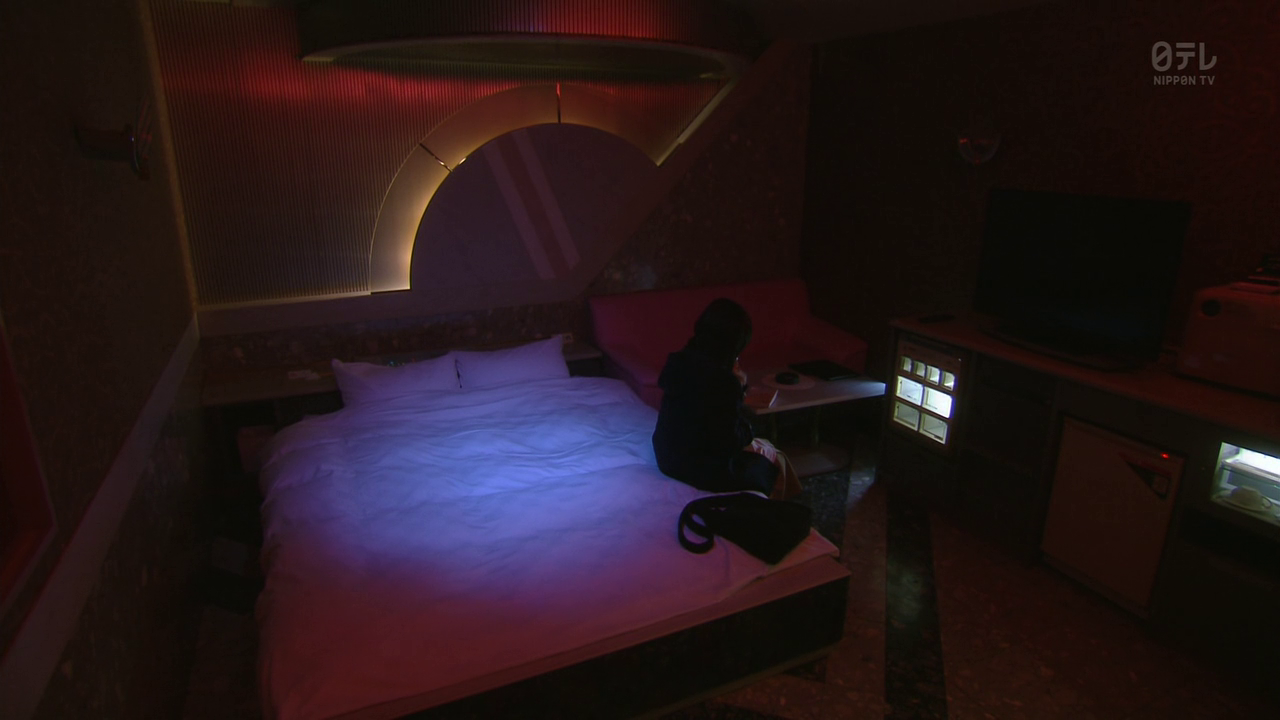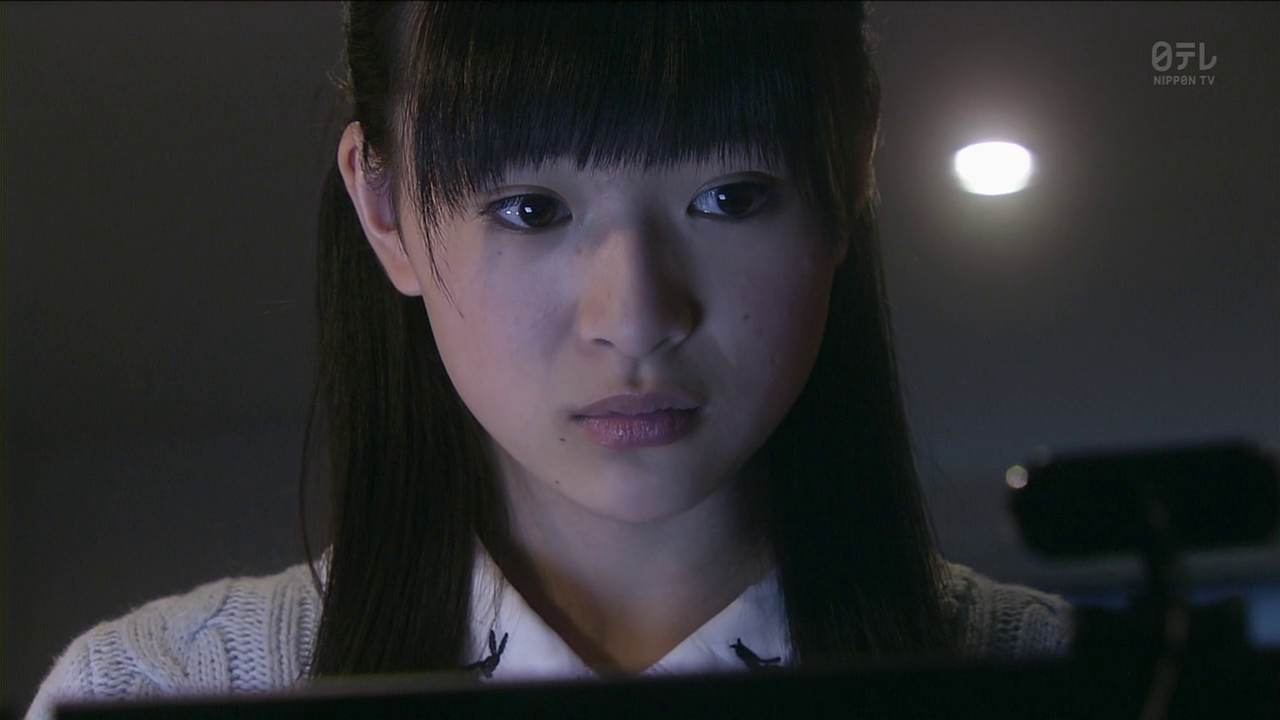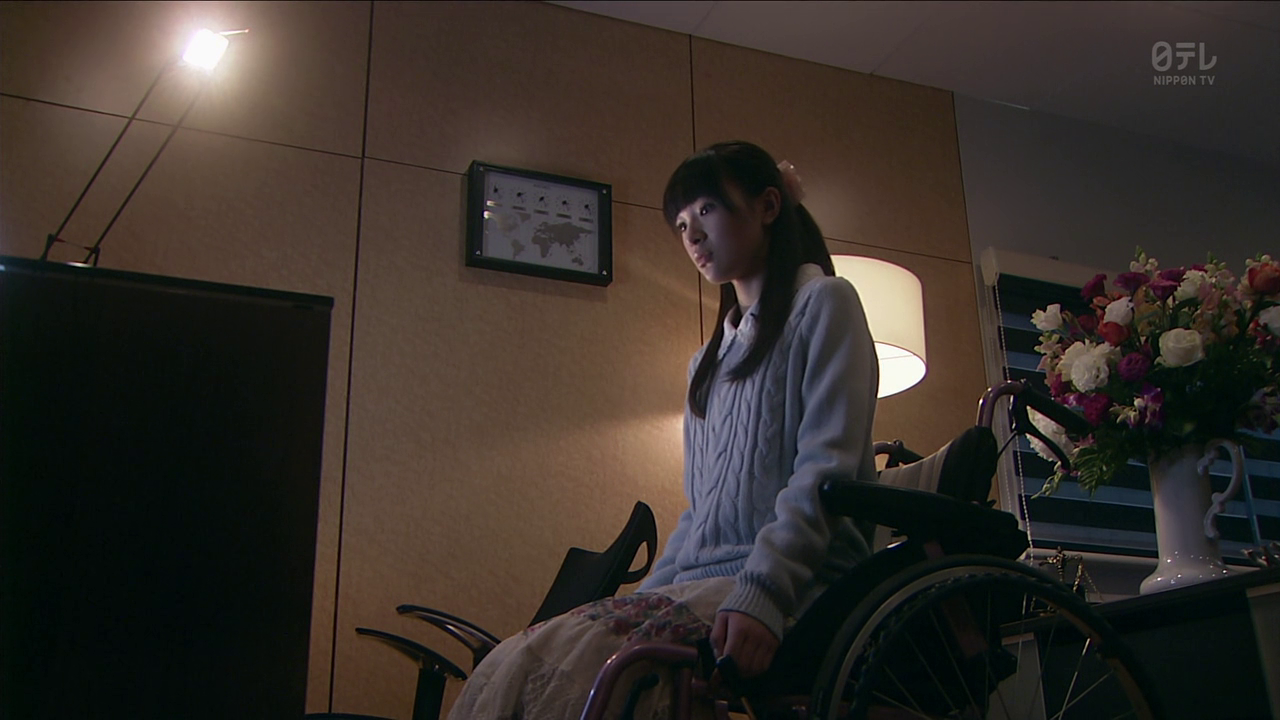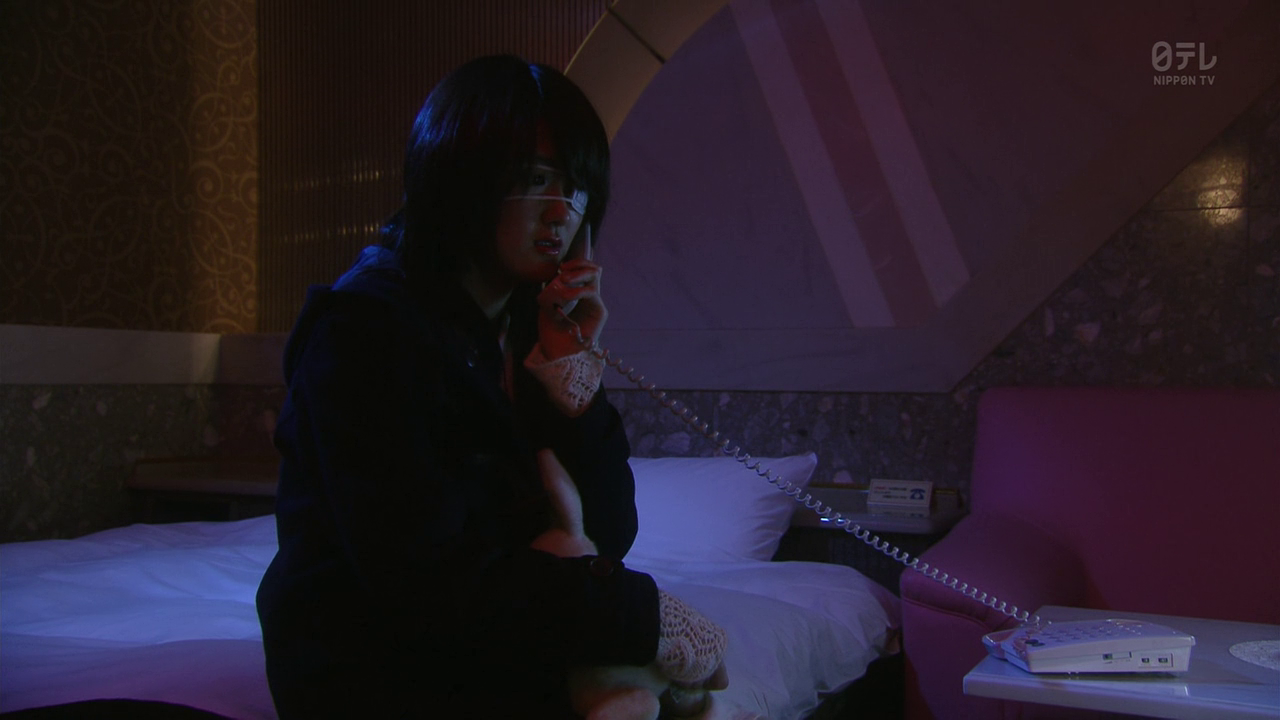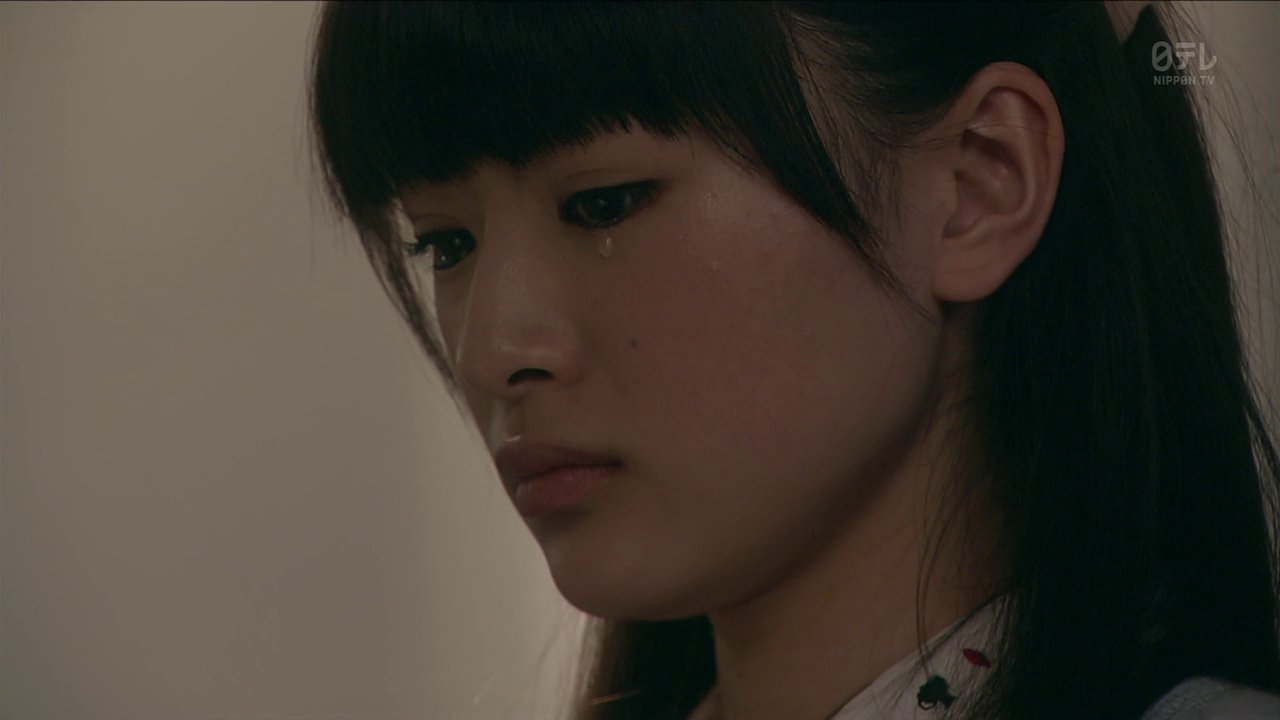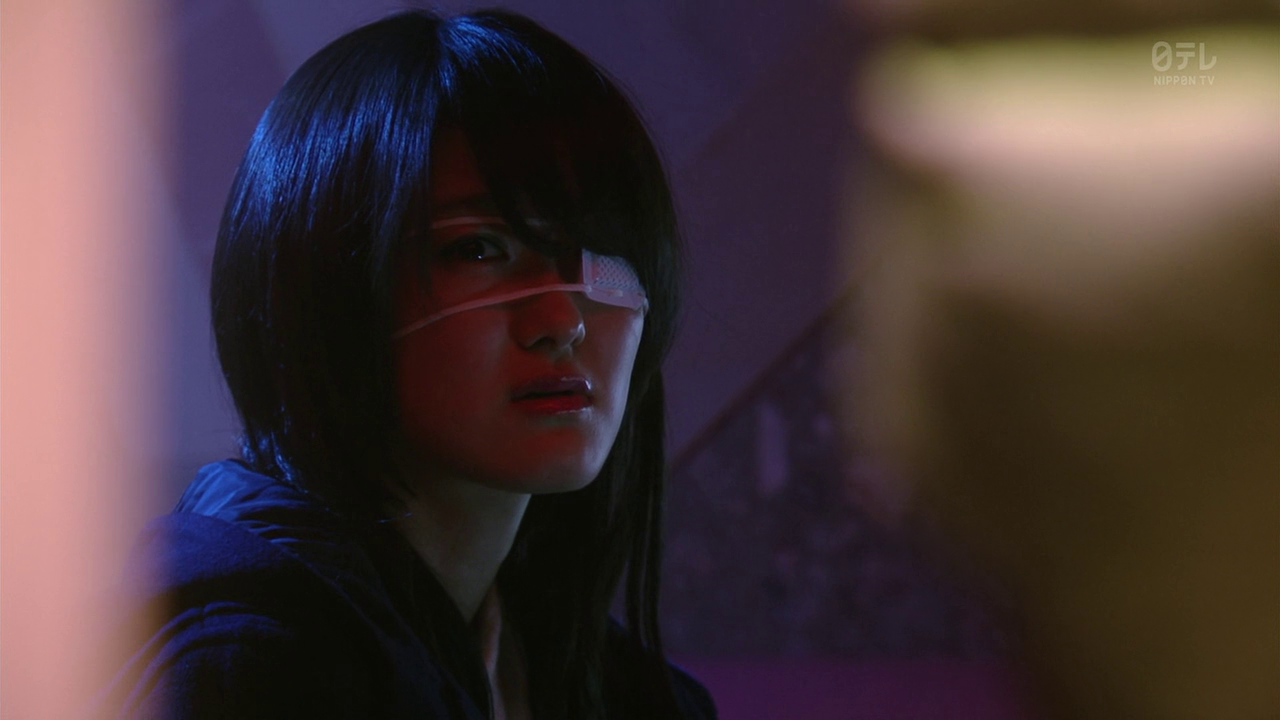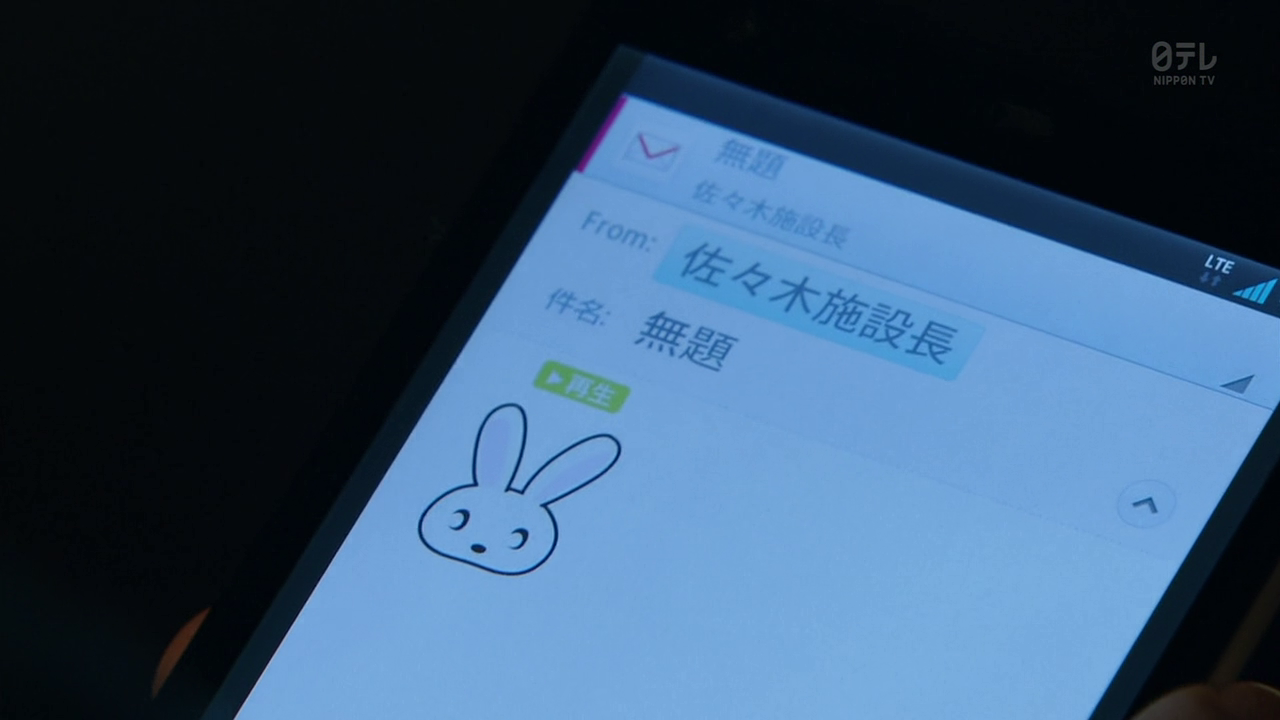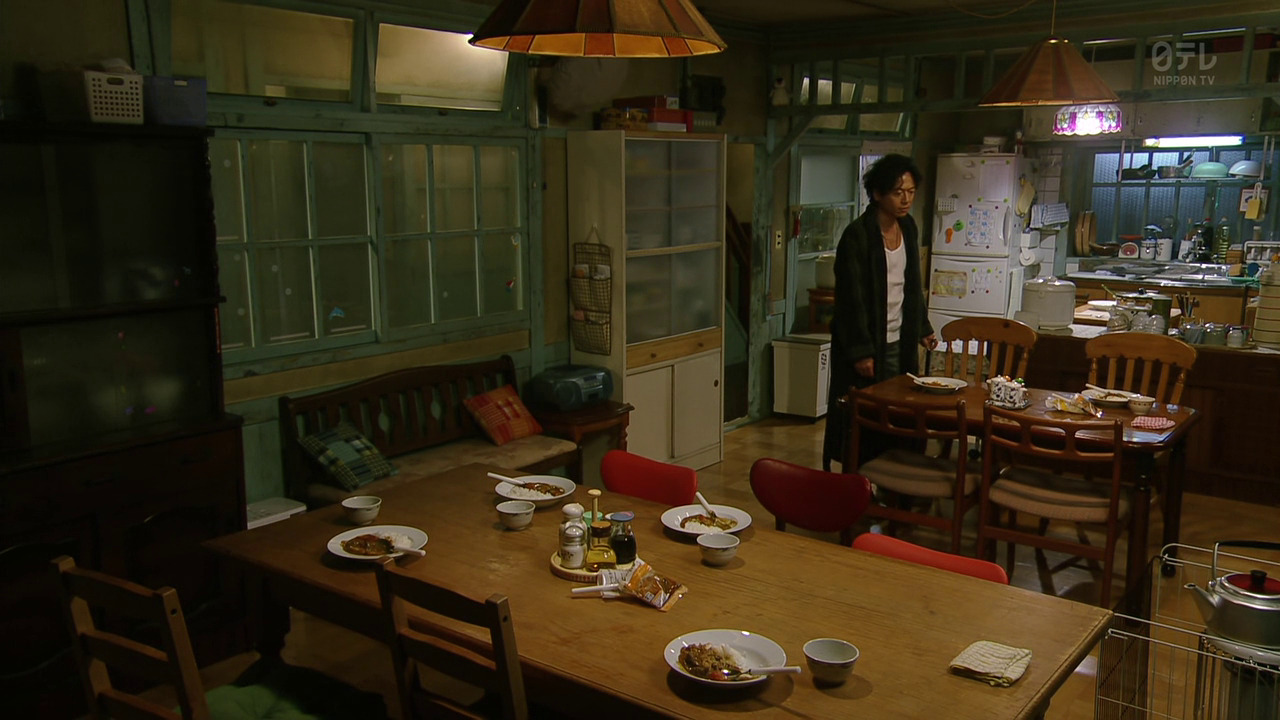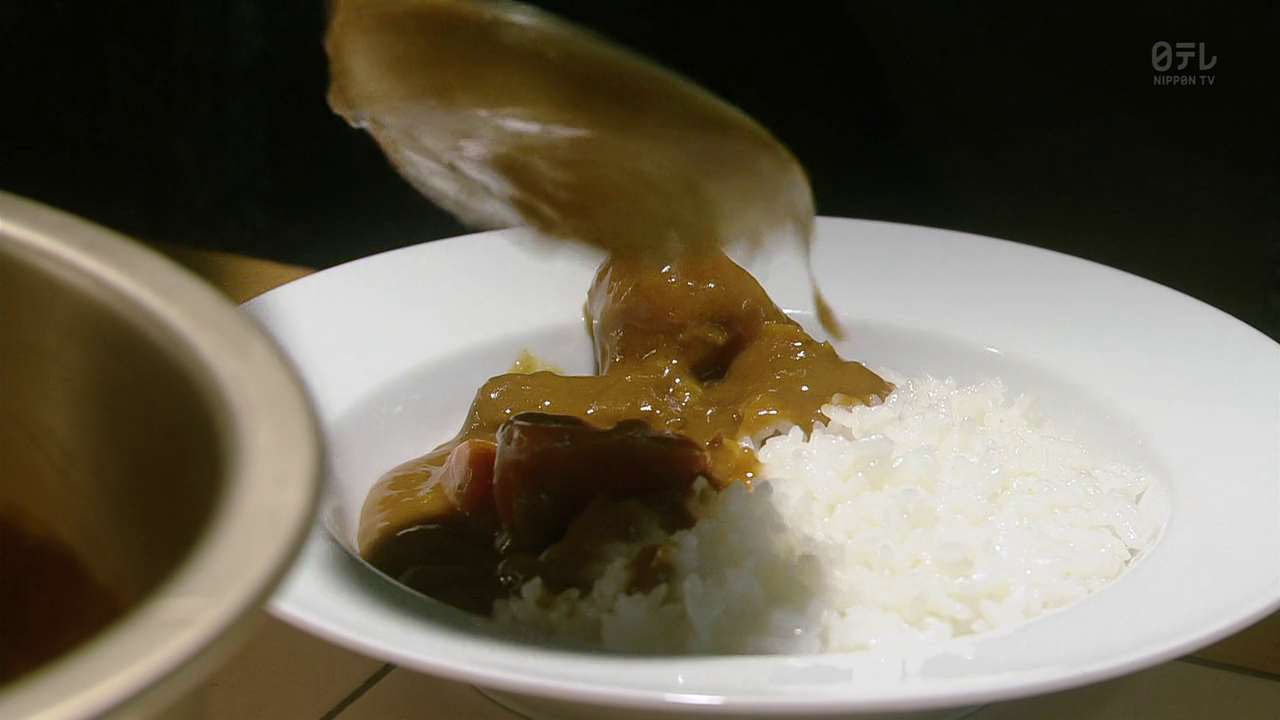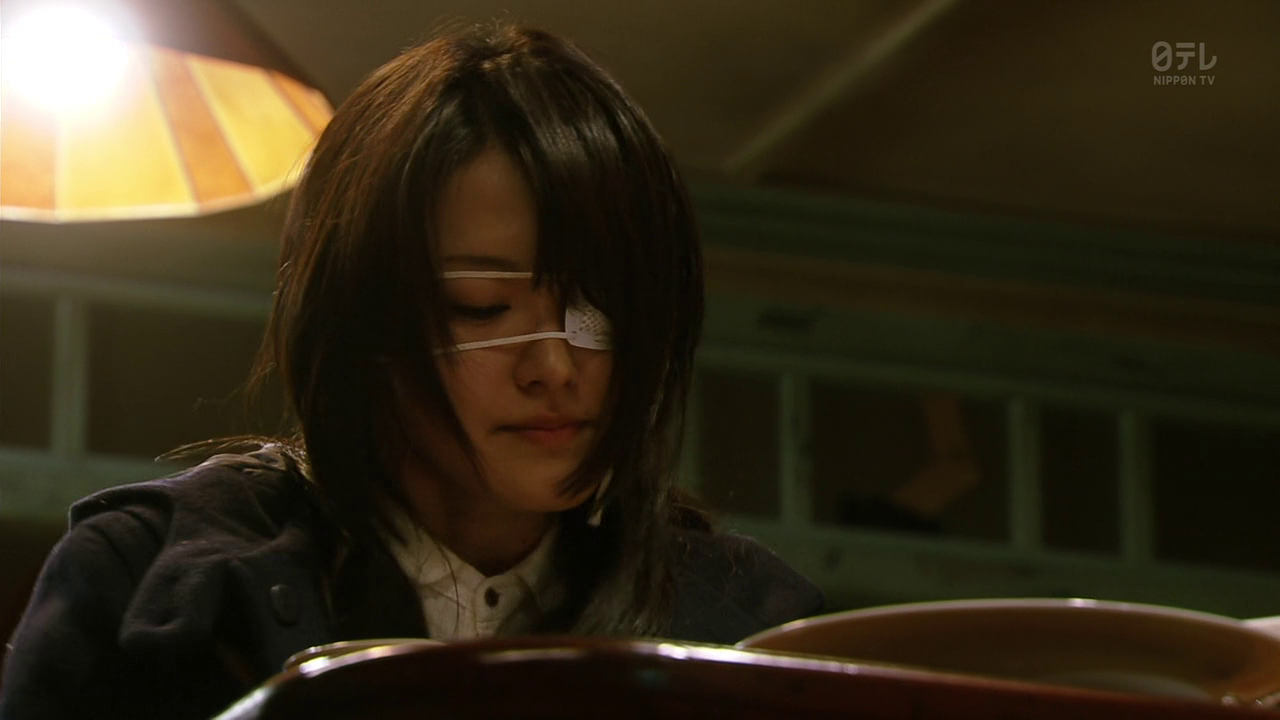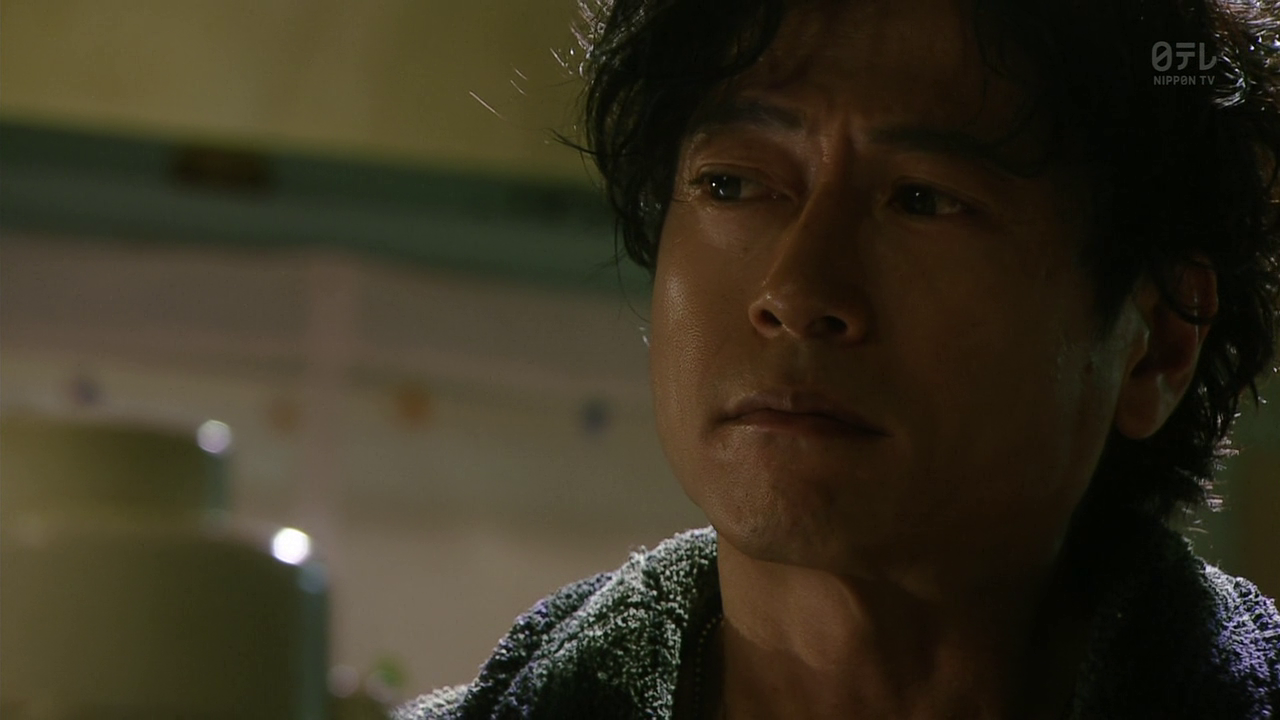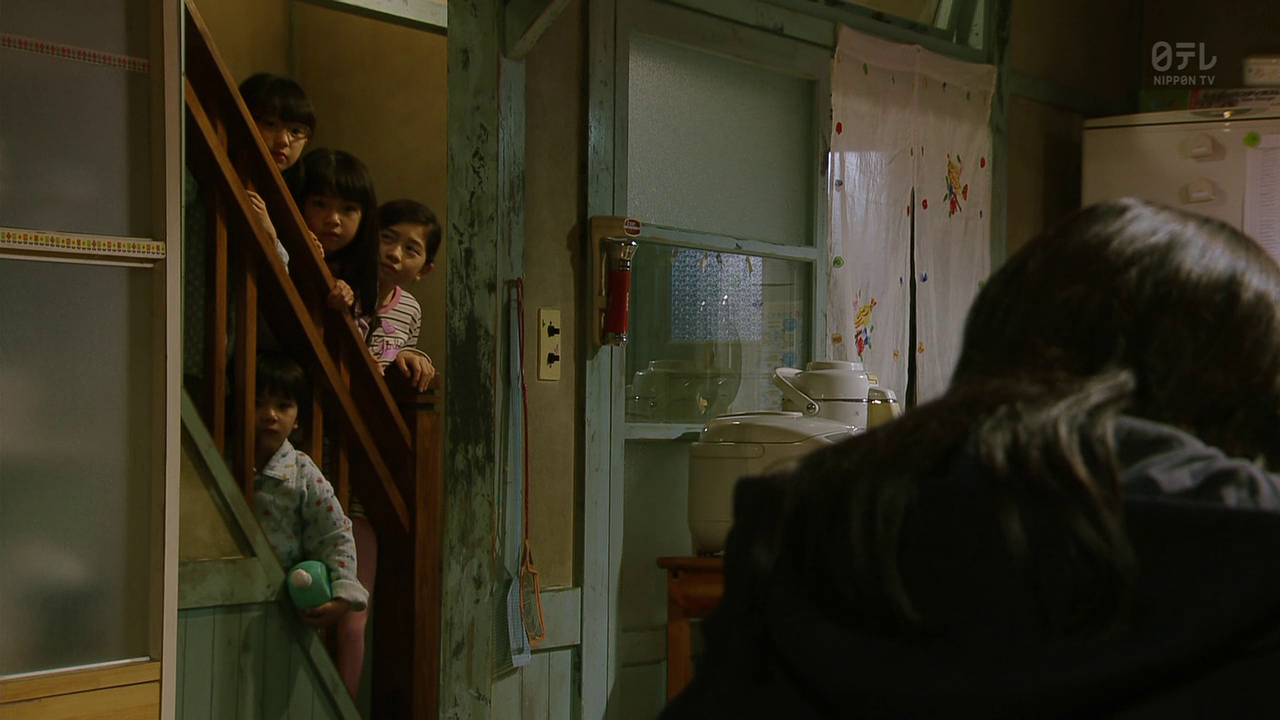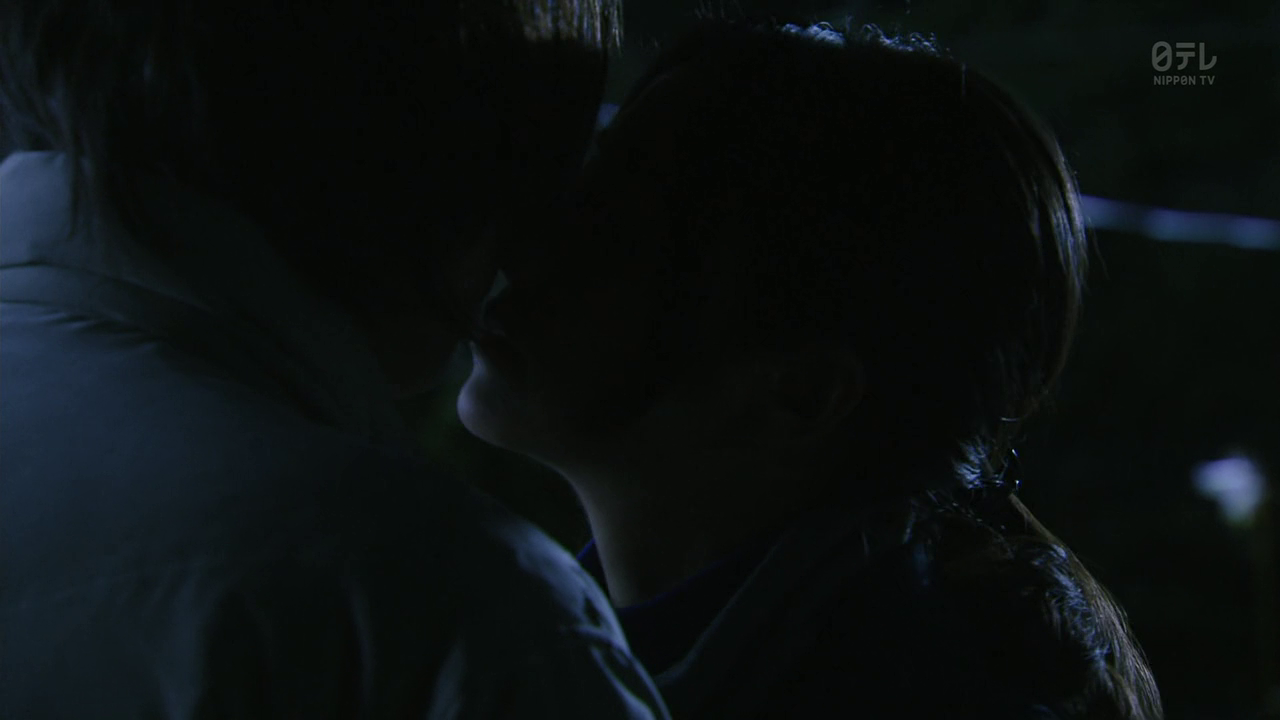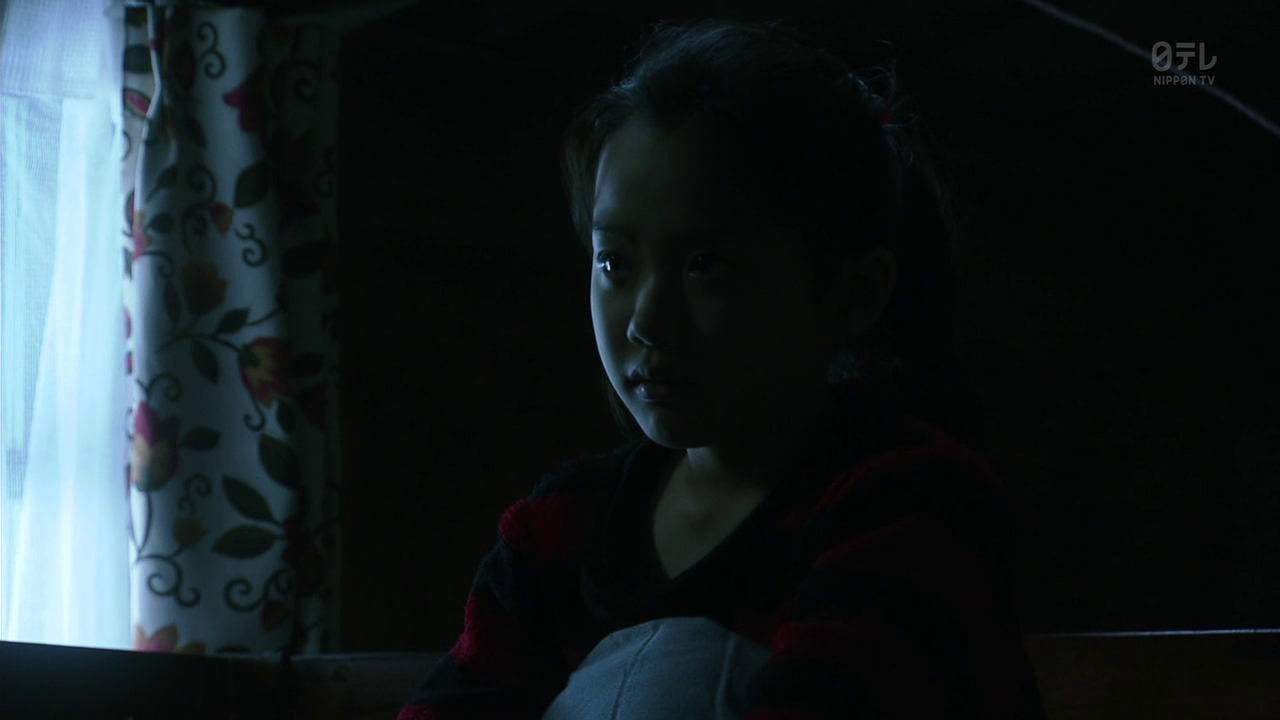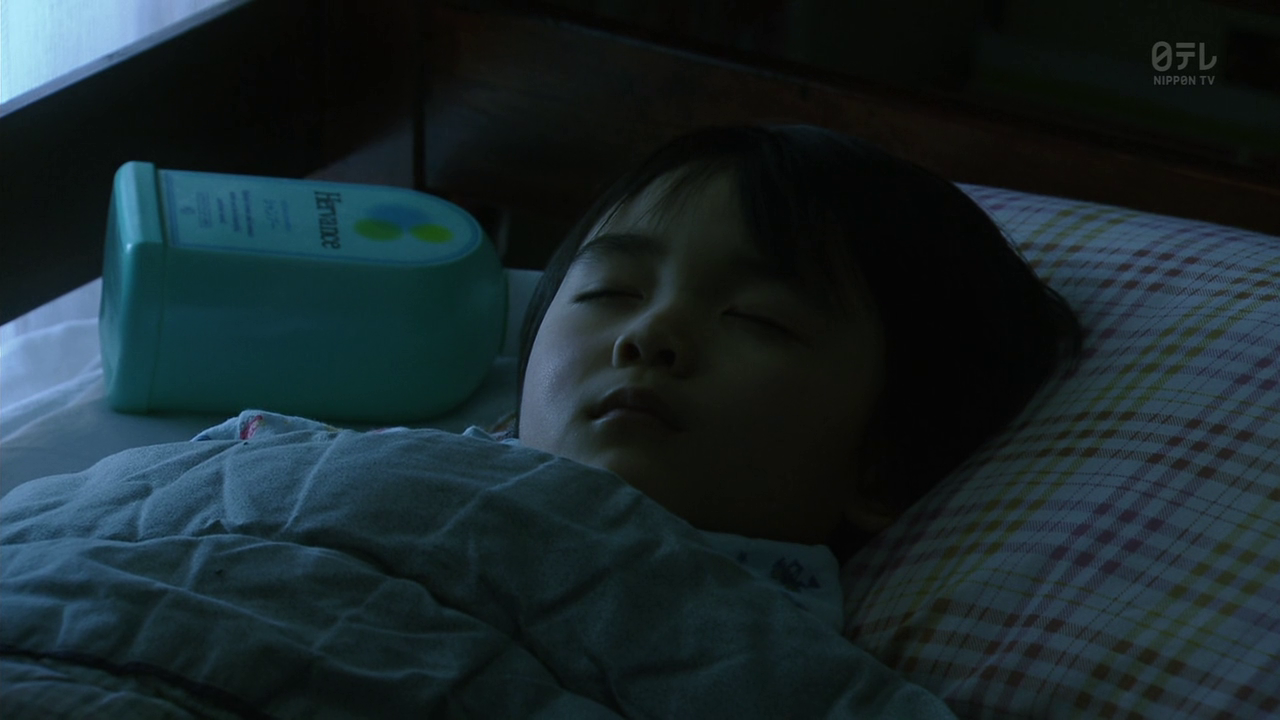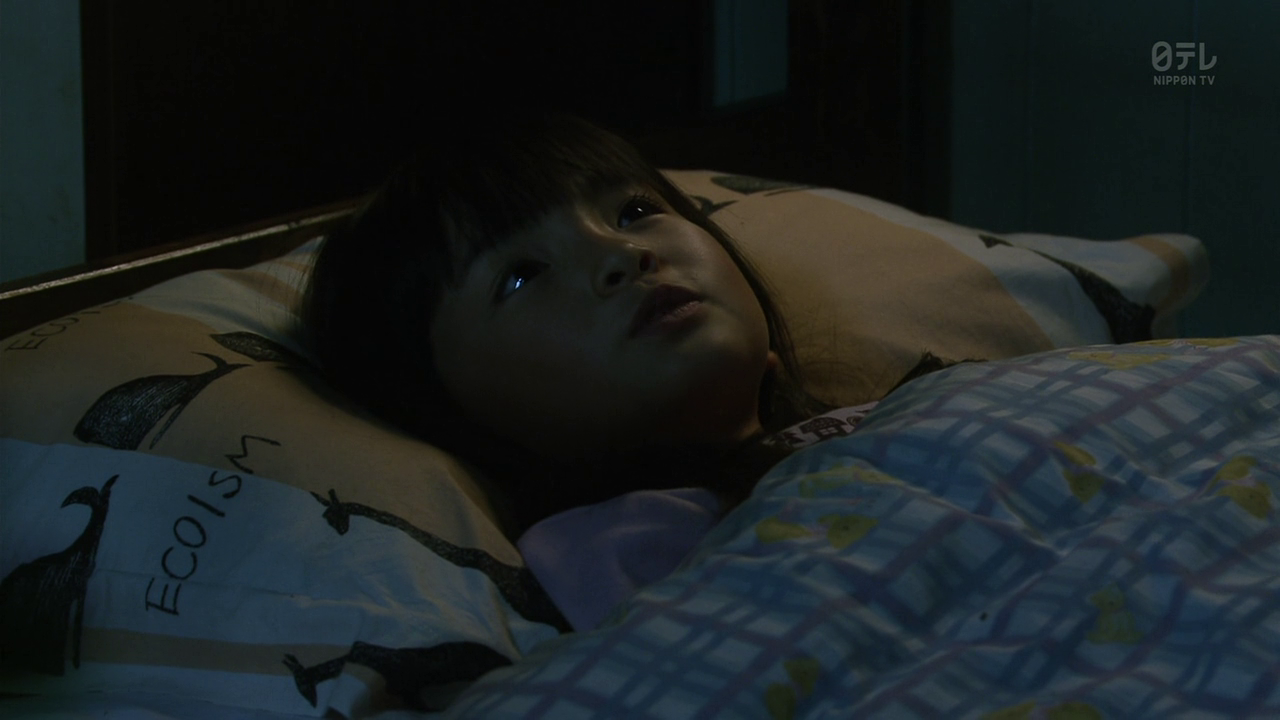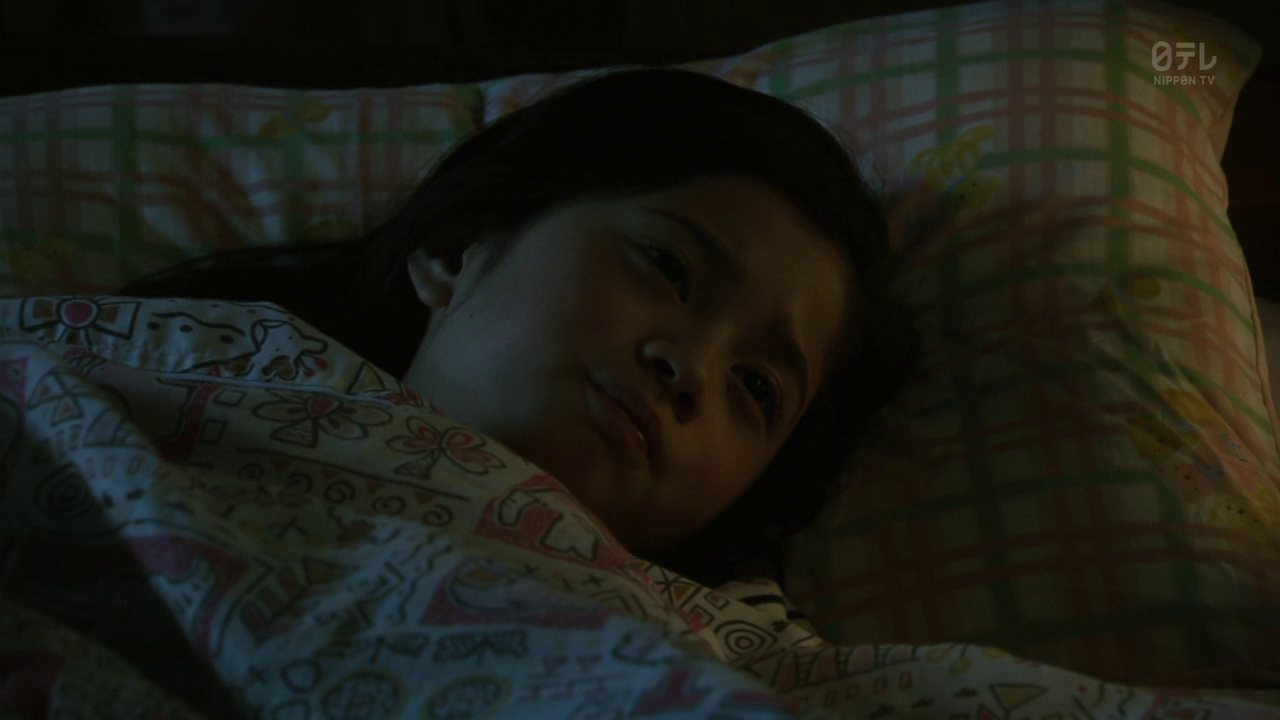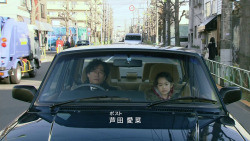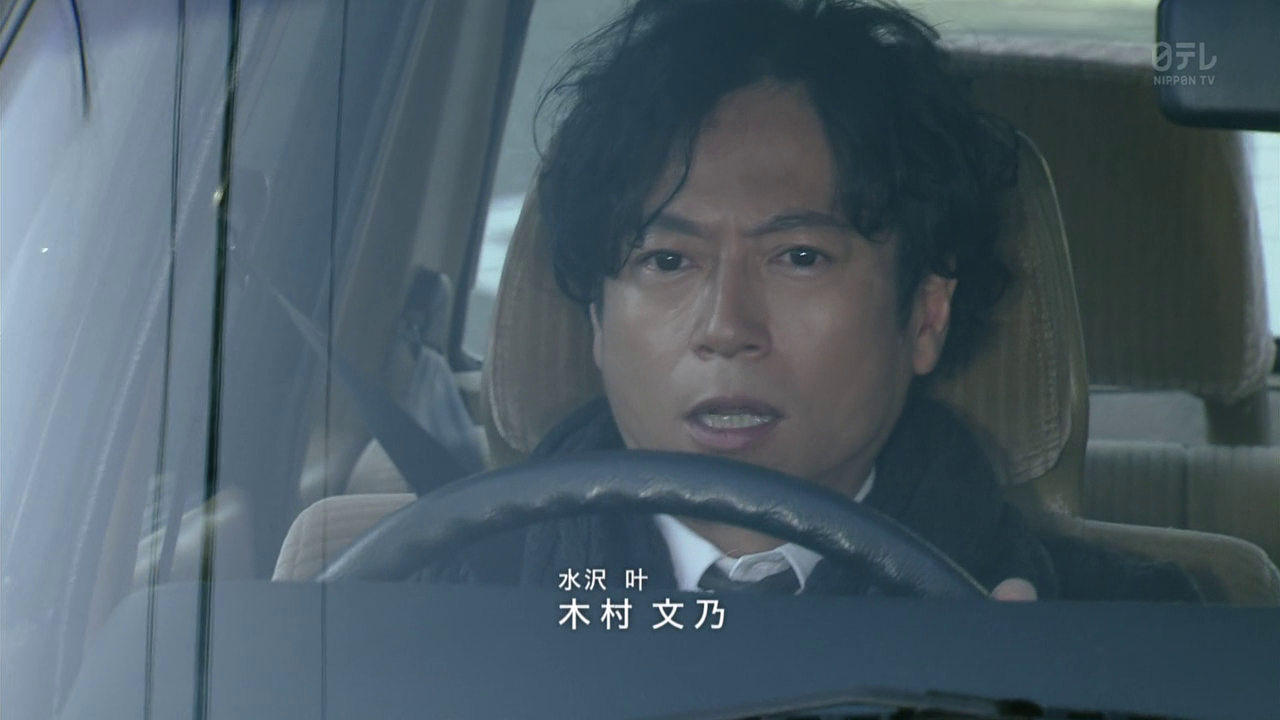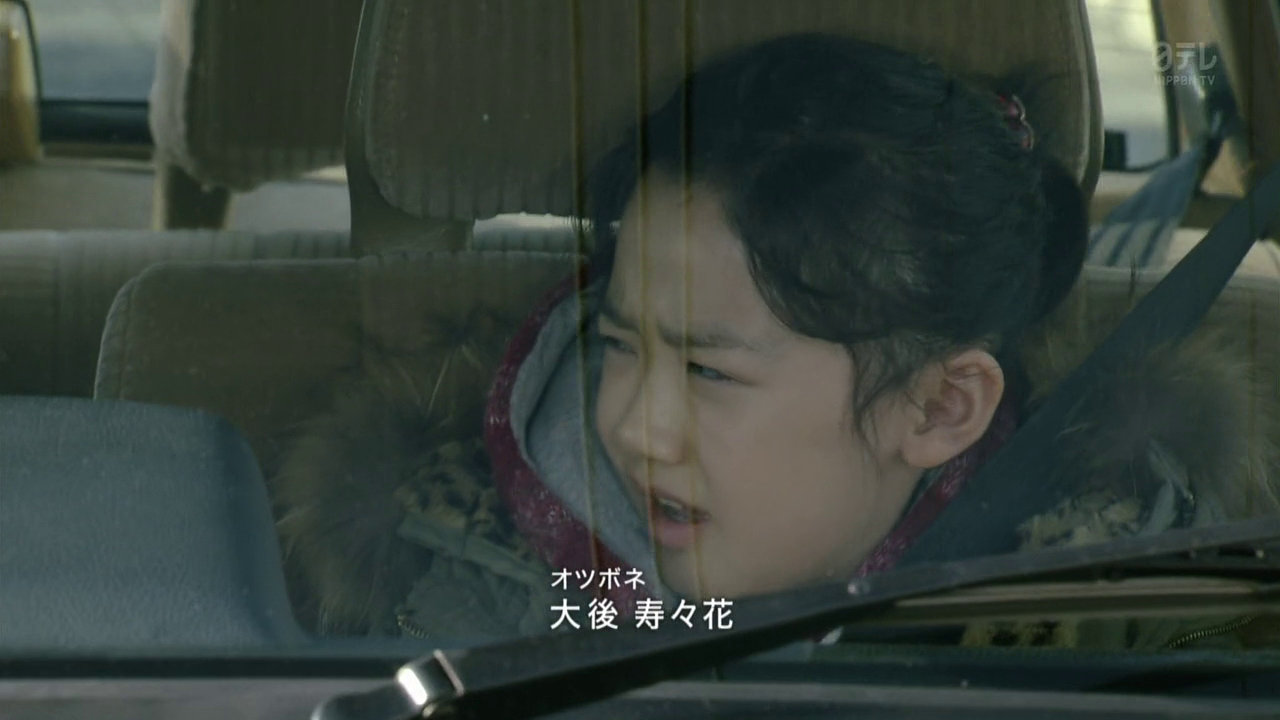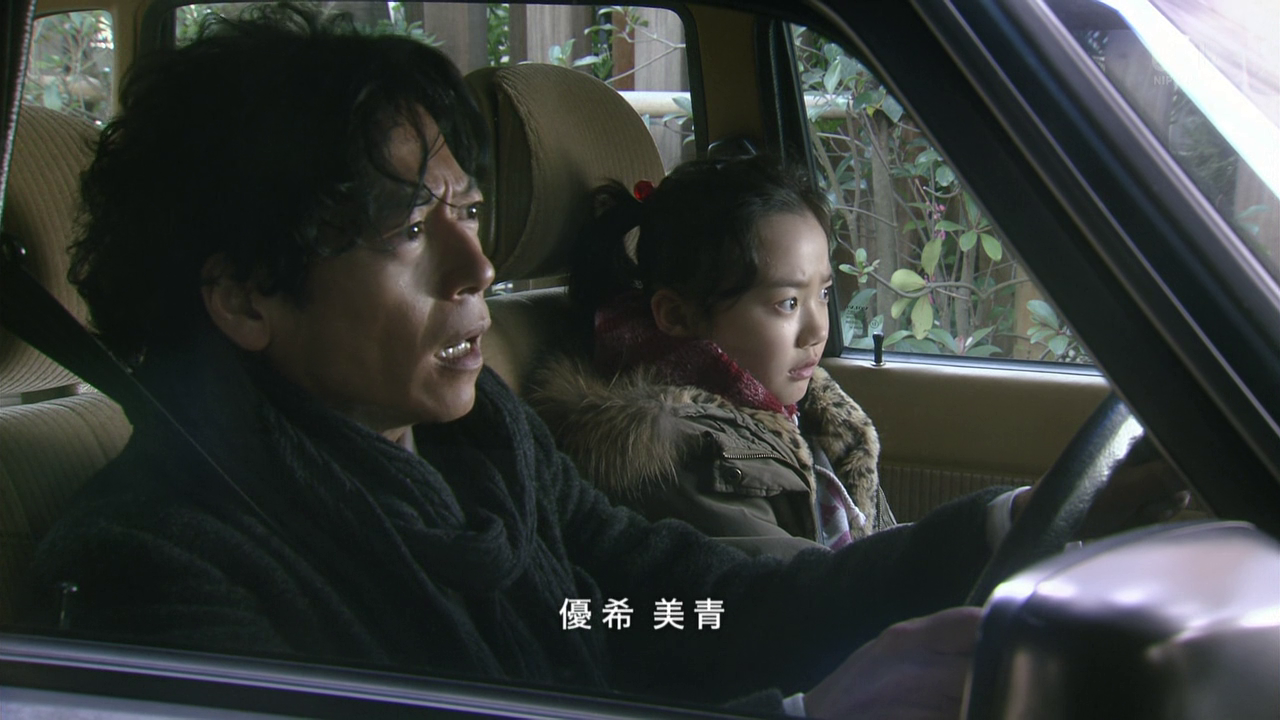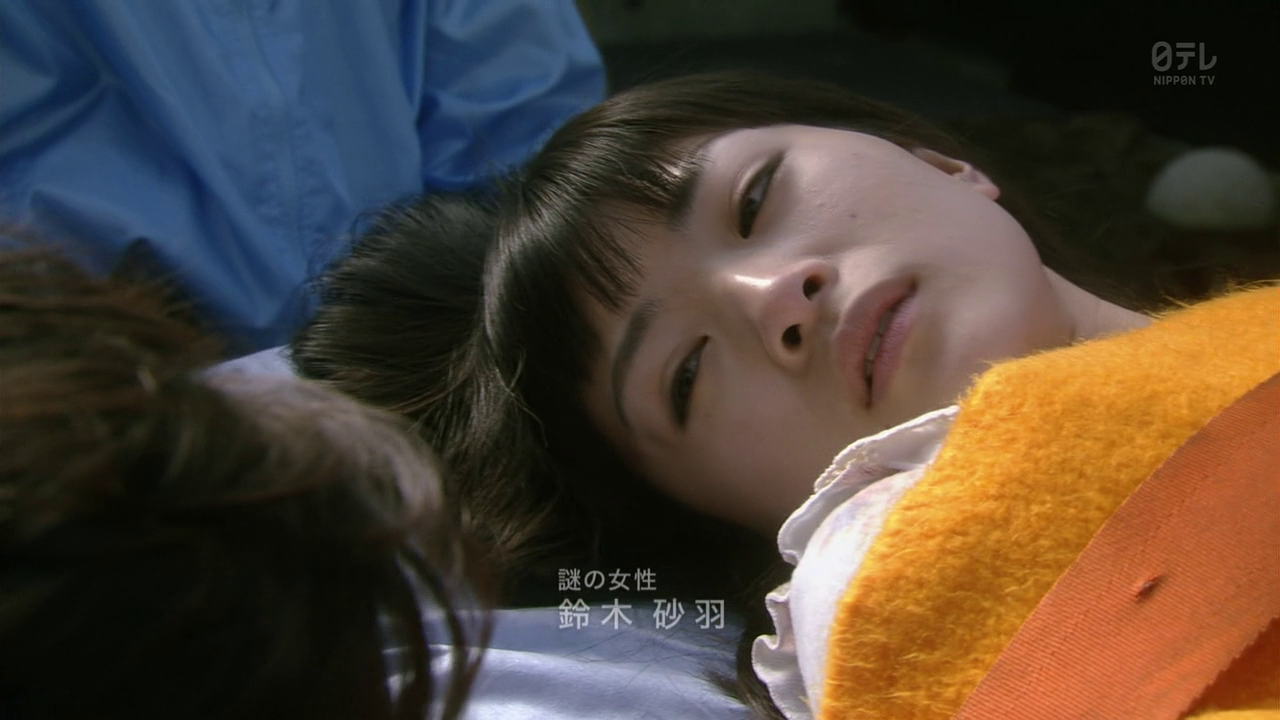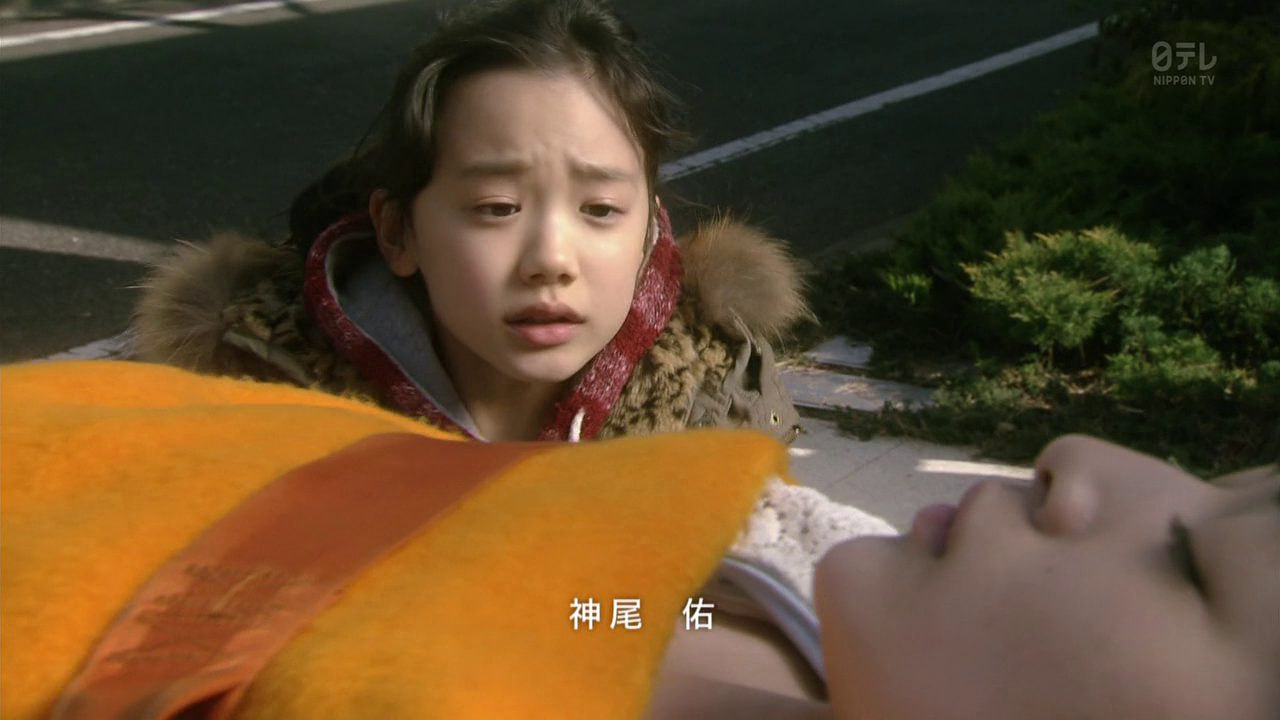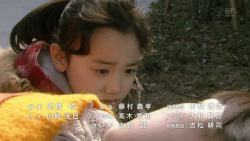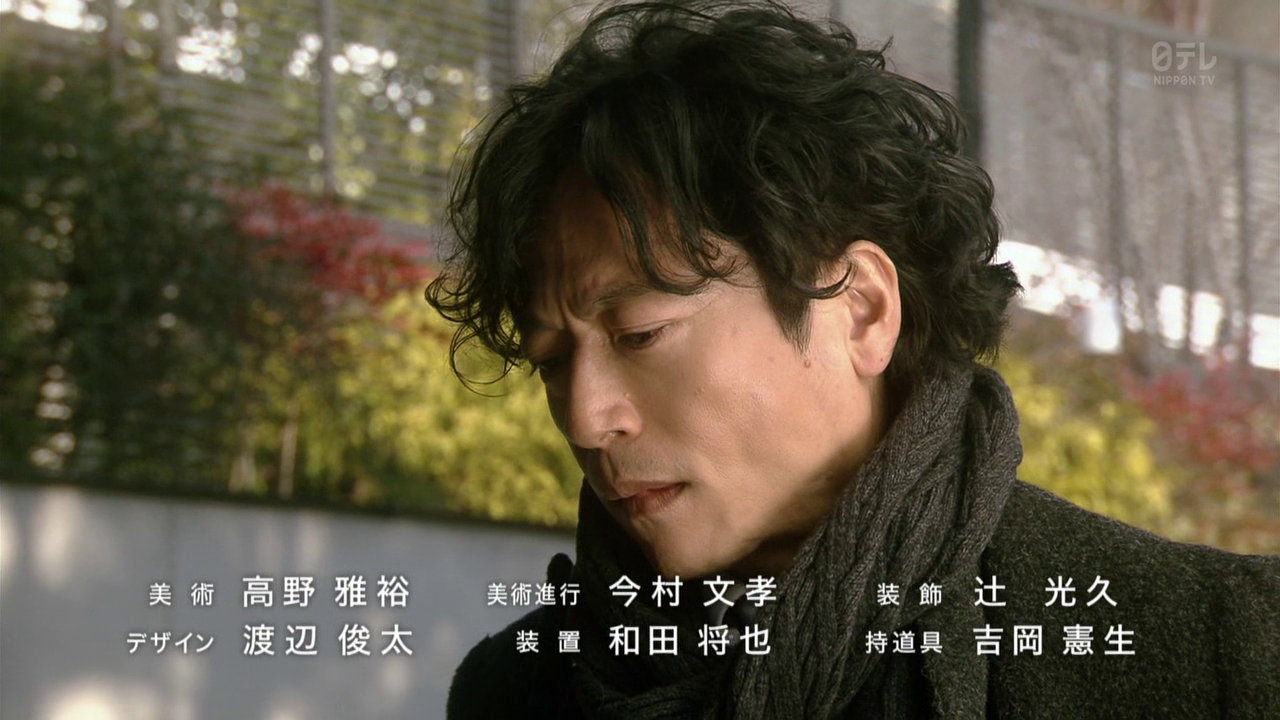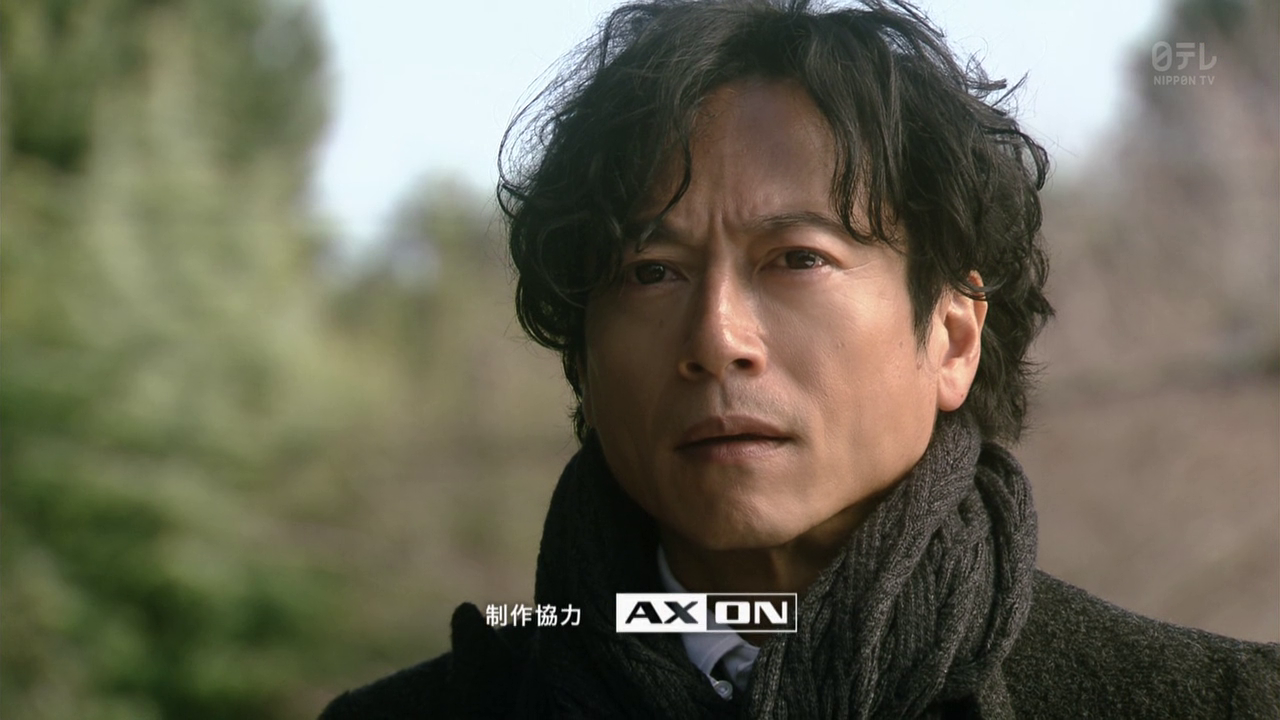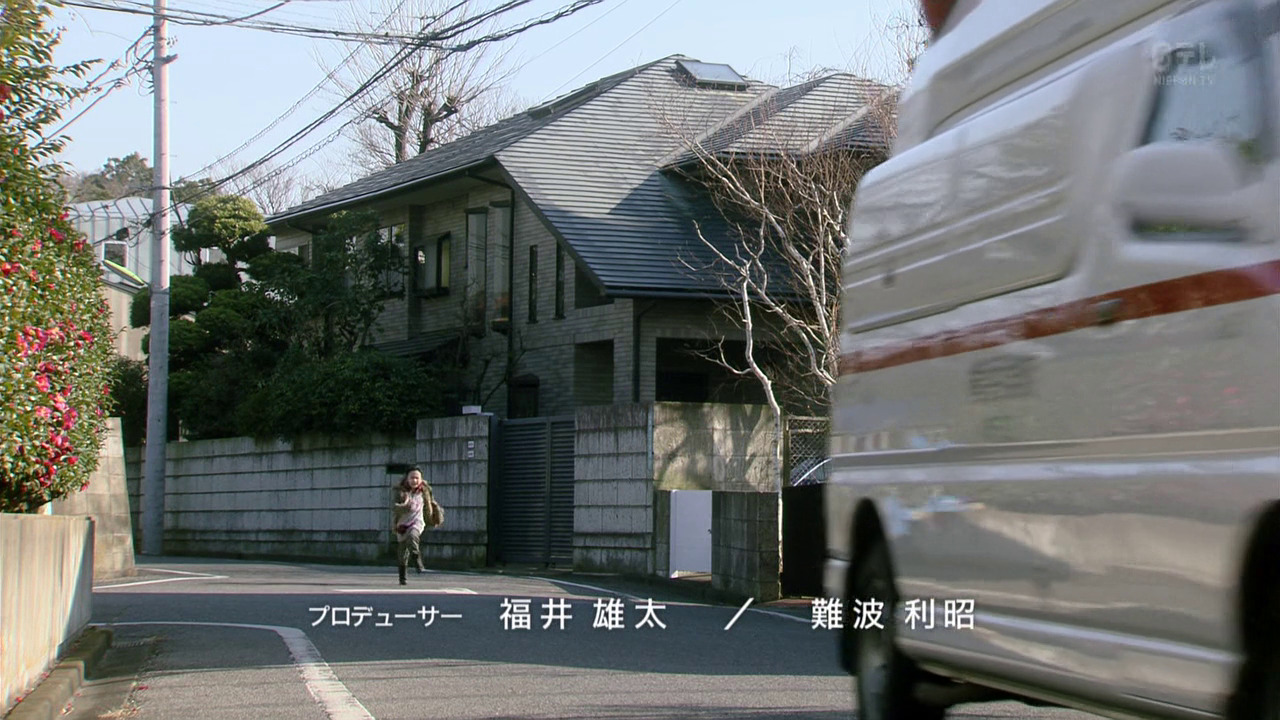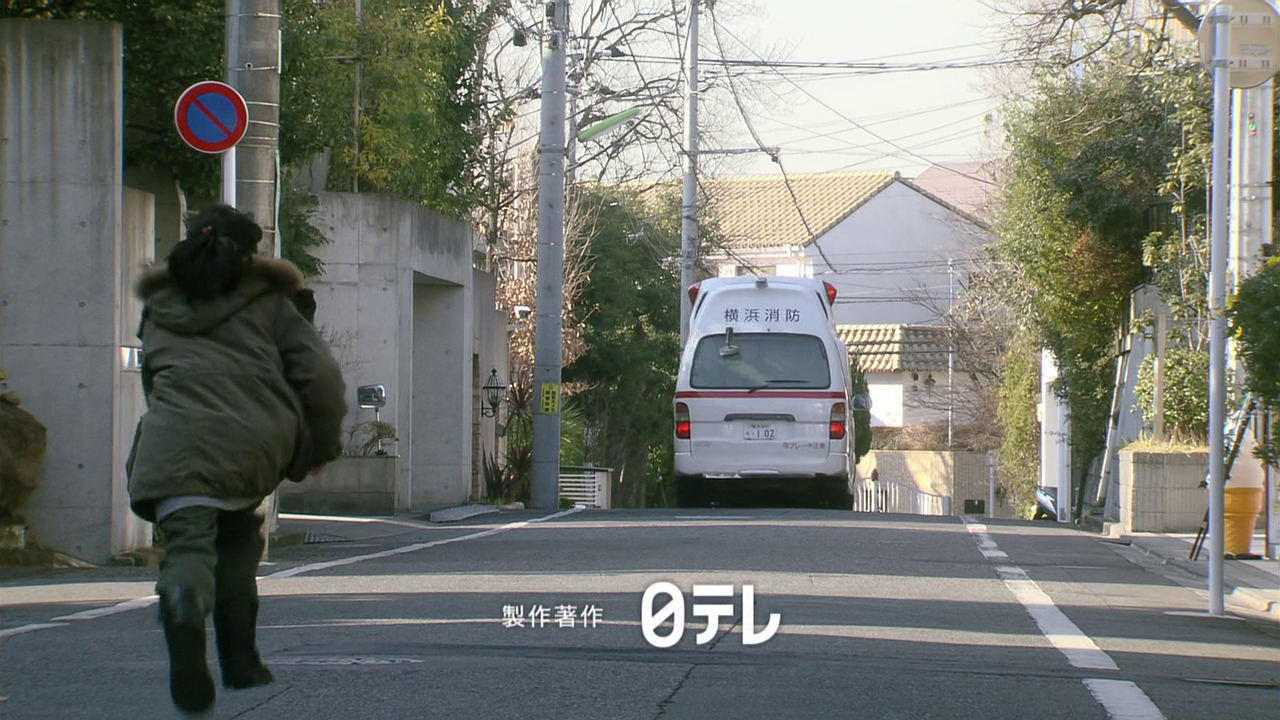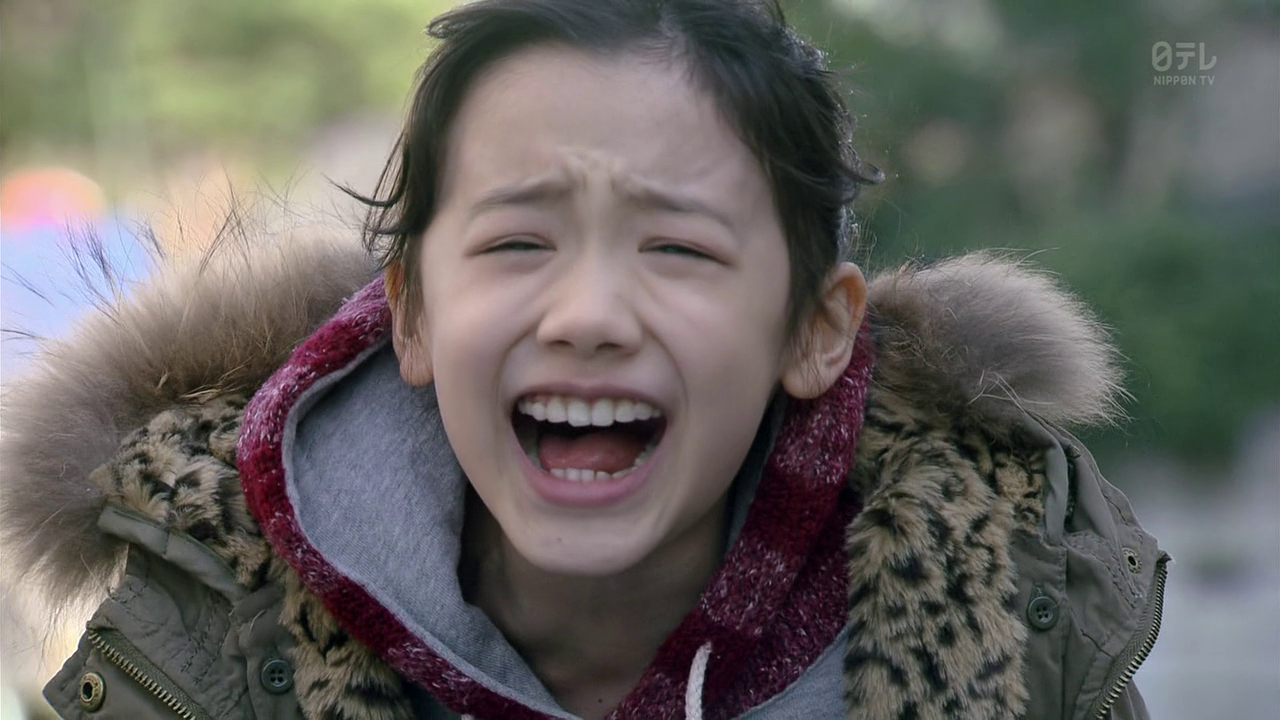明日、ママがいない 第3話 「ウサギの赤い涙。親のいる子も寂しい?」
Ashita, Mama ga Inai #03. 「A Rabbit’s Red Tears. A Child with Parents Is Still Lonely?」
Screenwriter(s): Matsuda Saya (松田沙也)
Chief Producer: Ito Hibiki (伊藤響)
Producer(s): Fukui Yuta (福井雄太), Namba Toshiaki (難波利昭)
Director(s): Inomata Ryuichi, Naganuma Makoto, Suzuki Yuma (鈴木勇馬)
Music: Haketa Takefumi
For the episode with the viewership highest rating thus far, the writing sure took a pretty noticeable slump, I thought. That’s what I wanted to assuredly say, that is, until the last ten minutes or so of the episode, which wrapped things up quite beautifully.
You know, for a bunch of orphans with not so much as a cell phone for emergency situations, these kids sure do go out in the middle of the night a whole damn lot. This week’s happenings take the cake when one child ends up at a hostess bar (though I guess that’s out of her own volition) and the other takes a handicap girl in a wheelchair to an abandoned park so that she can become even more vulnerable by falling face first into a sandbox over and over again. It seems that a standard structure has been established in terms of an episode-by-episode basis, in which Maou introduces the files on couples looking to adopt and whatever details the children notice is what indicates just what is going to ensue for the rest of the episode’s duration. And for this week, Otsubone finally gets her long, sought-after chance for adoption when one such couple is not explicitly interested in age nor gender, but rather, astrological sign, Sagittarius in particular, which lands Otsubone and Posuto as the leads for this episode of unadulterated misadventures.
Synopsis:
Surprisingly enough, the aforementioned couple actually already have a daughter, and it was the superstitious mother’s plan to arrange an astrologically compatible child for that daughter, Azusa, so that she could have some form of familial interaction while her parents were far-off working on their careers. The handicapped Azusa however isn’t so willing to accept a substitution for her parents and takes out unbridled resentment, that should rightfully be aimed towards her parents, onto Posuto and Otsubone. Otsubone acts accordingly and gives up on this trial, especially after discovering that she will be inheriting no money she could use to surgically repair her scarred eye. But she jumps from the frying pan into the fire after she is kicked out of Kogamo no Ie because of her decision and subsequently retreats to her mother (revealing that she actually has a mother at the same time), who works as a bar hostess. Meanwhile, Posuto also acts in accordance to her character by taking on the challenge of mending Azusa’s heart, in her classic spark-plug manner. Azusa soon warms up to Posuto (who wouldn’t?) after almost being killed by her and is finally able to stand again through a therapeutic procedure designed by an adolescent child involving face-planting into a sandbox. Concurrently, Piami and Bonbi bond through their corresponding rejections from dream boy and dream parents respectively, while Donki braves up to confront Maou about his attraction towards the bentou lady and his treatment towards Otsubone (and essentially everyone else at the home).
Posuto’s growing friendship with Azusa converges with Otsubone’s existential crisis when the two share a meaningful conversation on the phone. Posuto convinces Otsubone to stop lying to herself and uses the same speech and sentiments of sisterhood that Azusa had professed to her, but emotionally cripples (no pun intended) an over-hearing Azusa. Locker interrupts the phone call and retrieves Otsubone from the hotel her mother sent her to as well as from a pretty damn dangerous scenario, bringing her back in time for dinner and also in time for Locker to get a peck on the cheek from Kana standing-by in front of the Kogamo no Ie household.
Review:
I was nearly all but convinced that Posuto had stolen the limelight of the show, not just from the main cast but also from Donki as the apparent lead. But after this episode, I’ve begun to view the two girls of the Kogamo no Ie household as a dynamic duo of sorts. Wherein Posuto’s toughened and indomitable demeanor is compelling enough to stir the hearts of others, Donki’s innate compassion and altruism allows her to add a new light of understanding amongst everyone. Together, the pair are mending the brutality of the Kogamo no Ie household one episode at a time. And there’s nothing like the classic family dinner trope, wherein one family member awaits the return of the rest in order to have a fully satisfying meal, to define this new atmosphere. Someone crying at the deliciousness of the love behind the food more so than the actual food will never not be an endearing thing. And of course, bonus points go to the subsequent pillow talk between the two “sisters” Donki and Posuto. The manner in which they now talk to each other is a complete evolution from the first episode, and it’s additionally meaningful because these two haven’t quite interacted with each other in the past two episodes yet can still sense each others’ growth.
I would have to say that the weakest point in this show’s writing is the continued usage of very one-dimensionally corrupt side-characters who seem to only serve the purpose of being defeated by the good intentions of the main cast. This week was certainly different with Azusa (being instead a victim of bad parents) to which the writer(s) devoted an arguably excessive amount of screen-time. She was explicitly used as a comparative older sister figure to Otsubone, so one may question why not just script the same themes and motifs of the episode without the need of a newly introduced character that would only be there for one episode? If there is any justification, the answer might just be in the final moments of the episode, in which, for the first time, the placing of the ending theme just didn’t seem right mood-wise, at all. After showing her parents that she can stand on her own two feet, Azusa inadvertently convinces them that she is ready to hear news of their divorce. This announcement of course couldn’t come at any worse a time. The poor girl loses all hope thereafter and regresses her therapeutic progress by stabbing her own legs with a broken vase. This also marks the first time that Posuto has unsuccessfully played the role of the savior, leaving her defeated self with nothing to do but chasing the departing ambulance down the street until she runs out of breath. There, the episode cuts, leaving a pretty bleak impression. In retrospect, perhaps it was too early to say that a standard episode structure has been established as this occurrence suggests a definite change in the tone of the series, if nothing else. It’s still hard to determine exactly how the series will end. The children have definitely gotten many chances to leave the Kogamo no Ie household, but none other than side-characters have fully taken that path. As of now, the most likely ending seems to be the unification of this unconventional family, including Maou, into an official family; but at the same time, it seems like too obvious of an outcome. I for one am hoping it maintains this up-in-the-air effect as to not make us too comfortable with any formulaic and or predictable proceedings. What made me fall in love with this series in its premiere was the creative premise and the engaging writing that has yet to be out-shined by any succeeding episodes. I want to maintain that image as long as possible and, of course, all the way to the end if possible.
